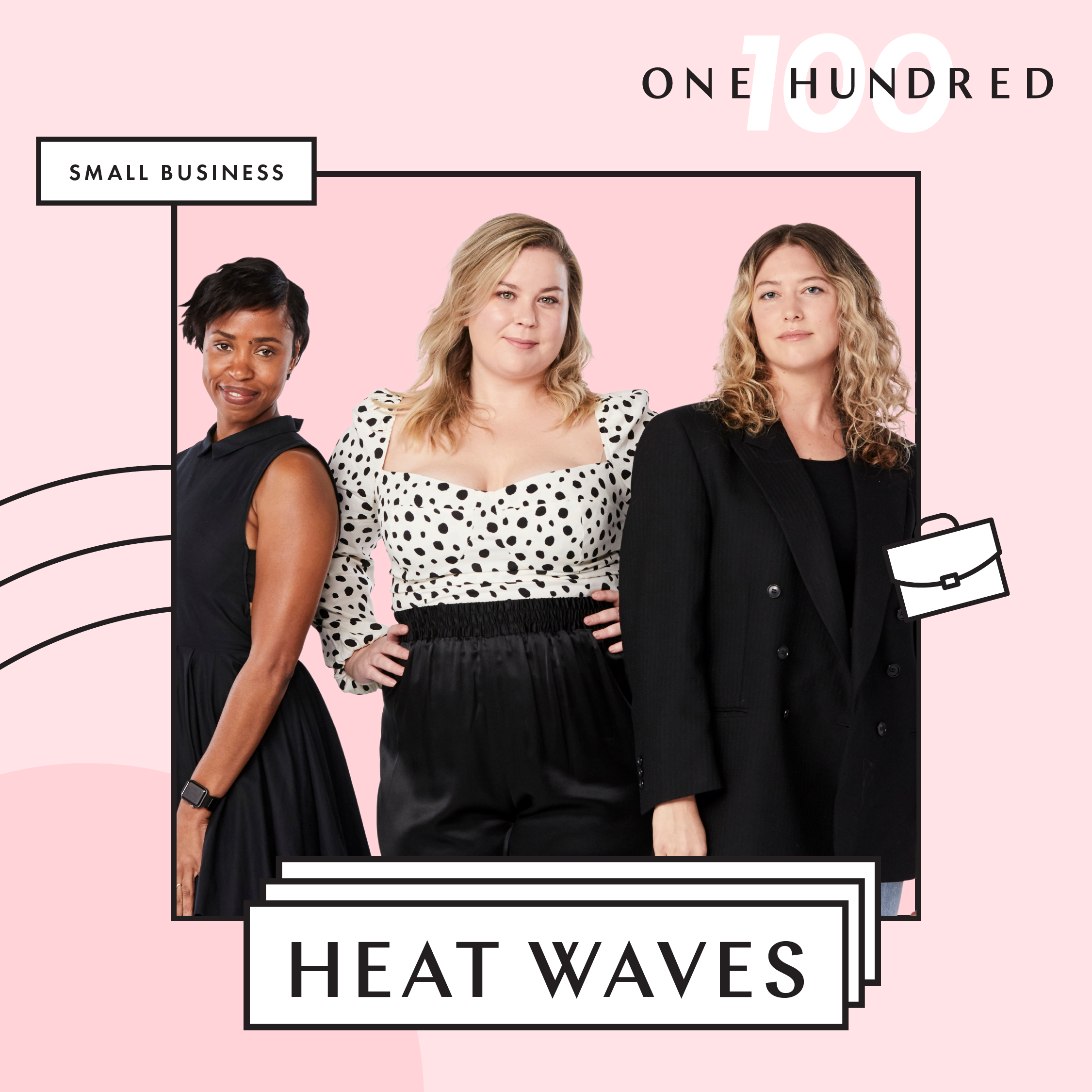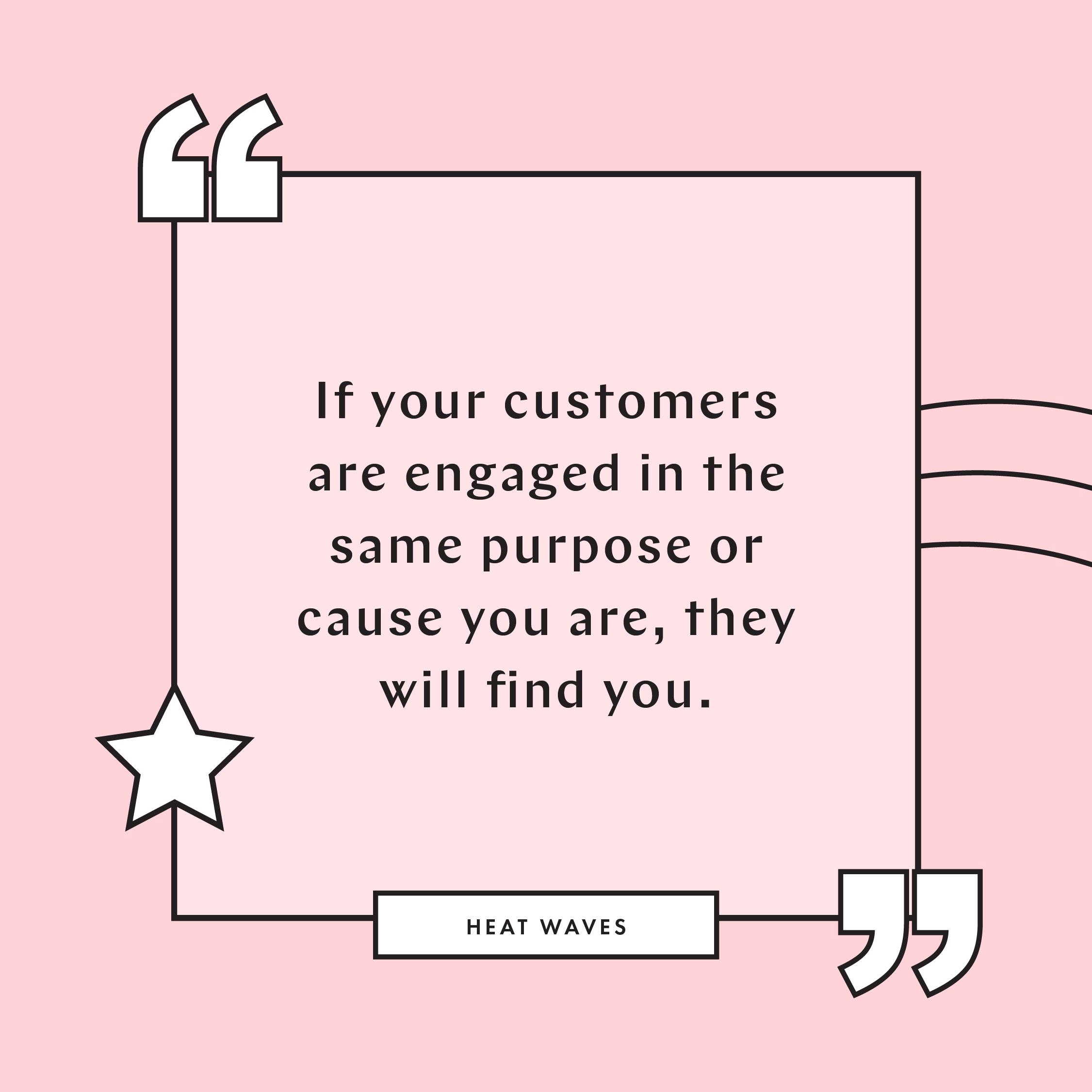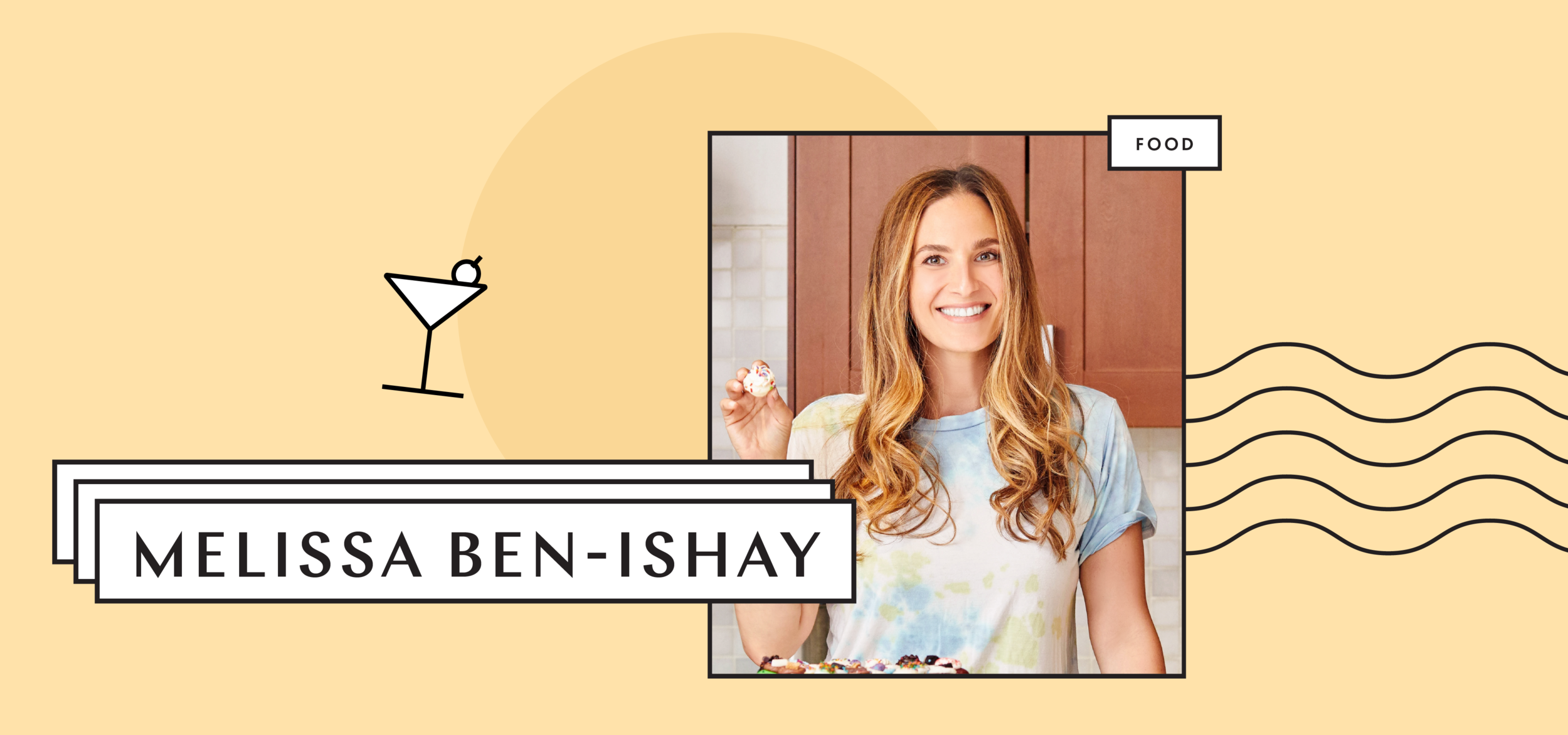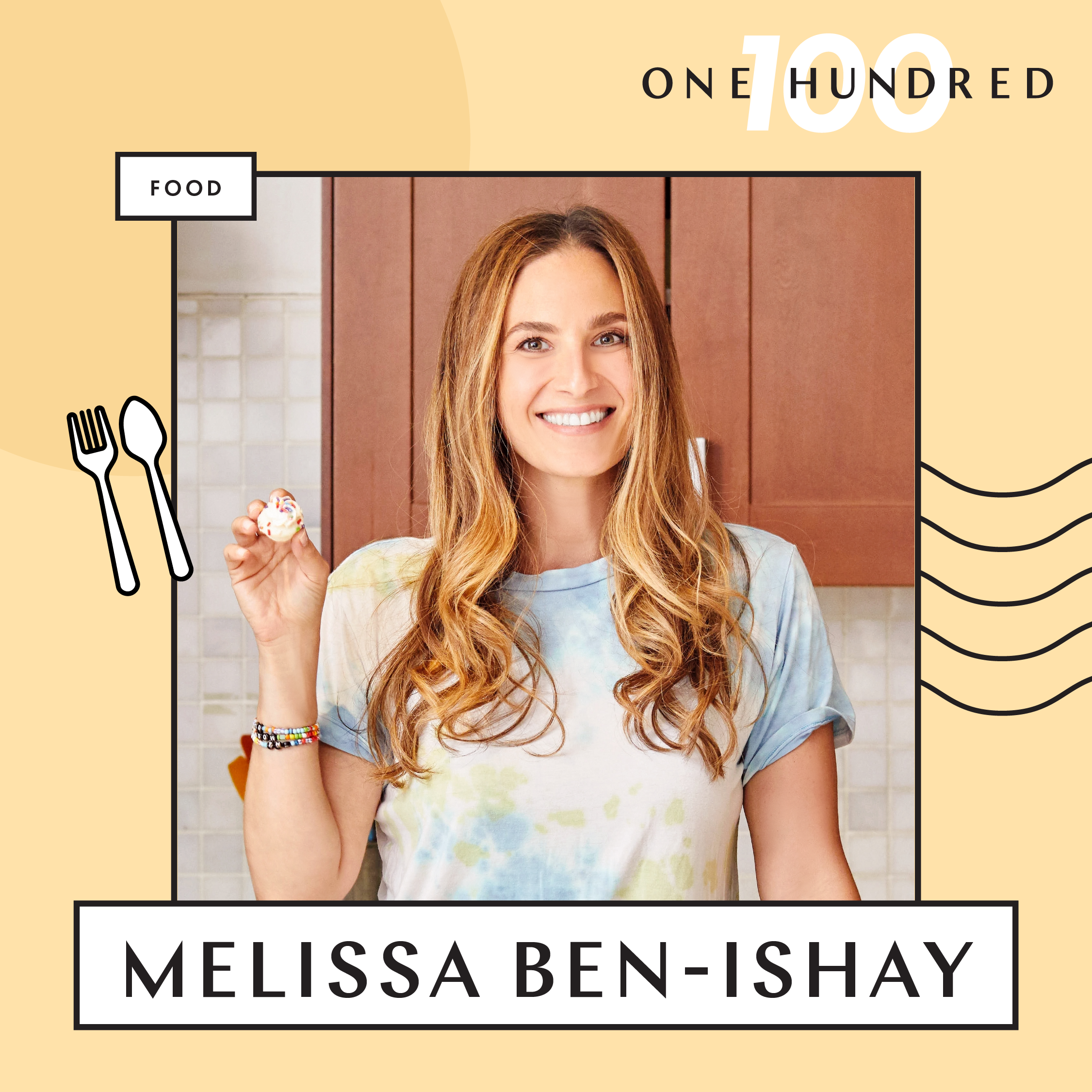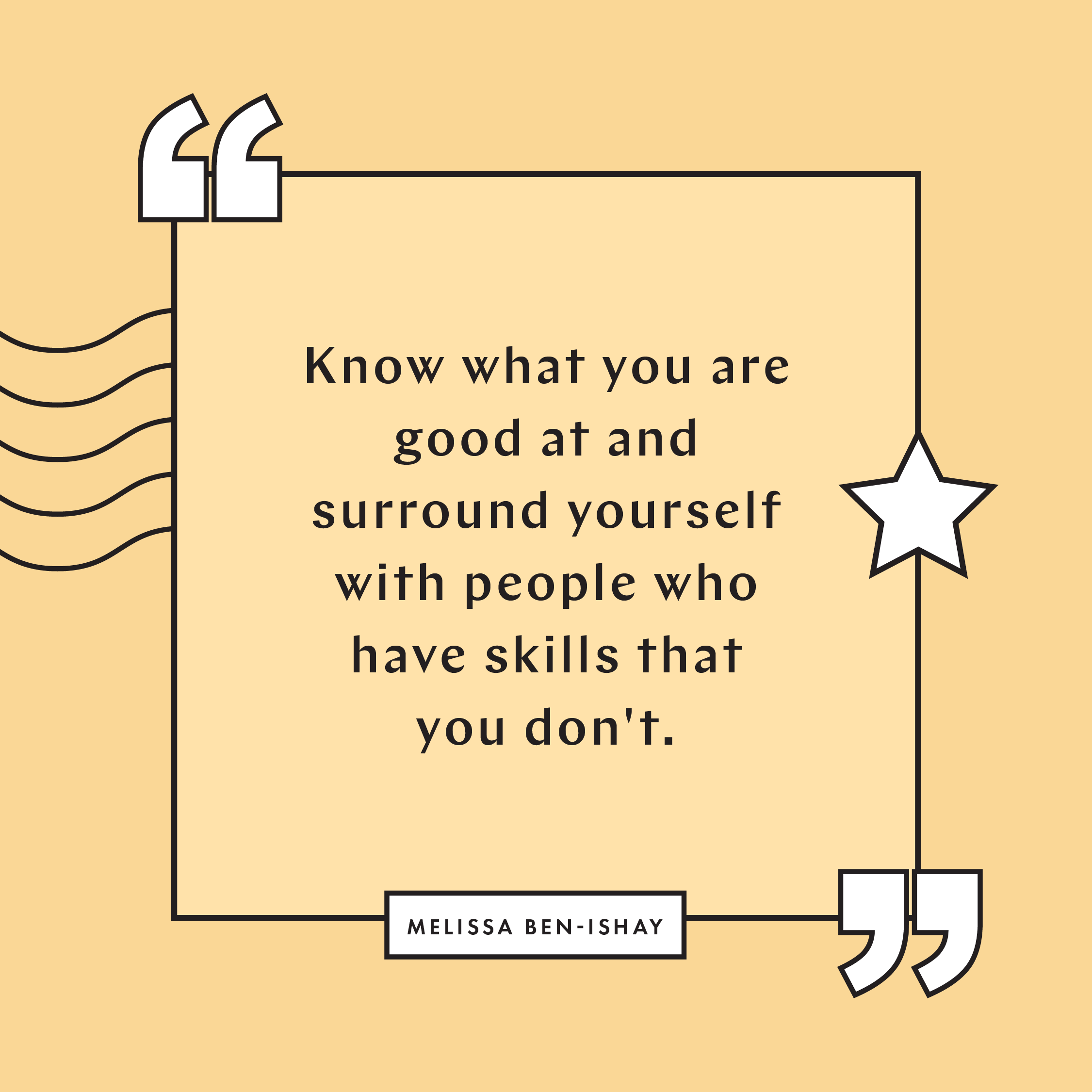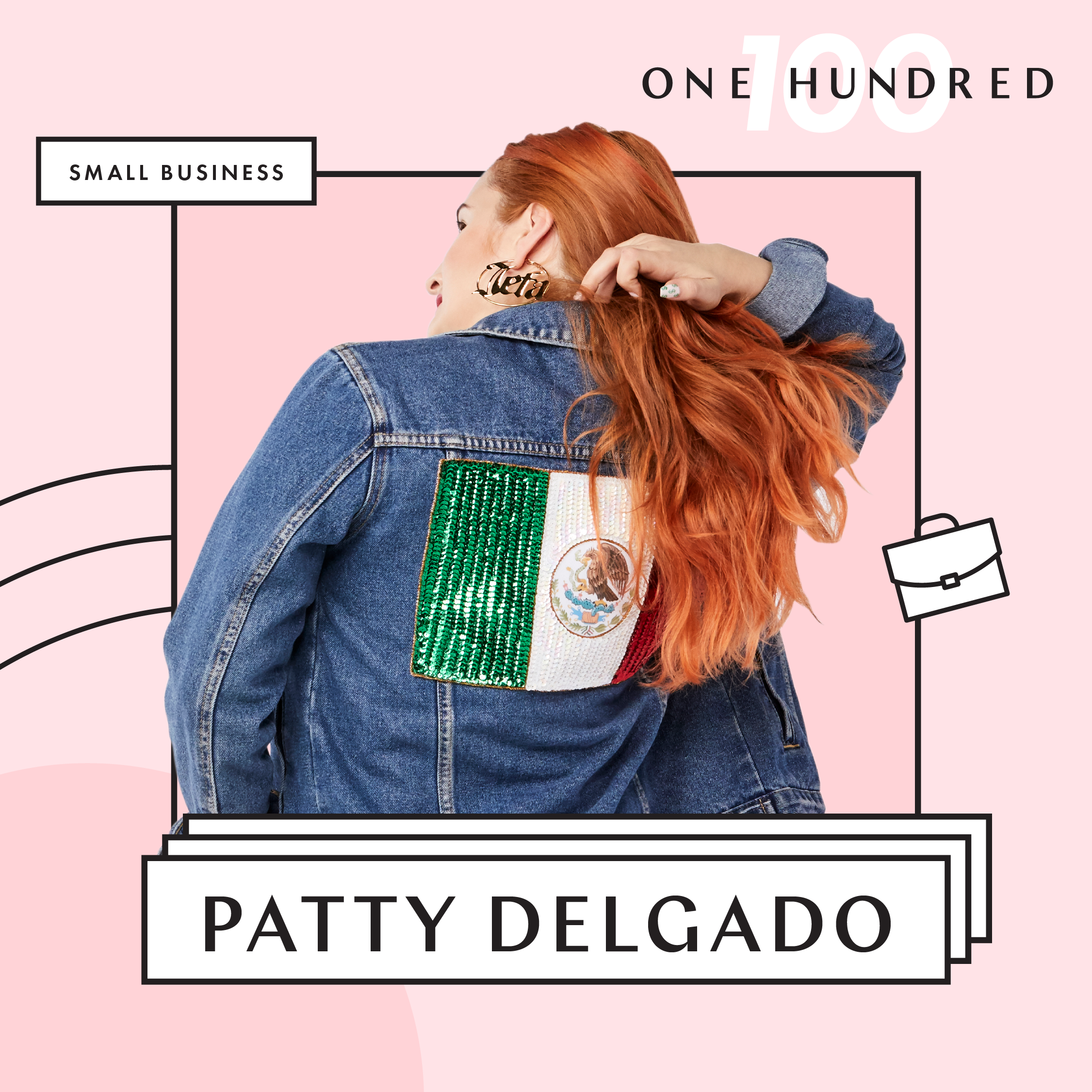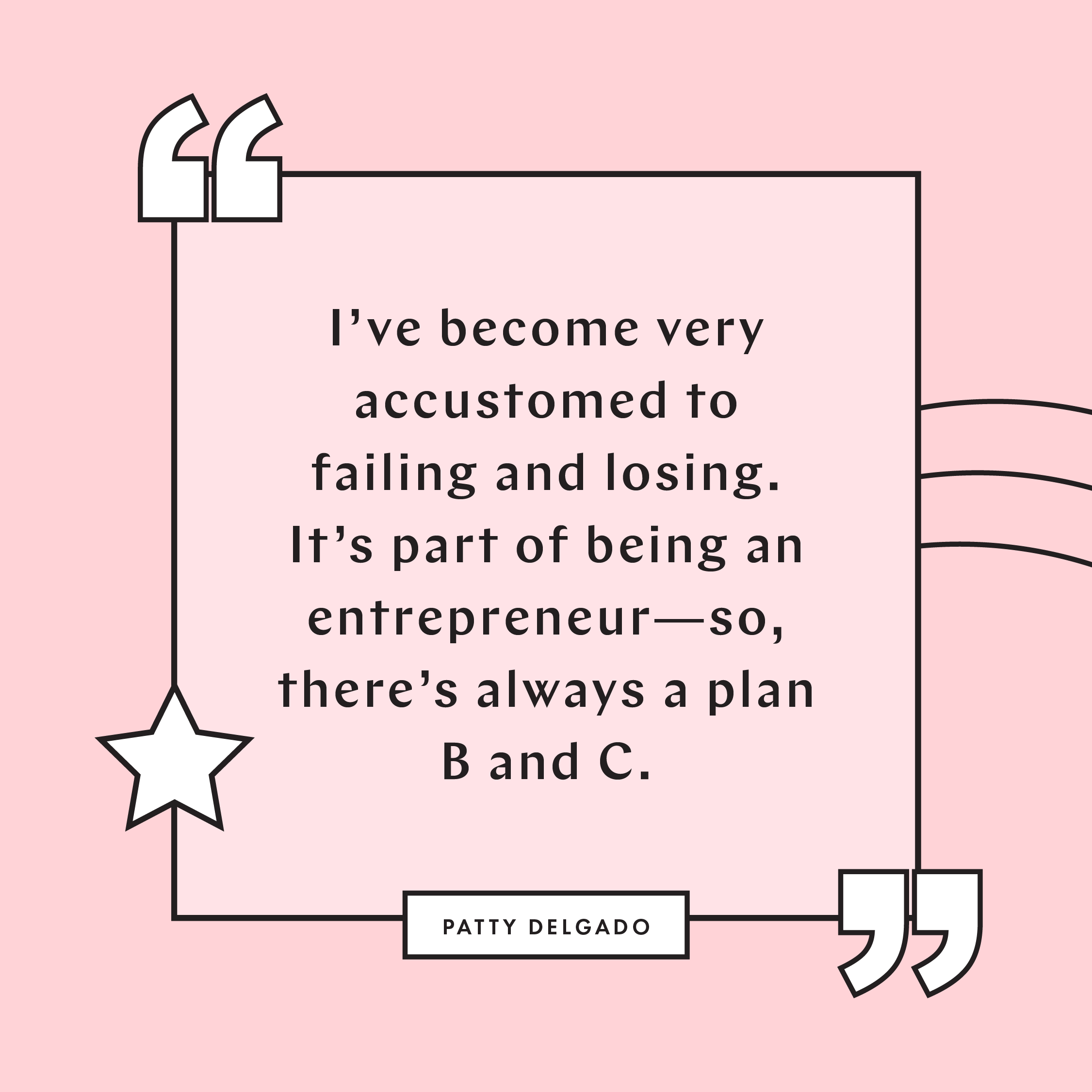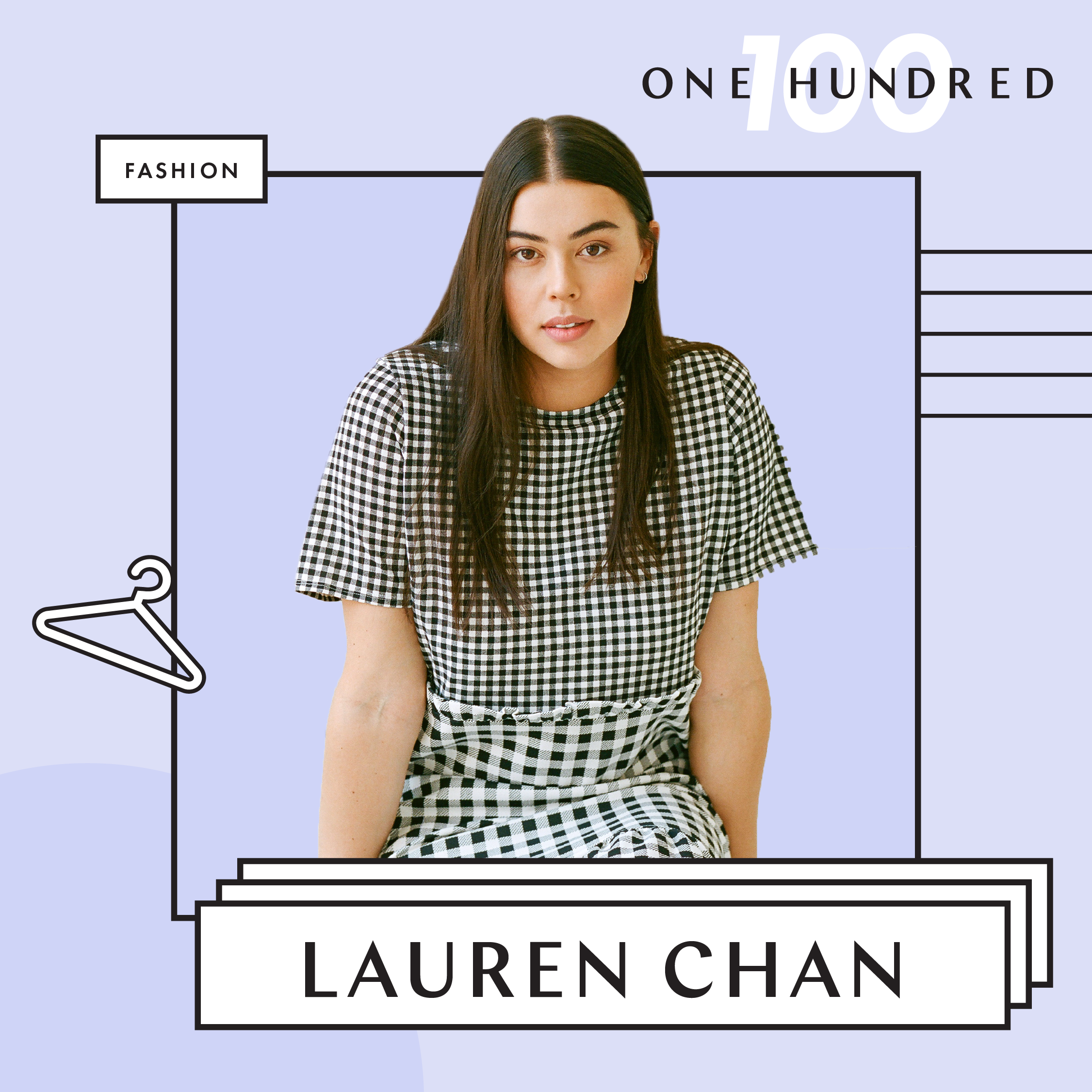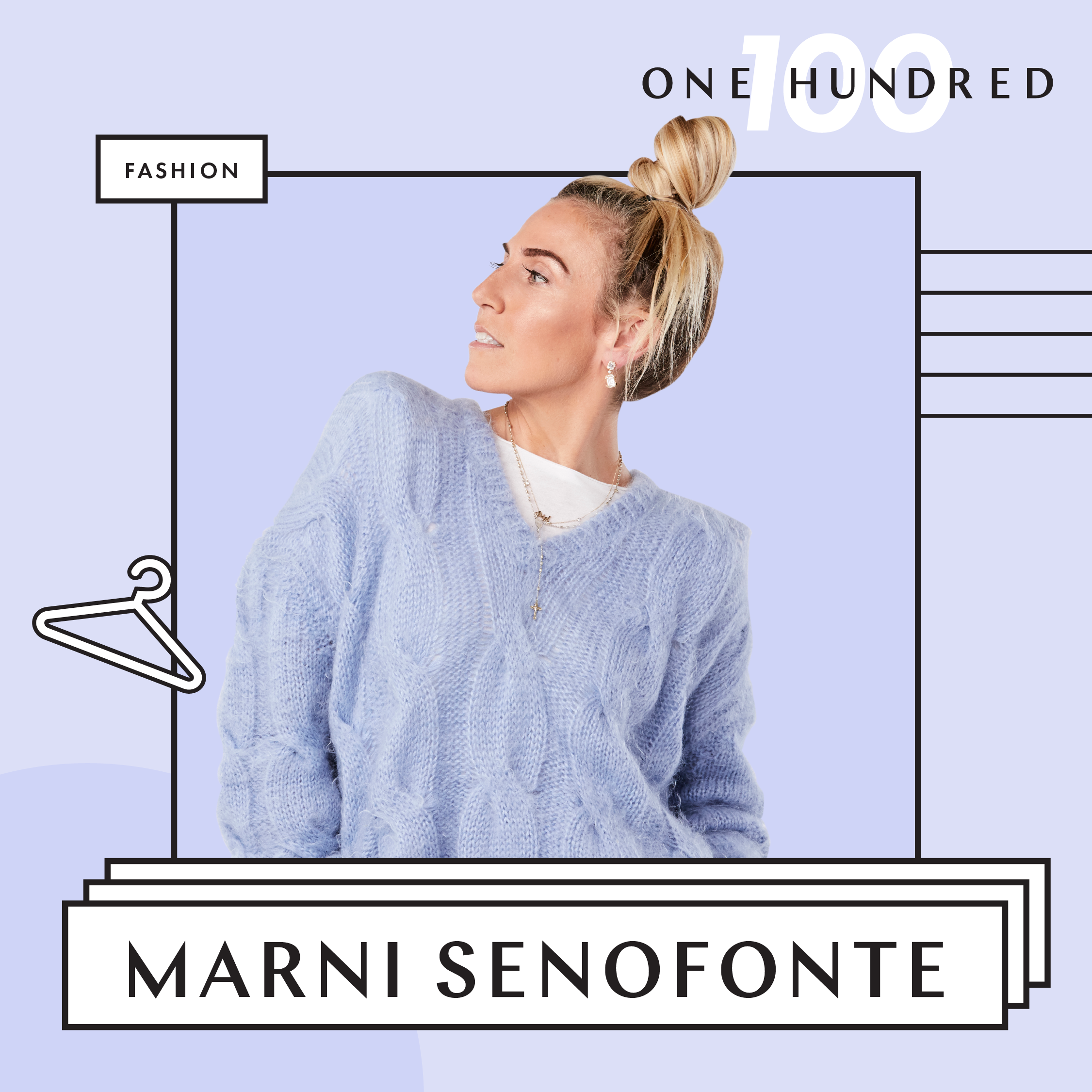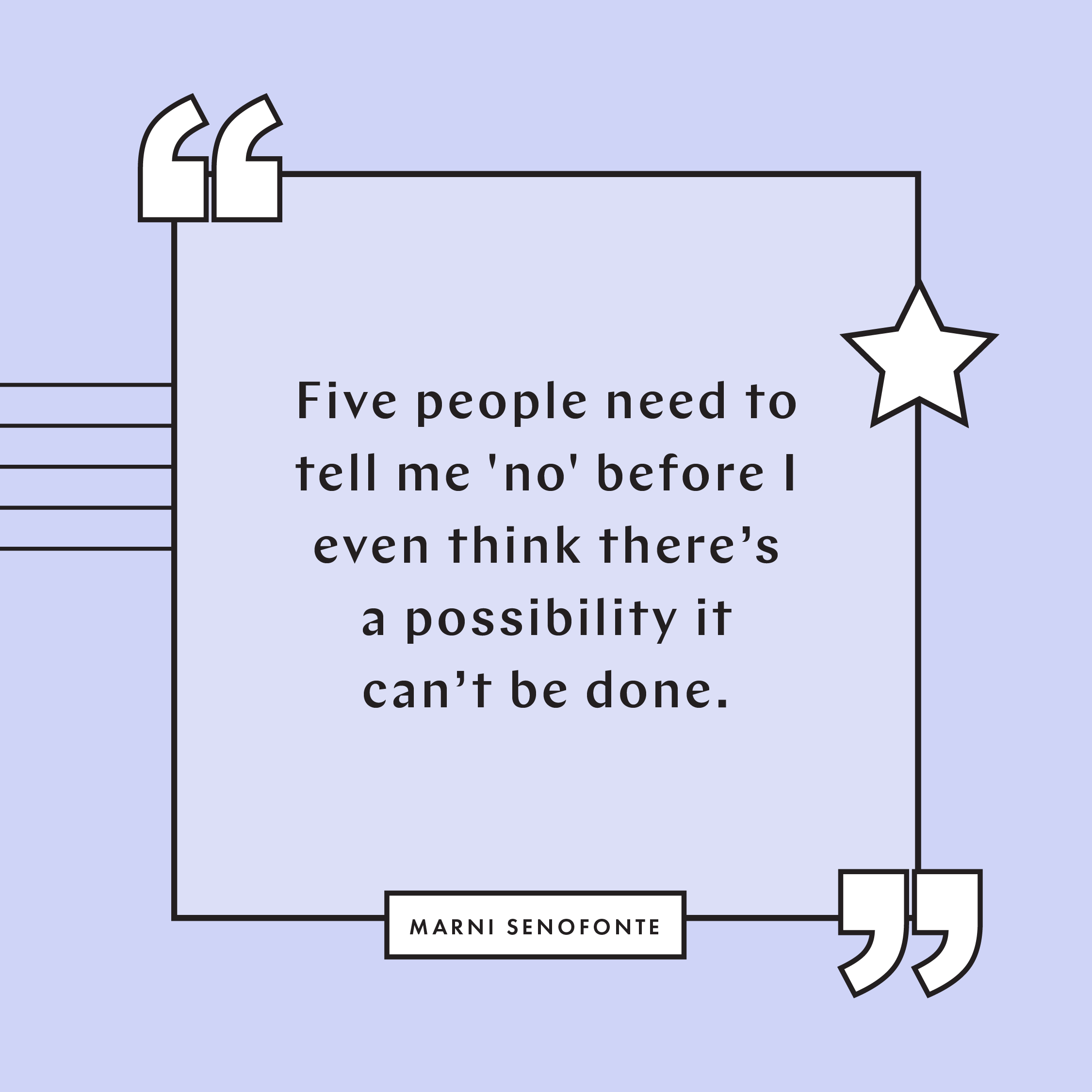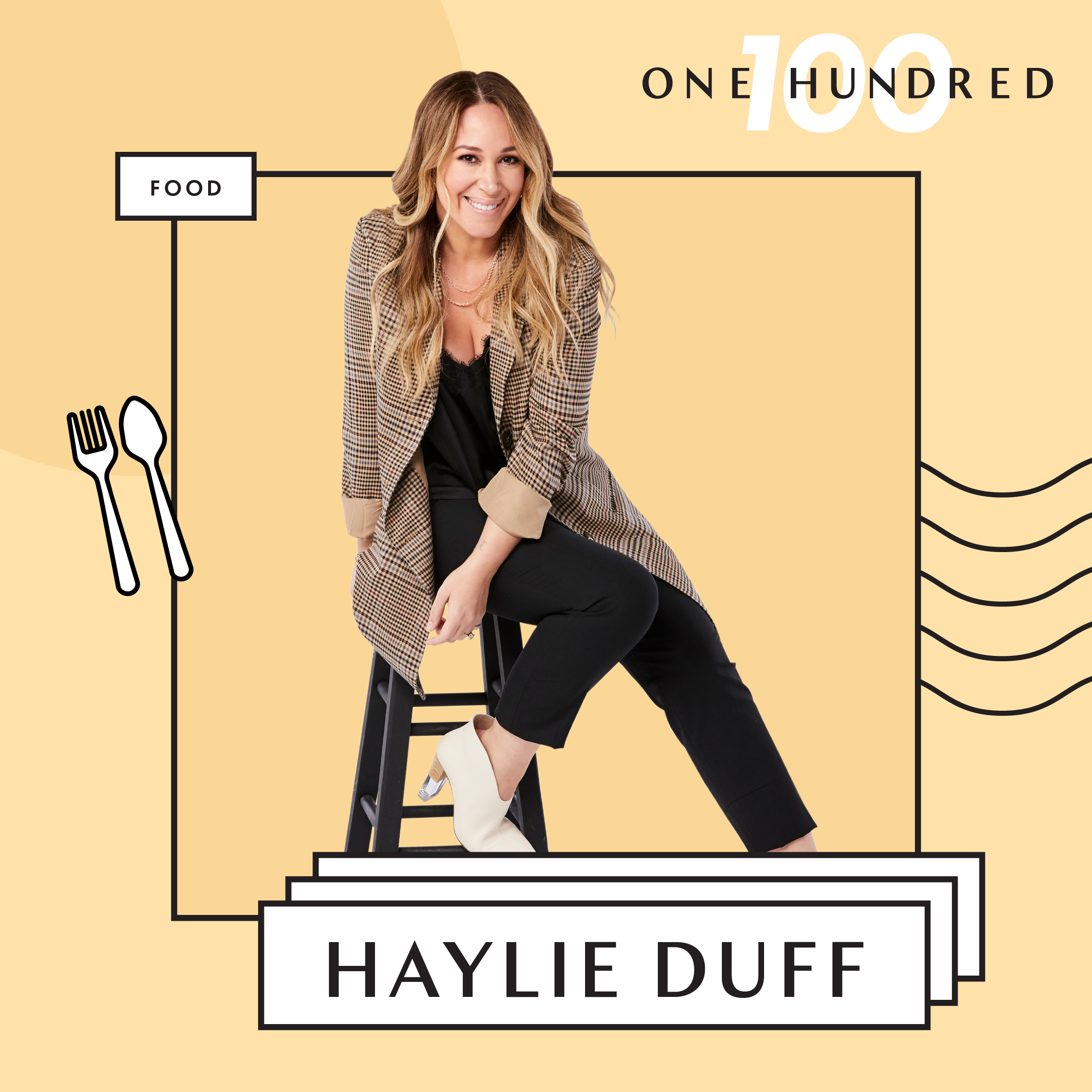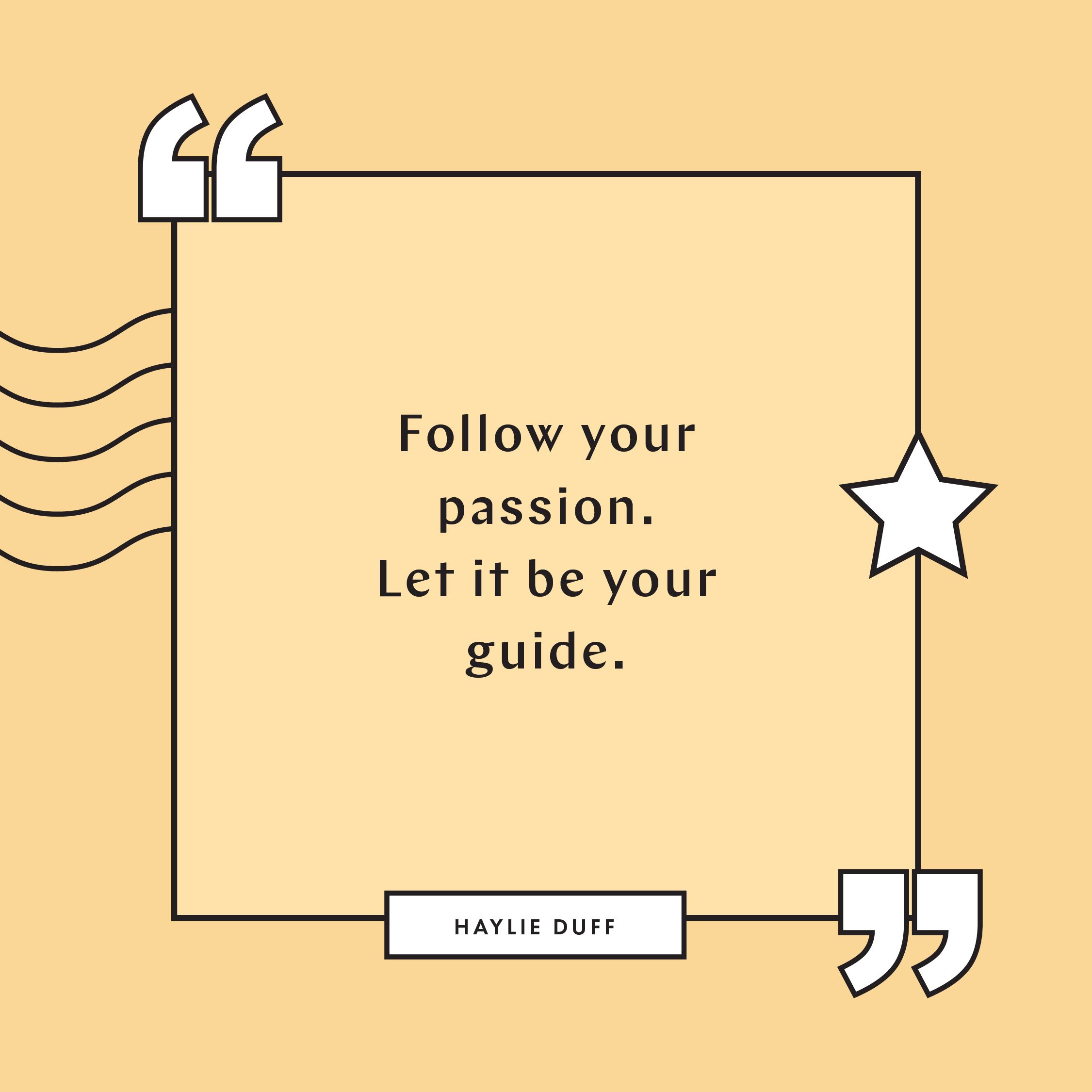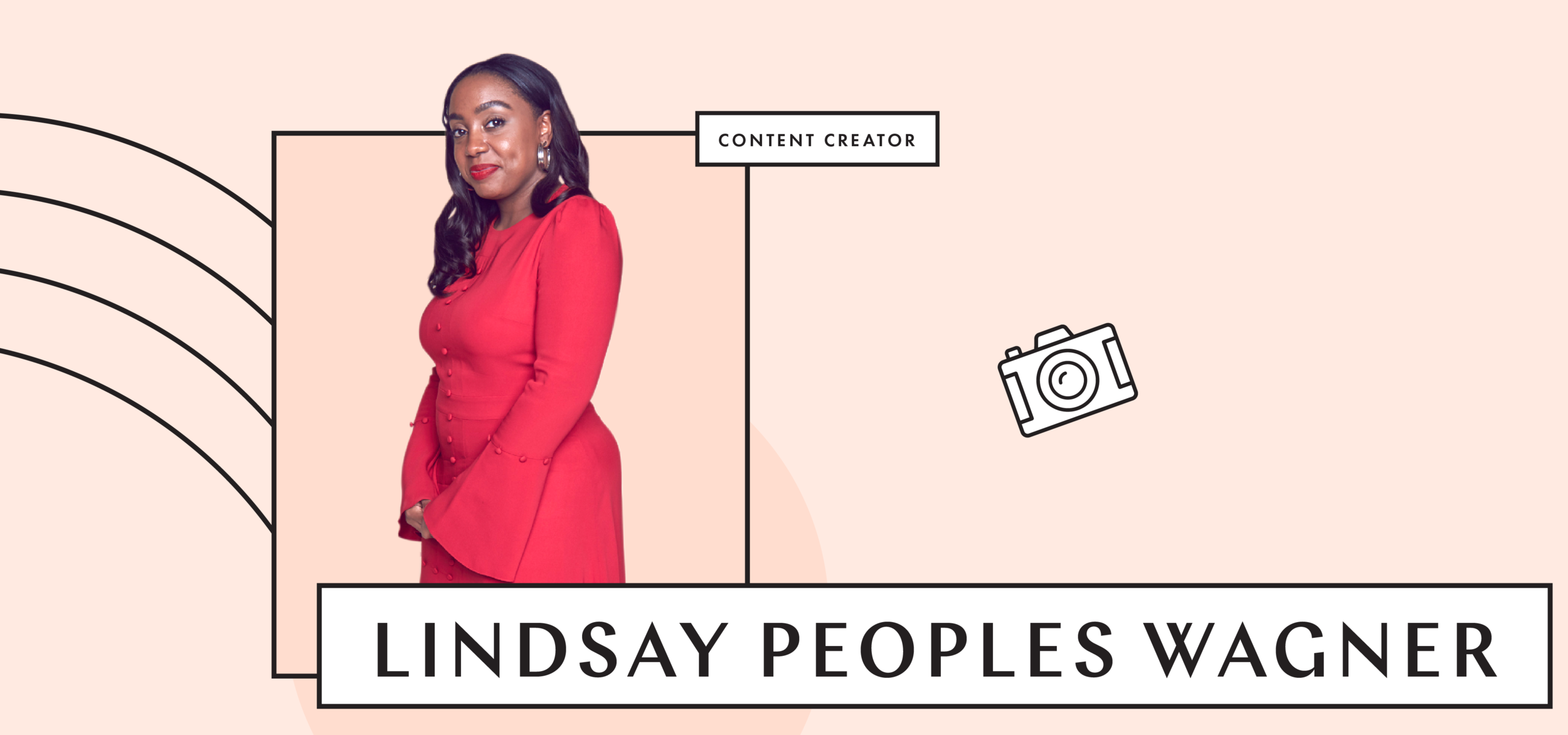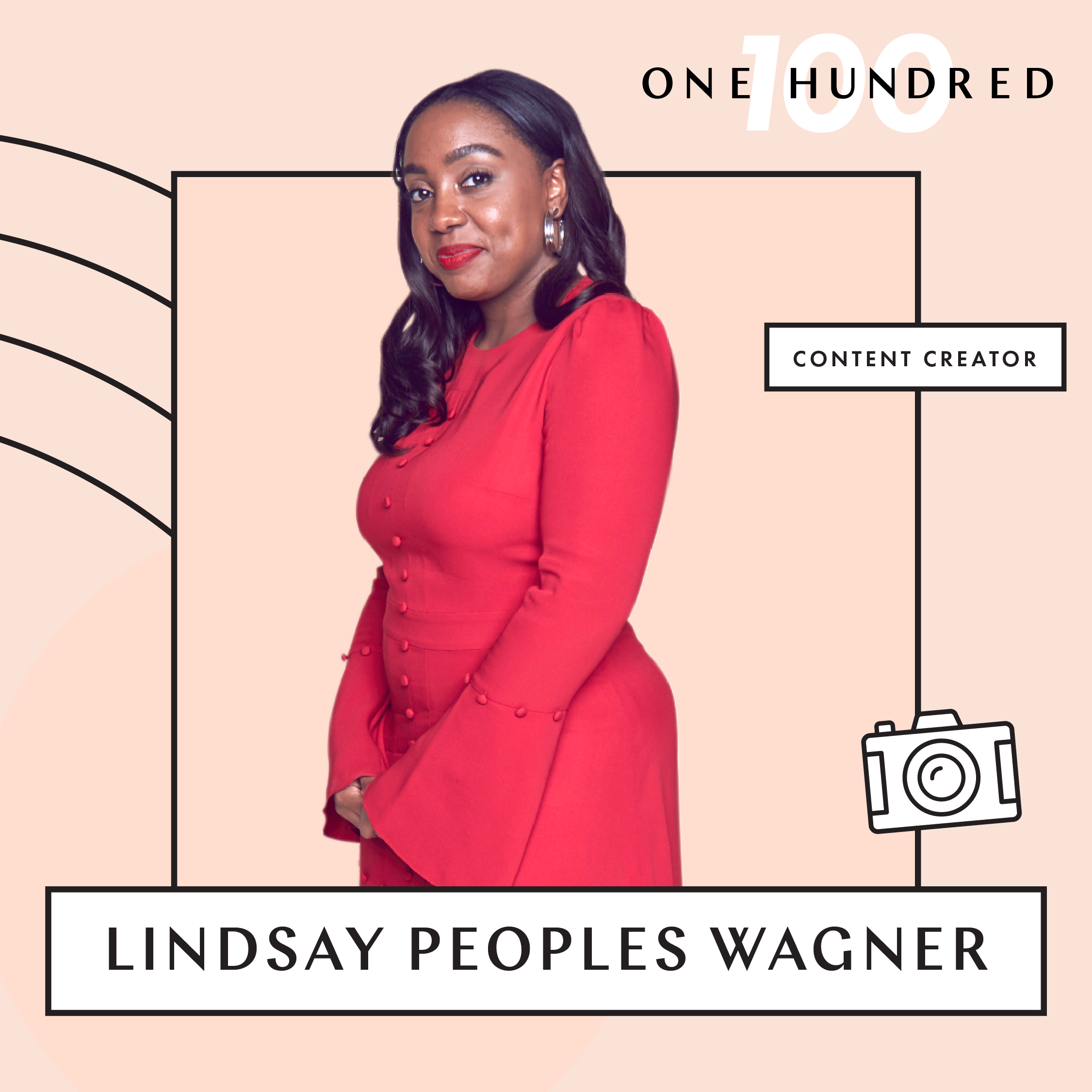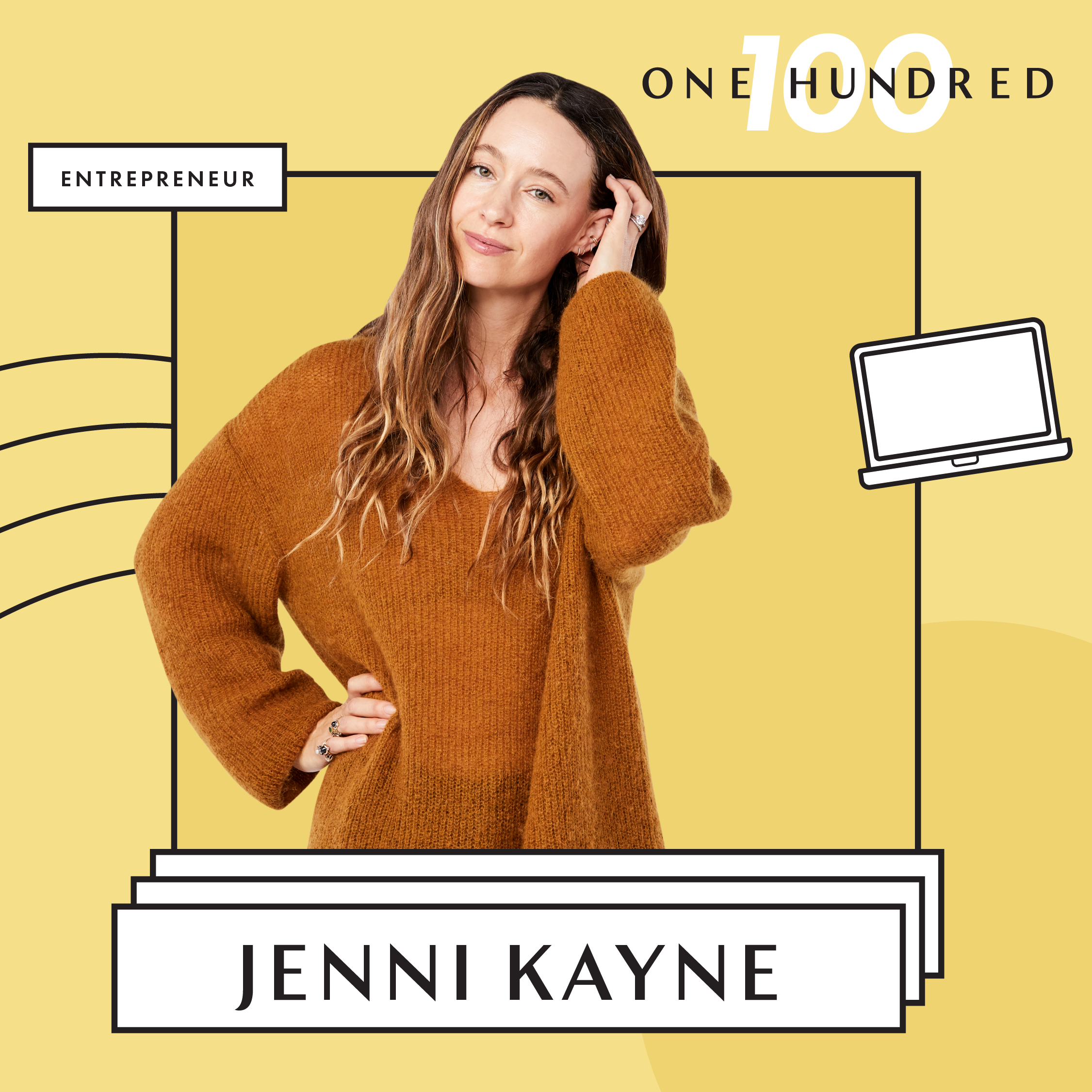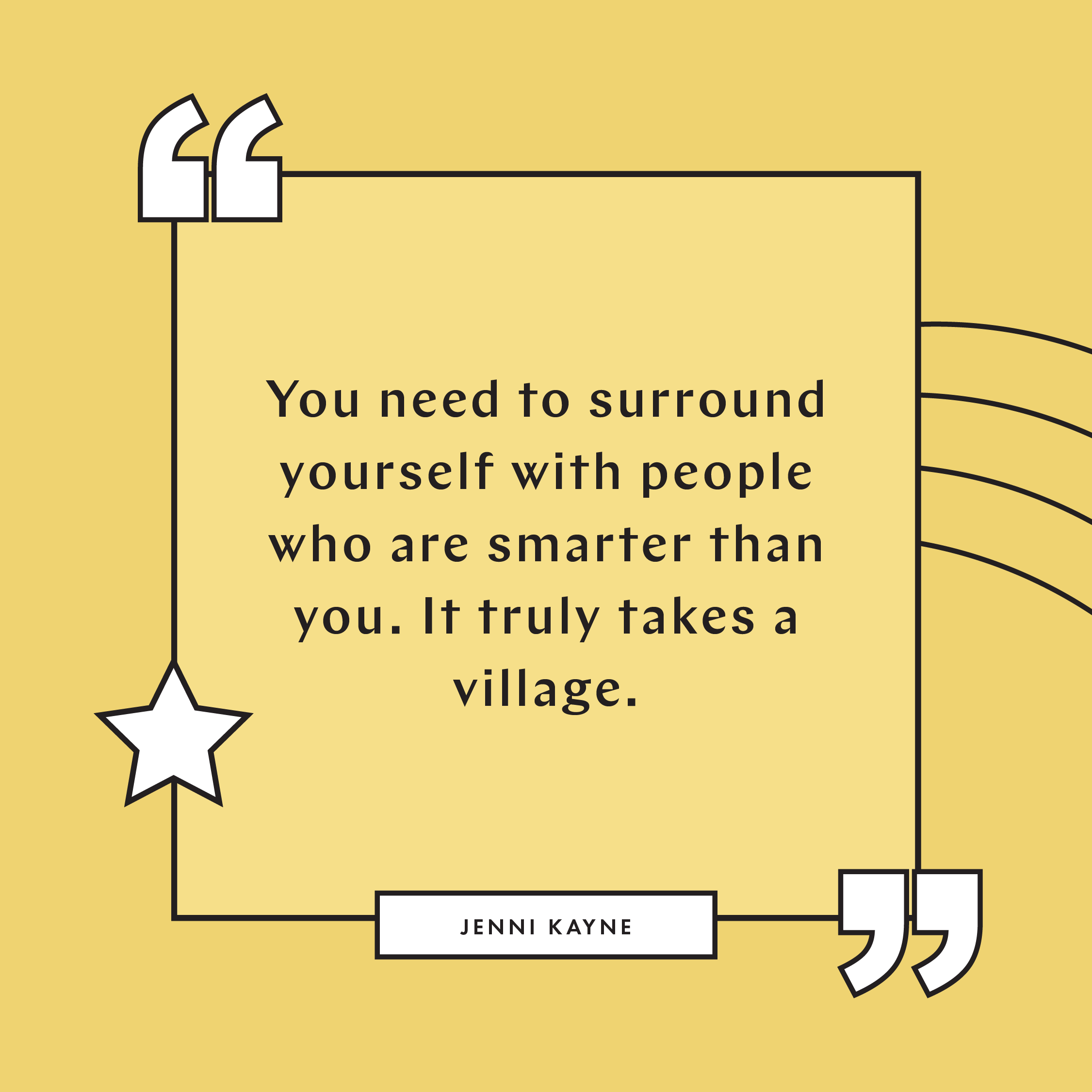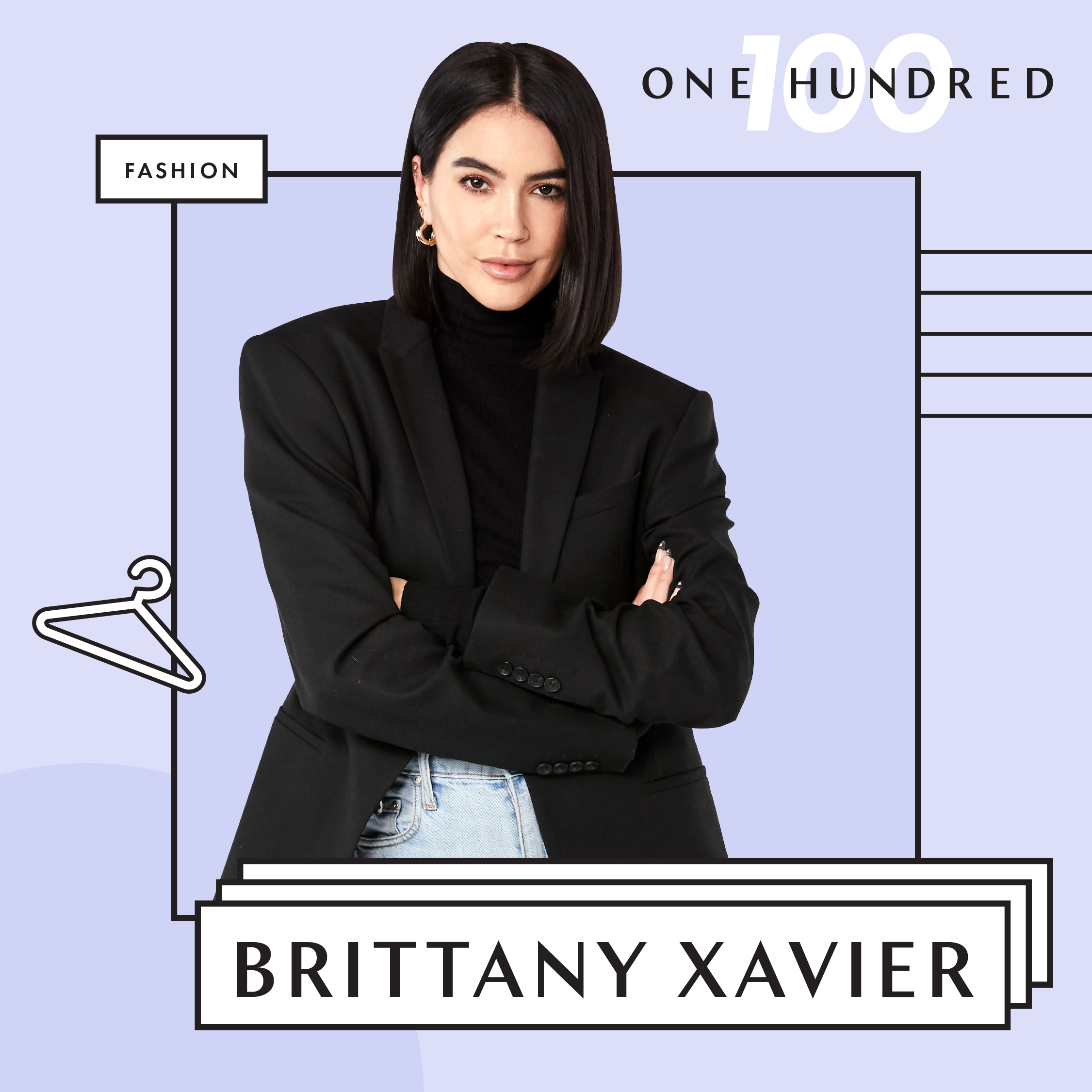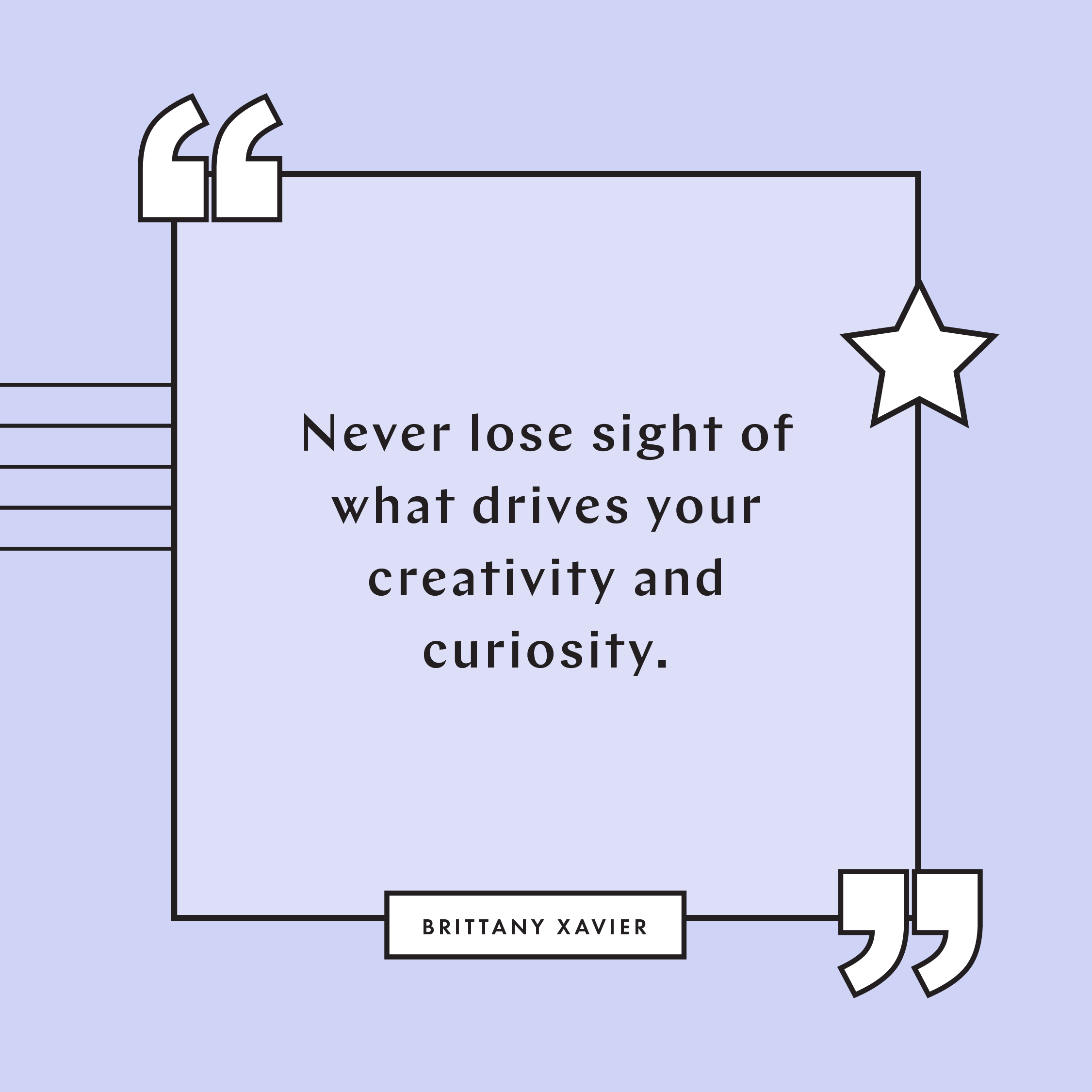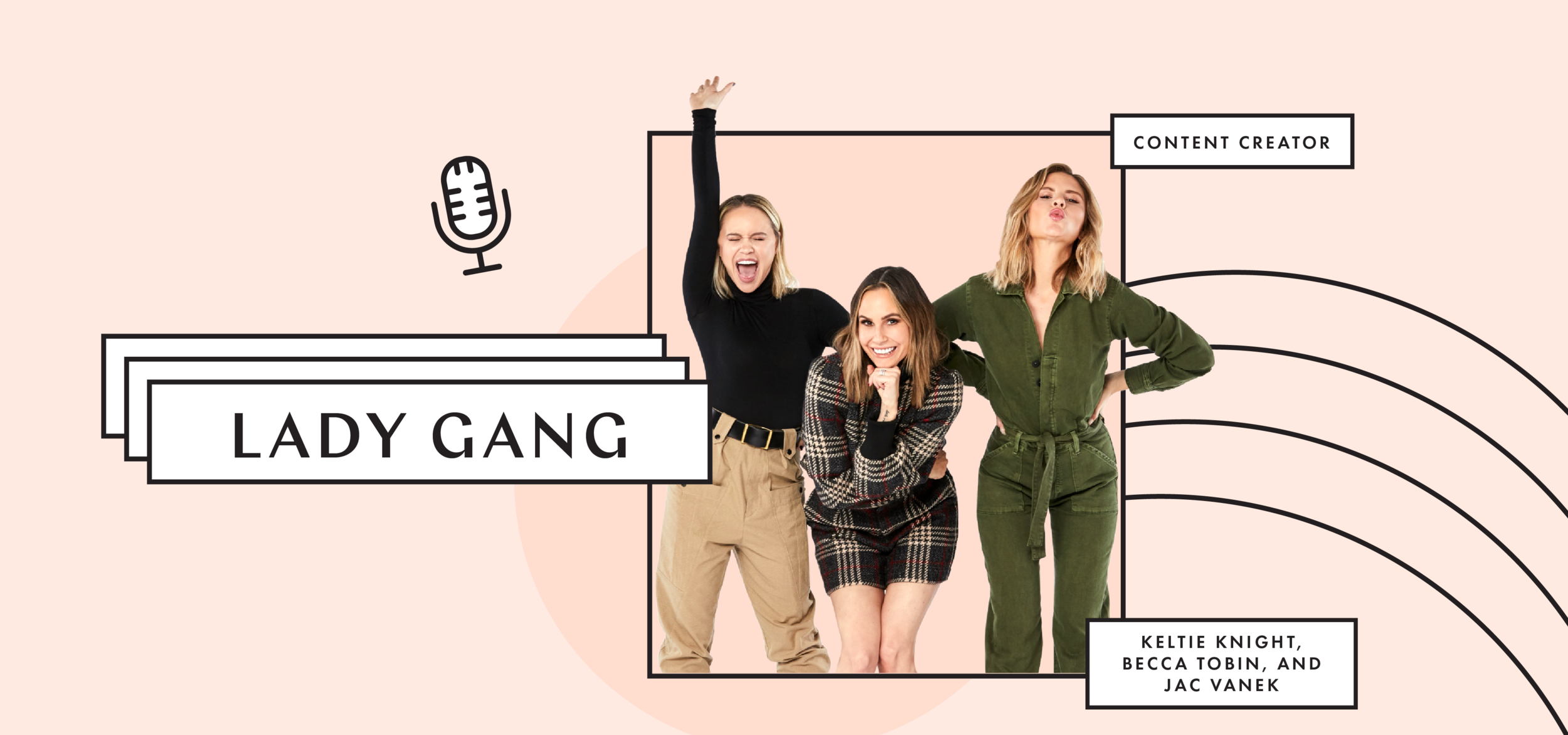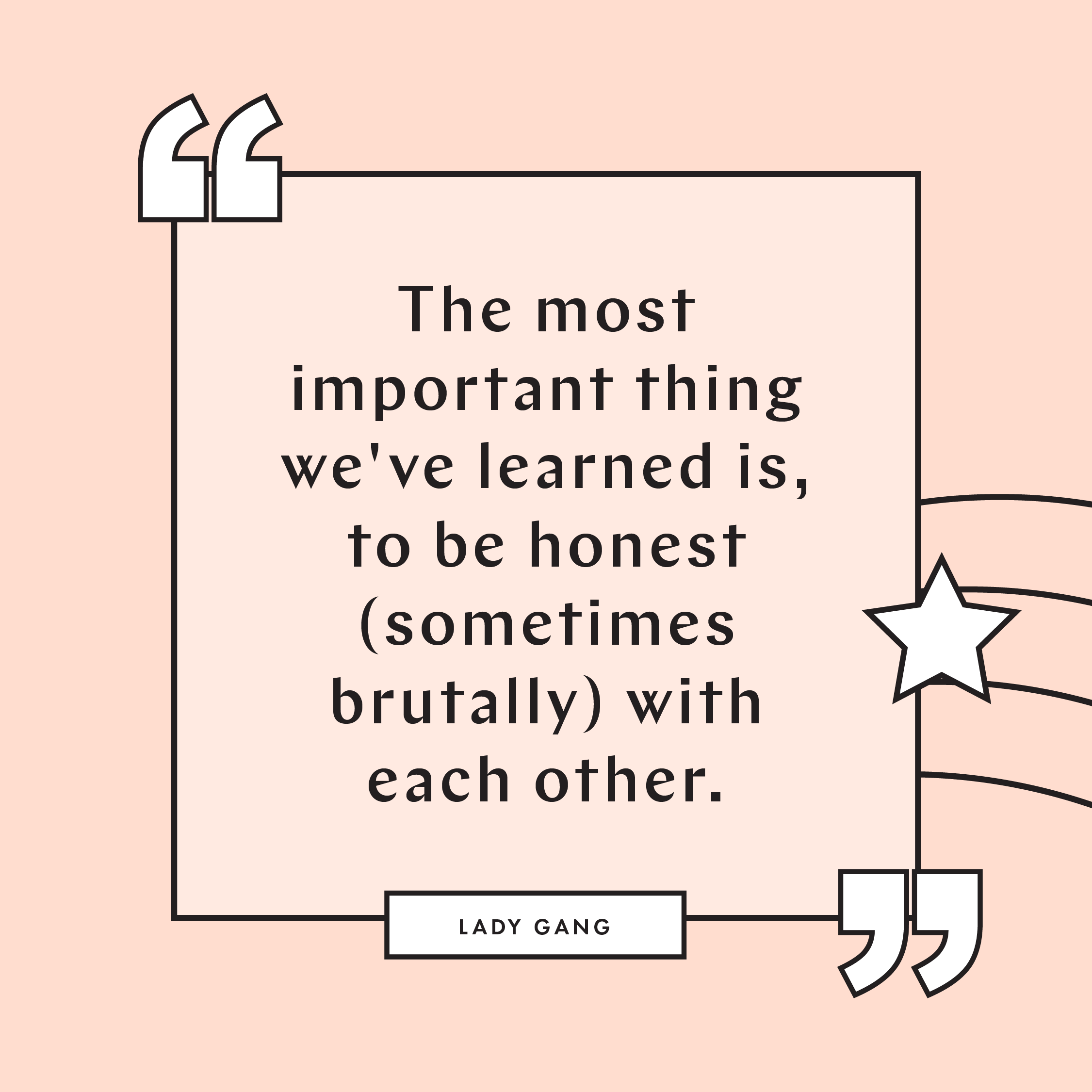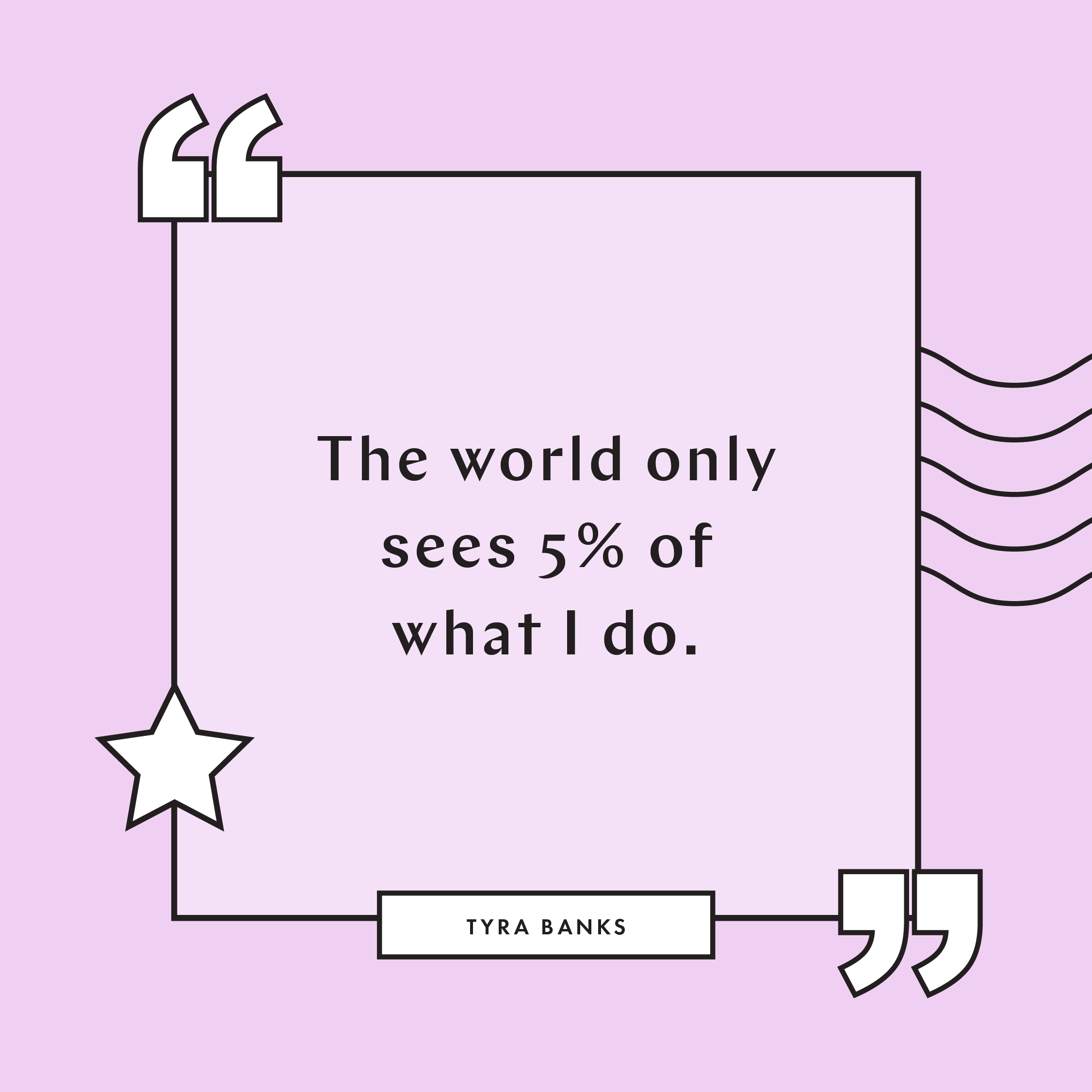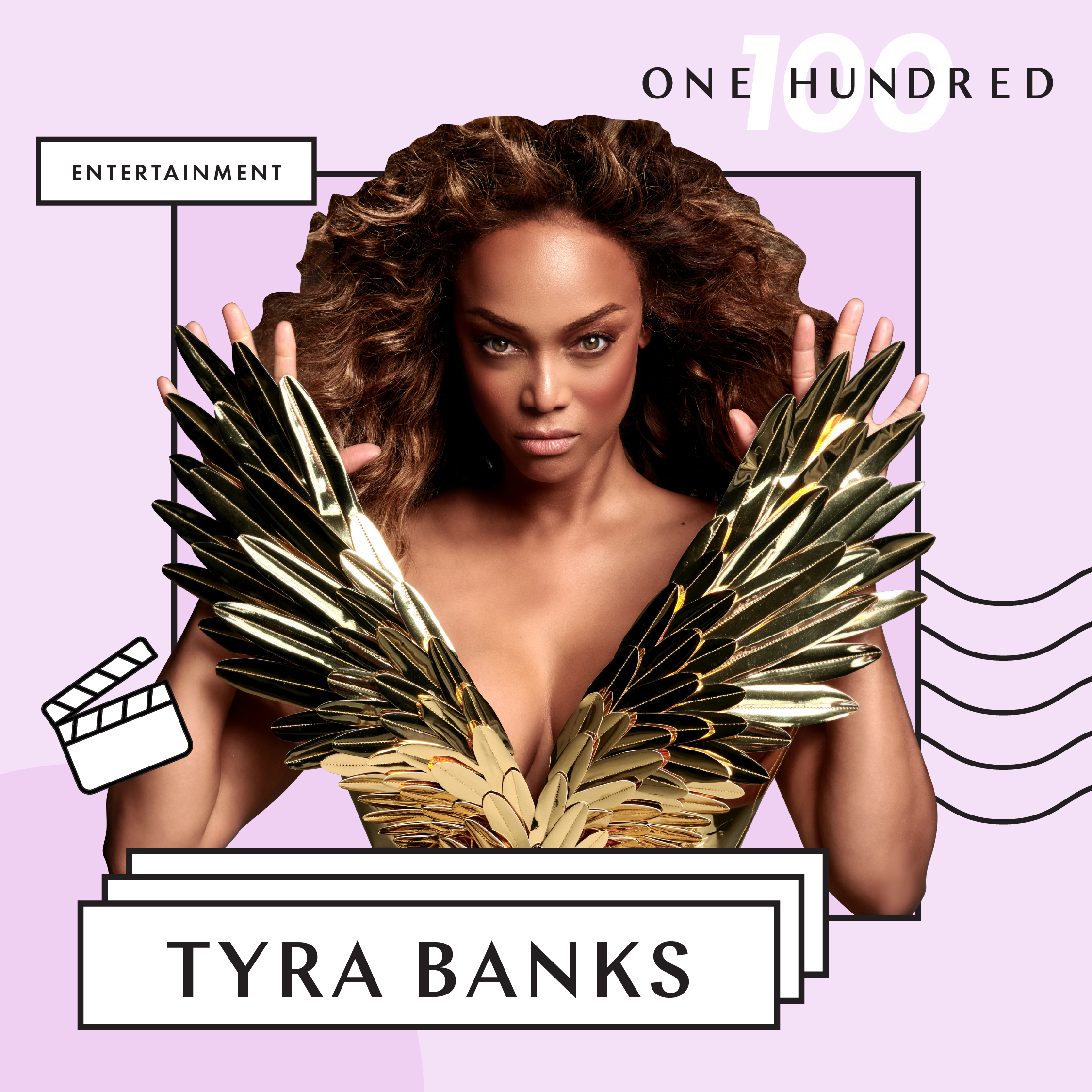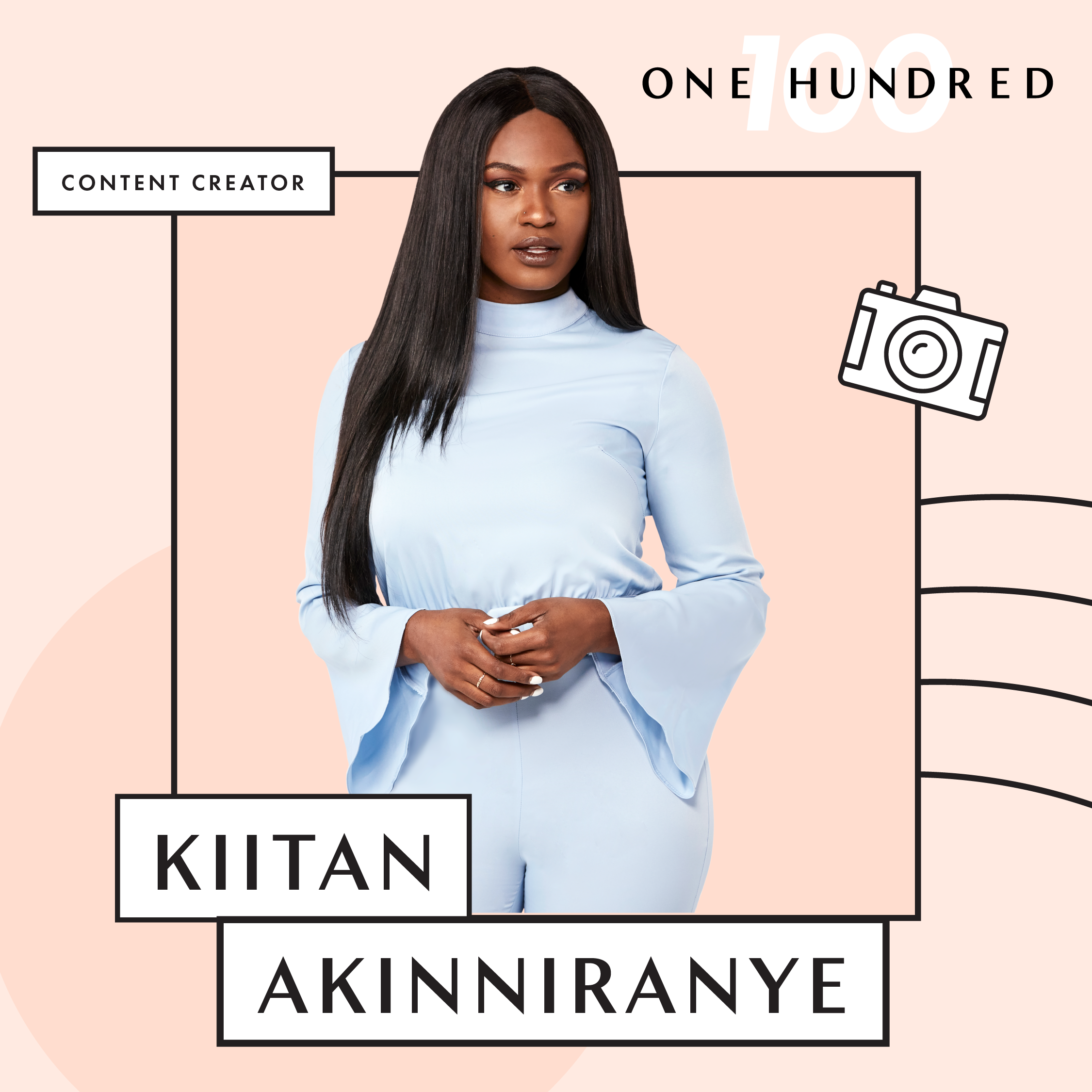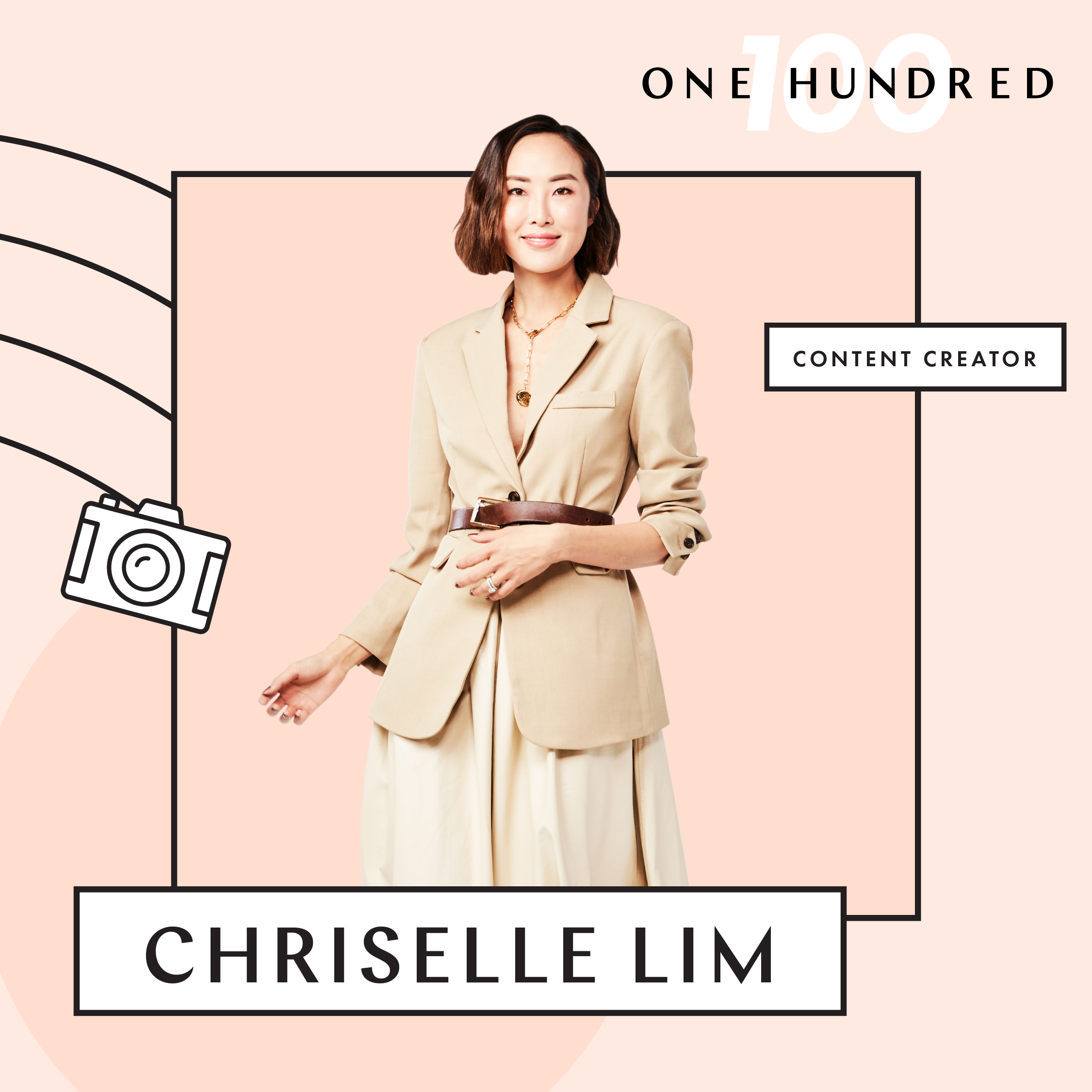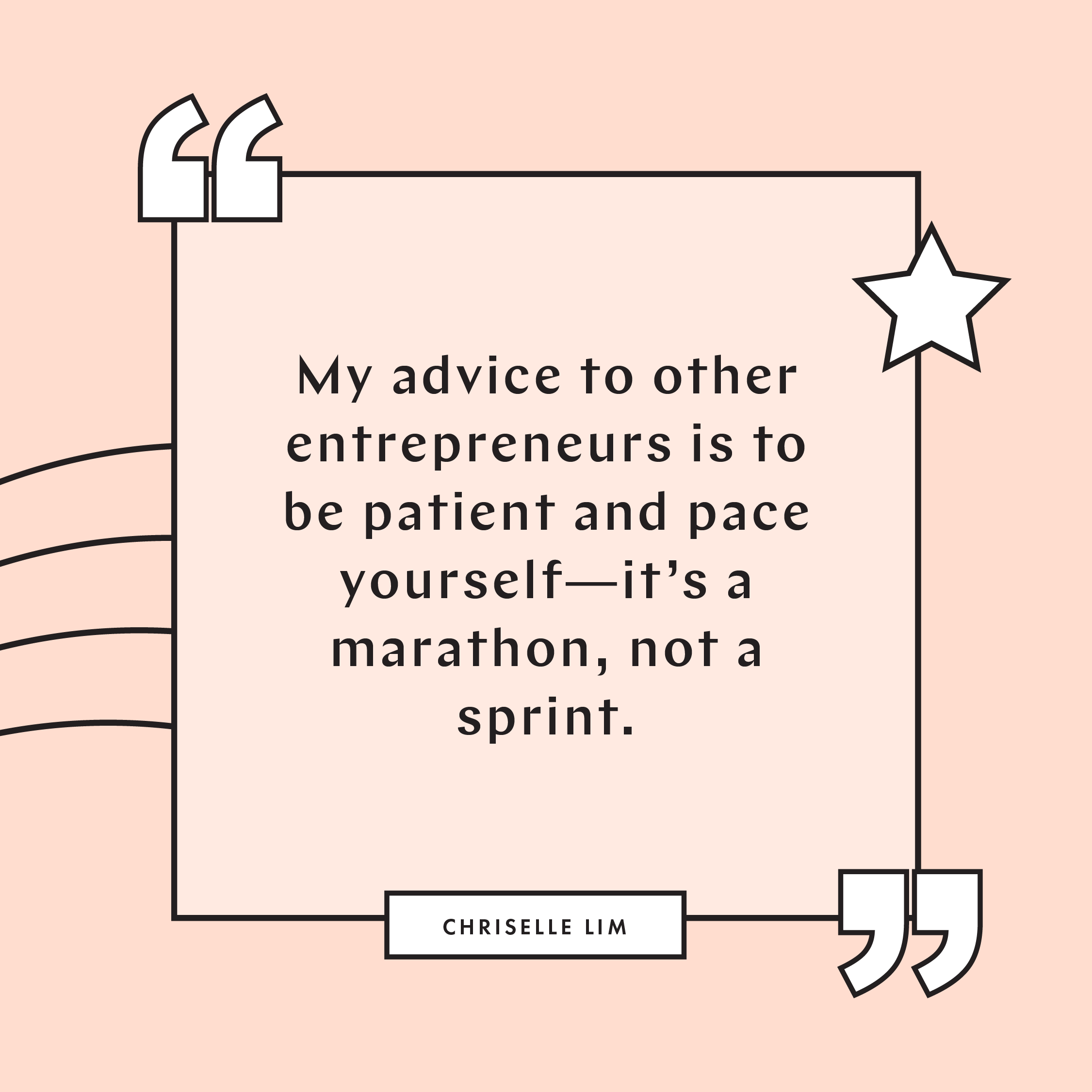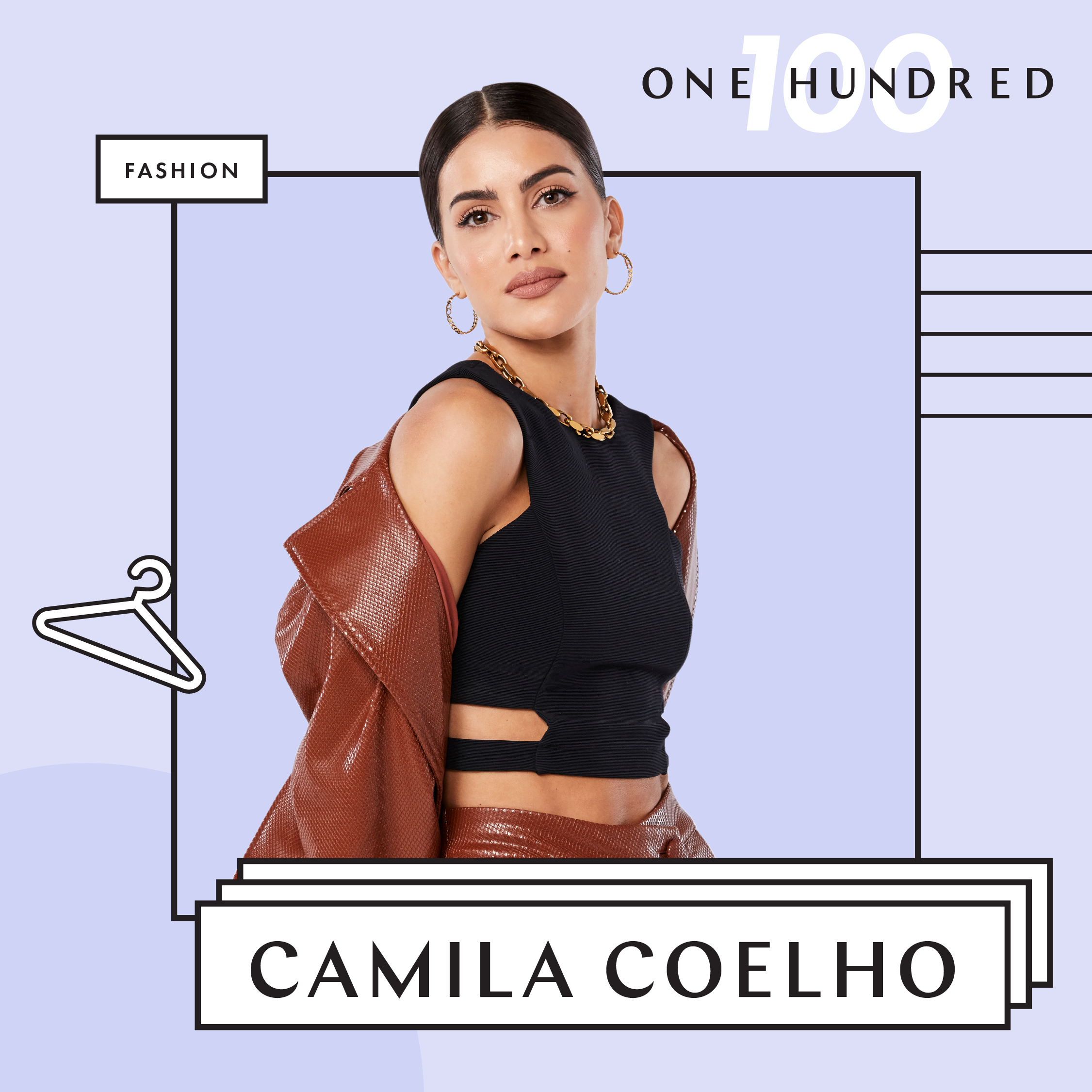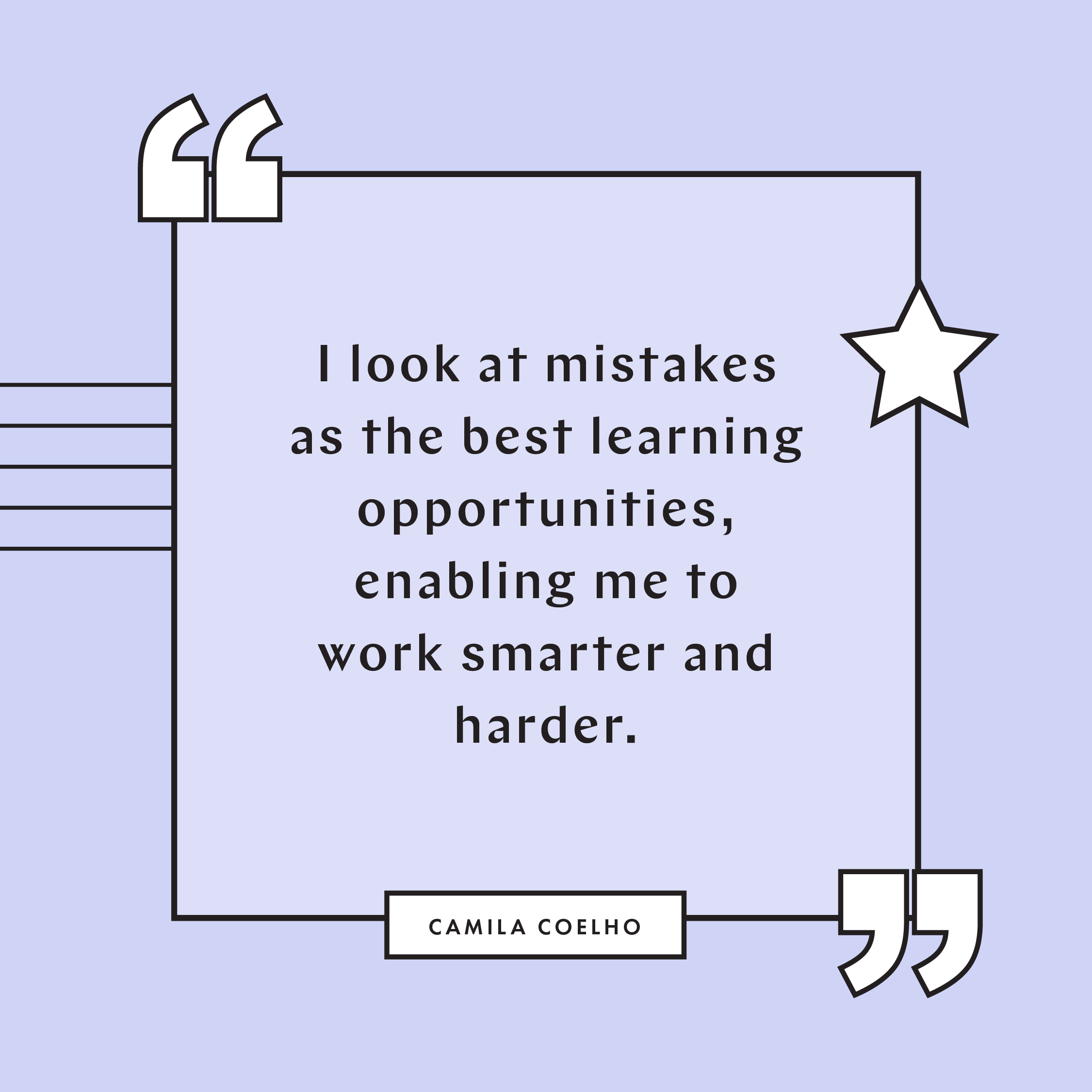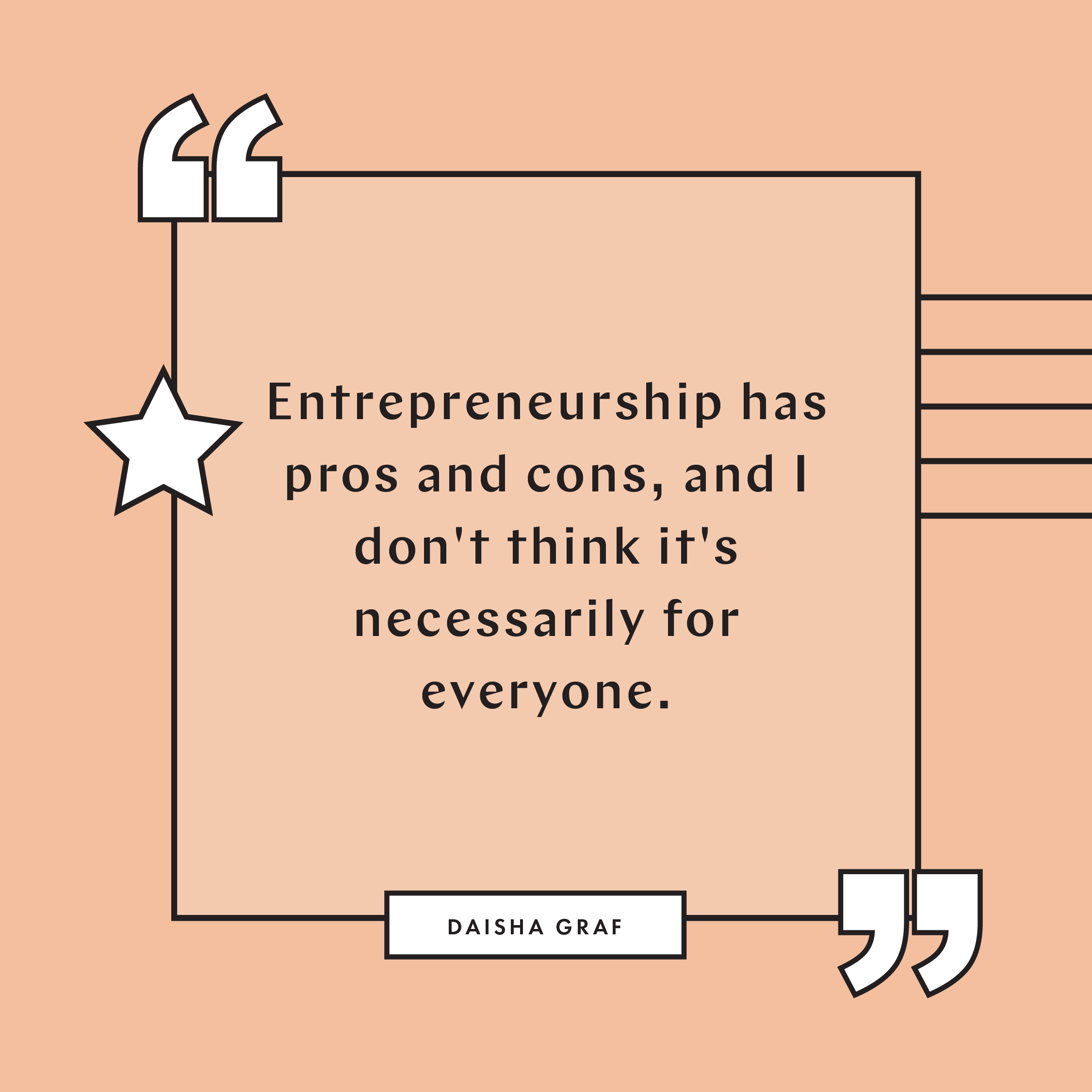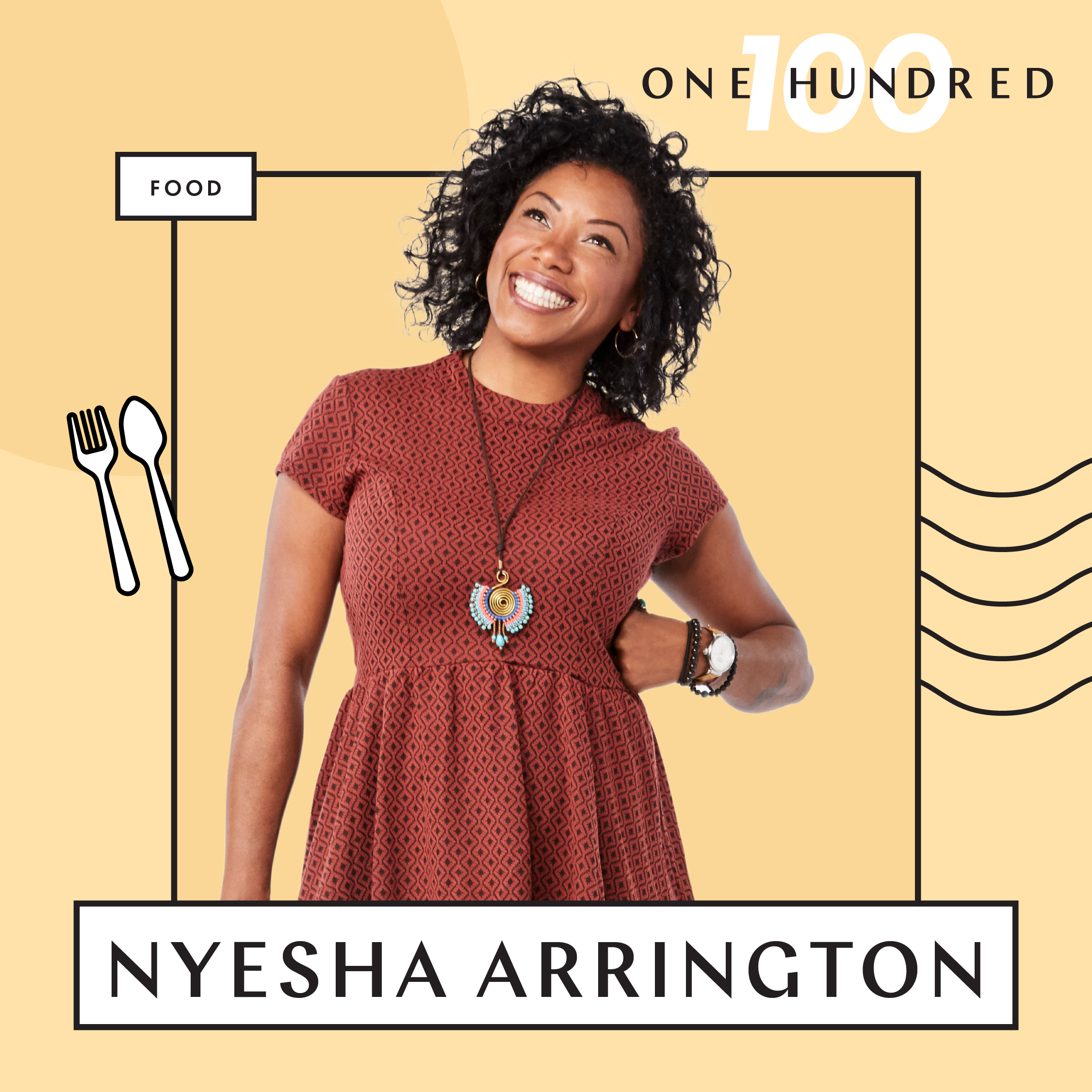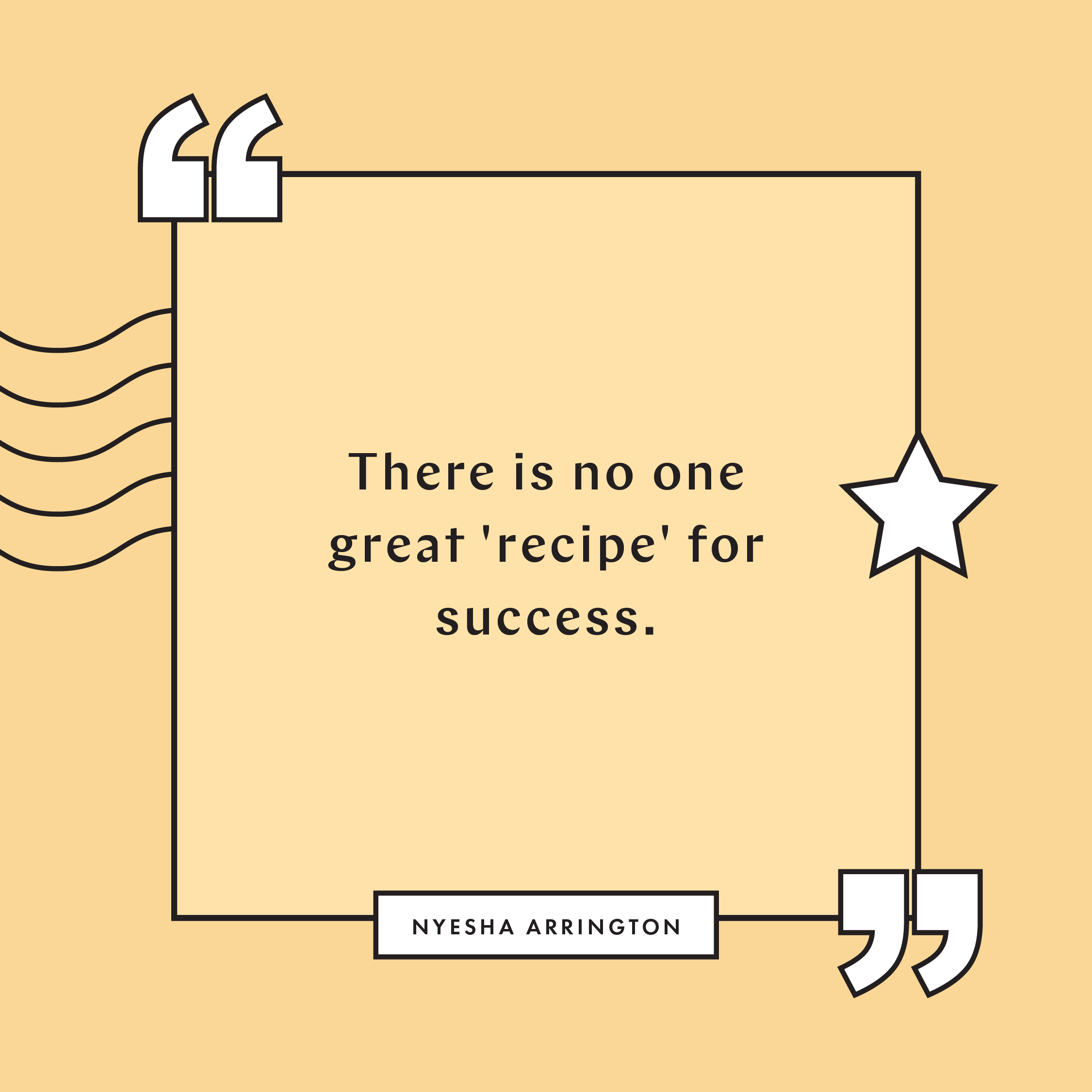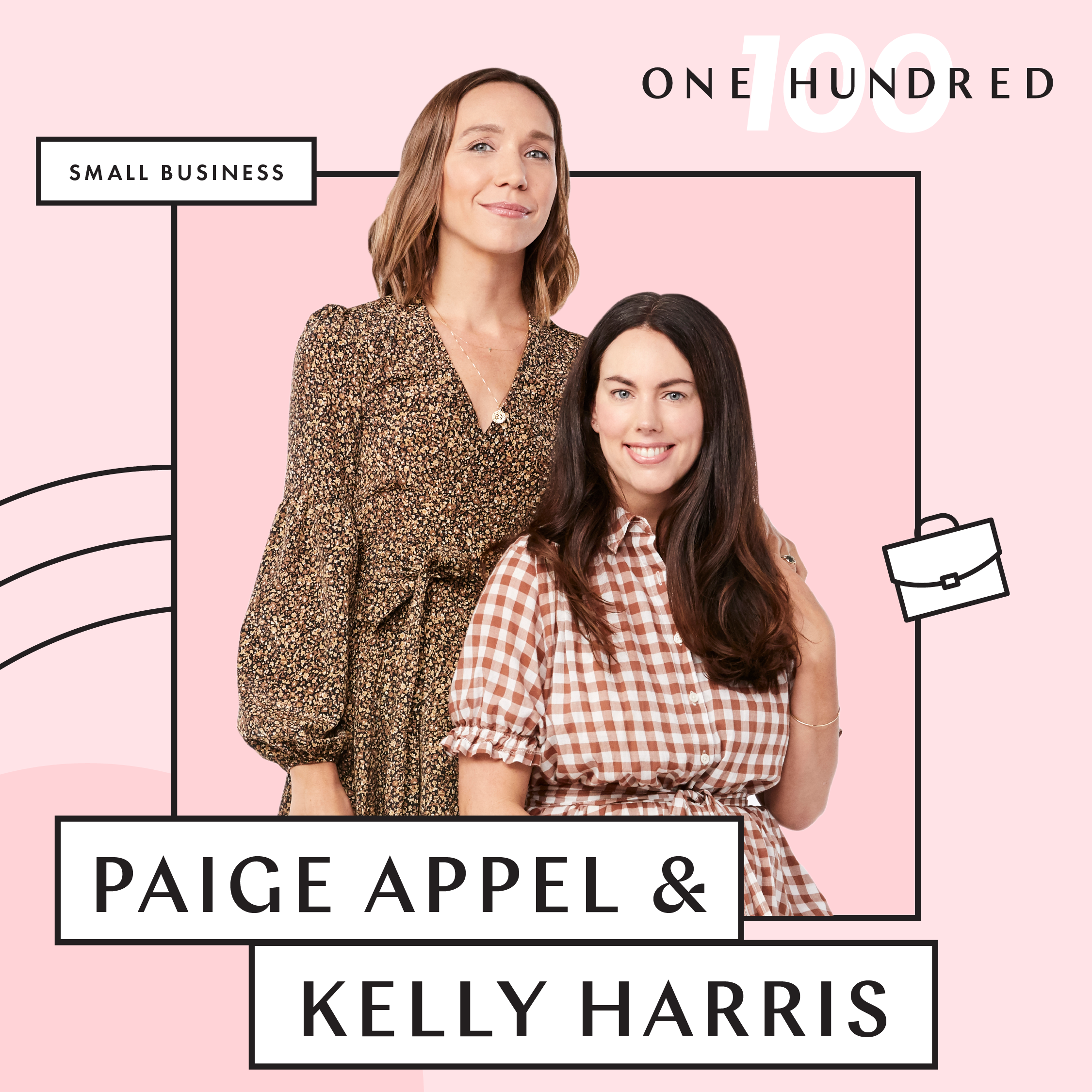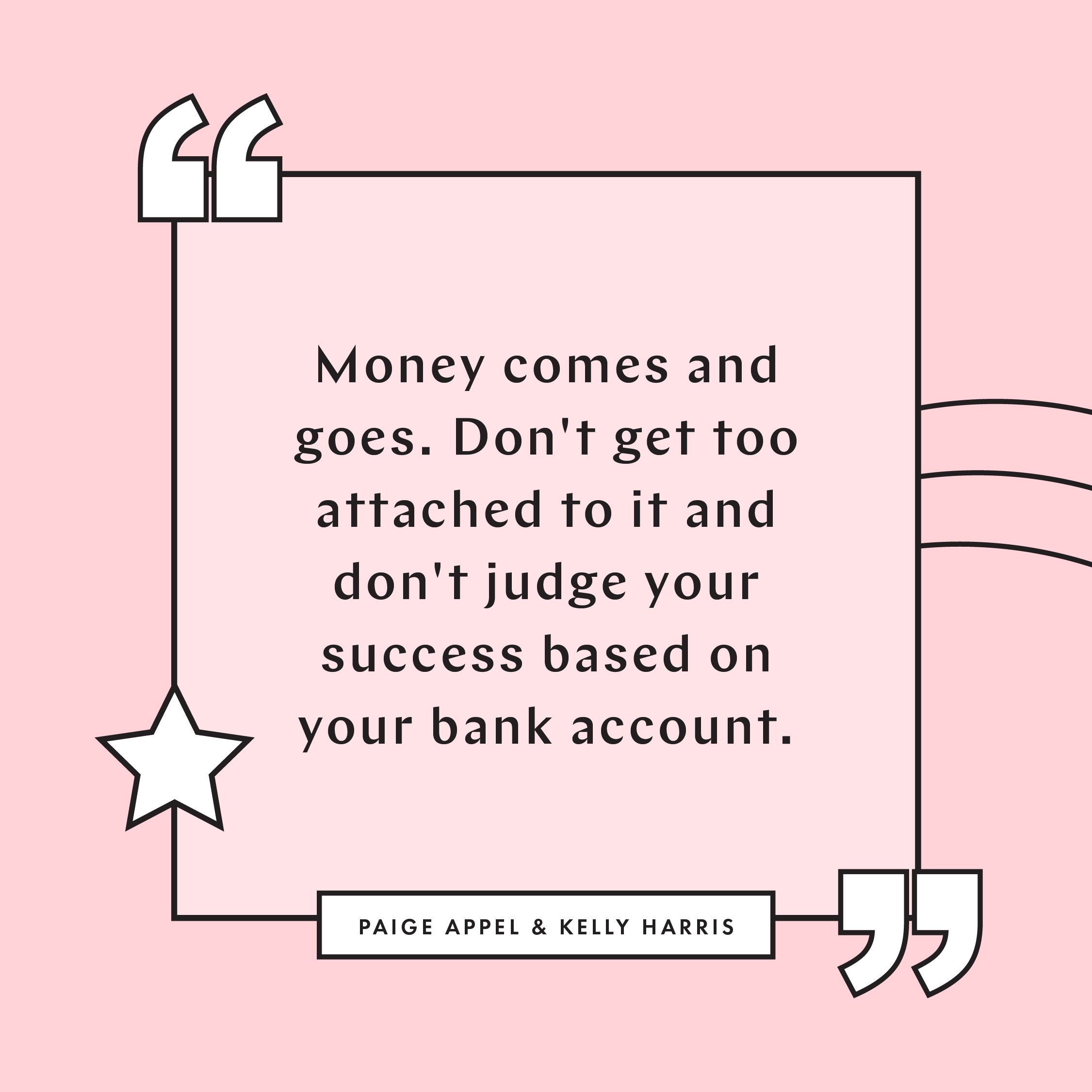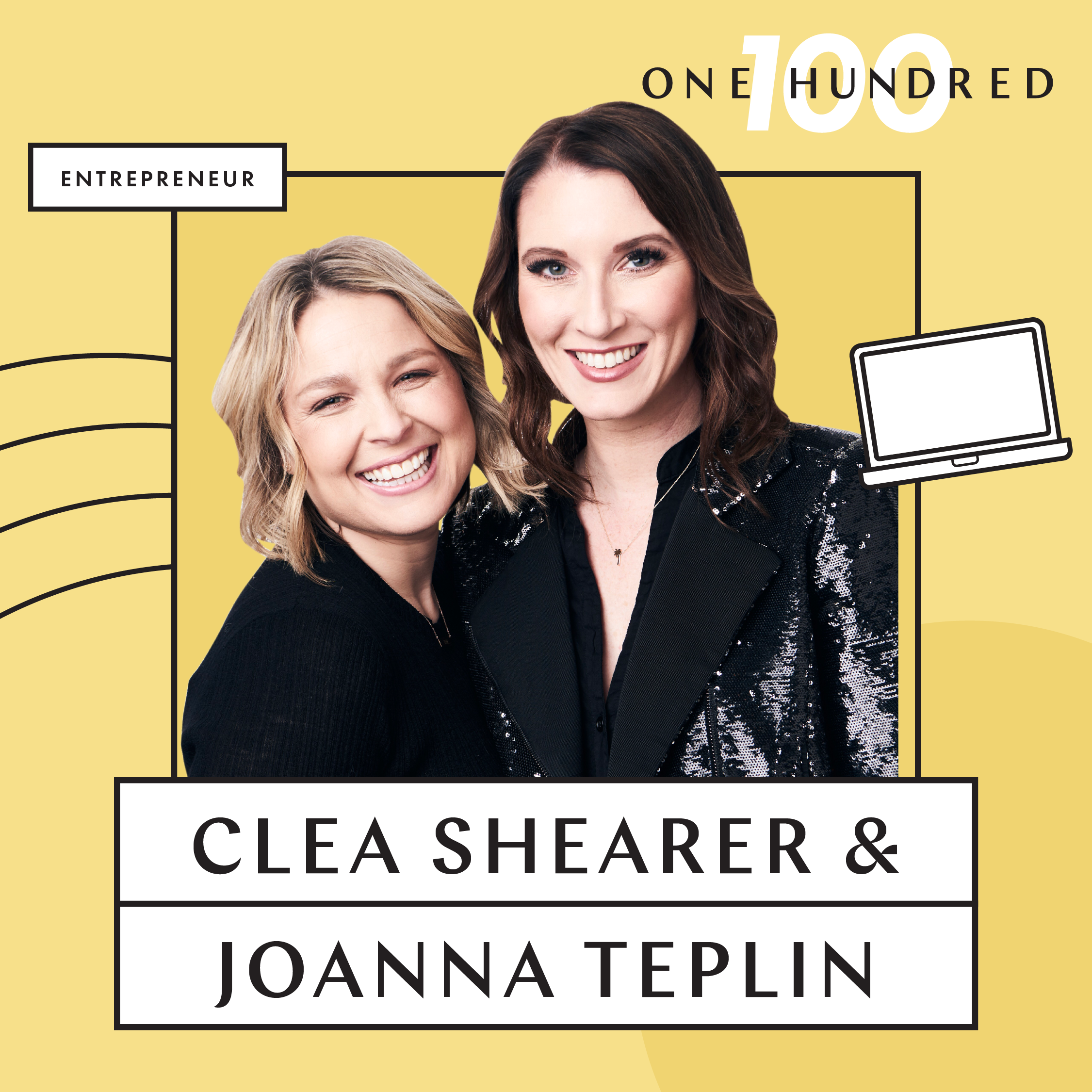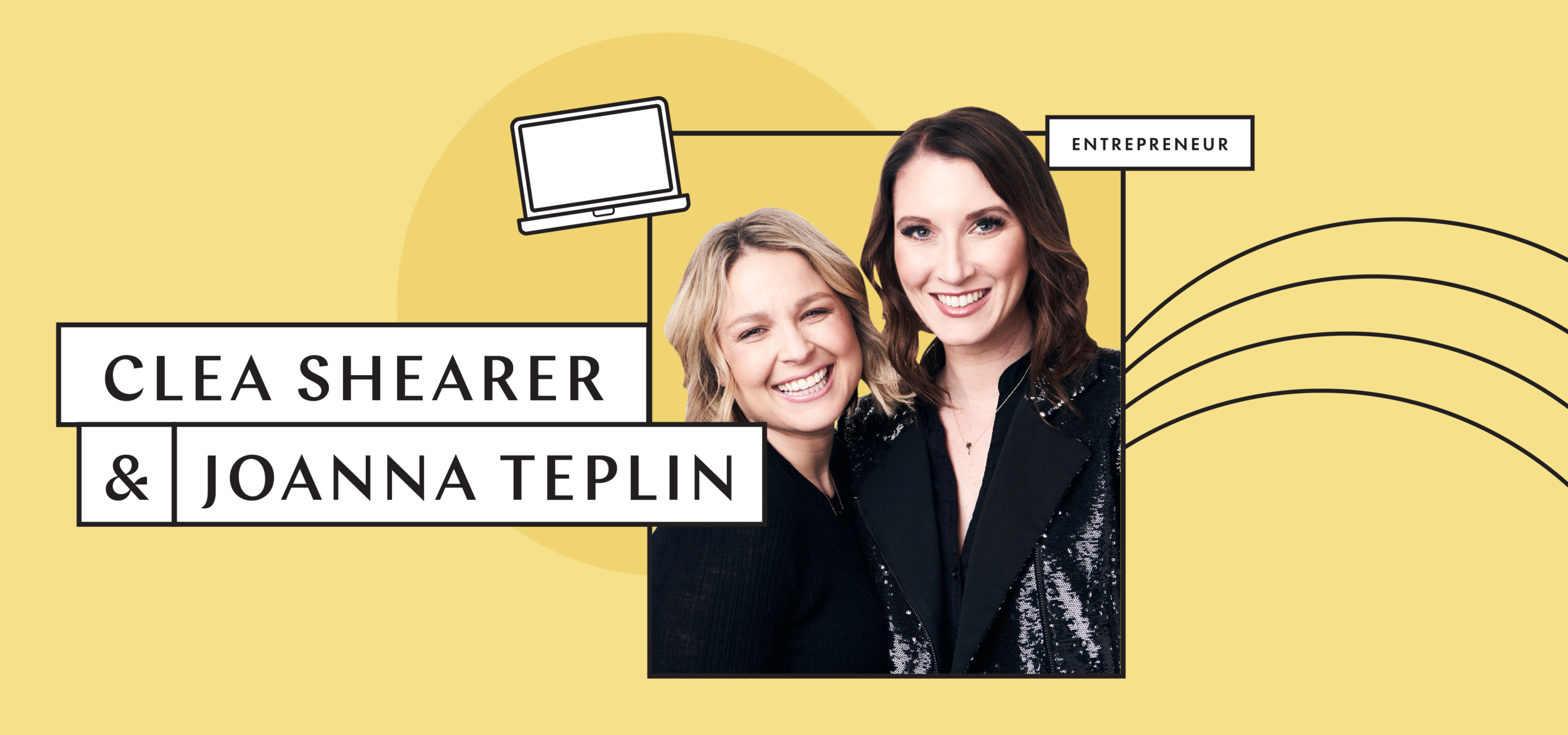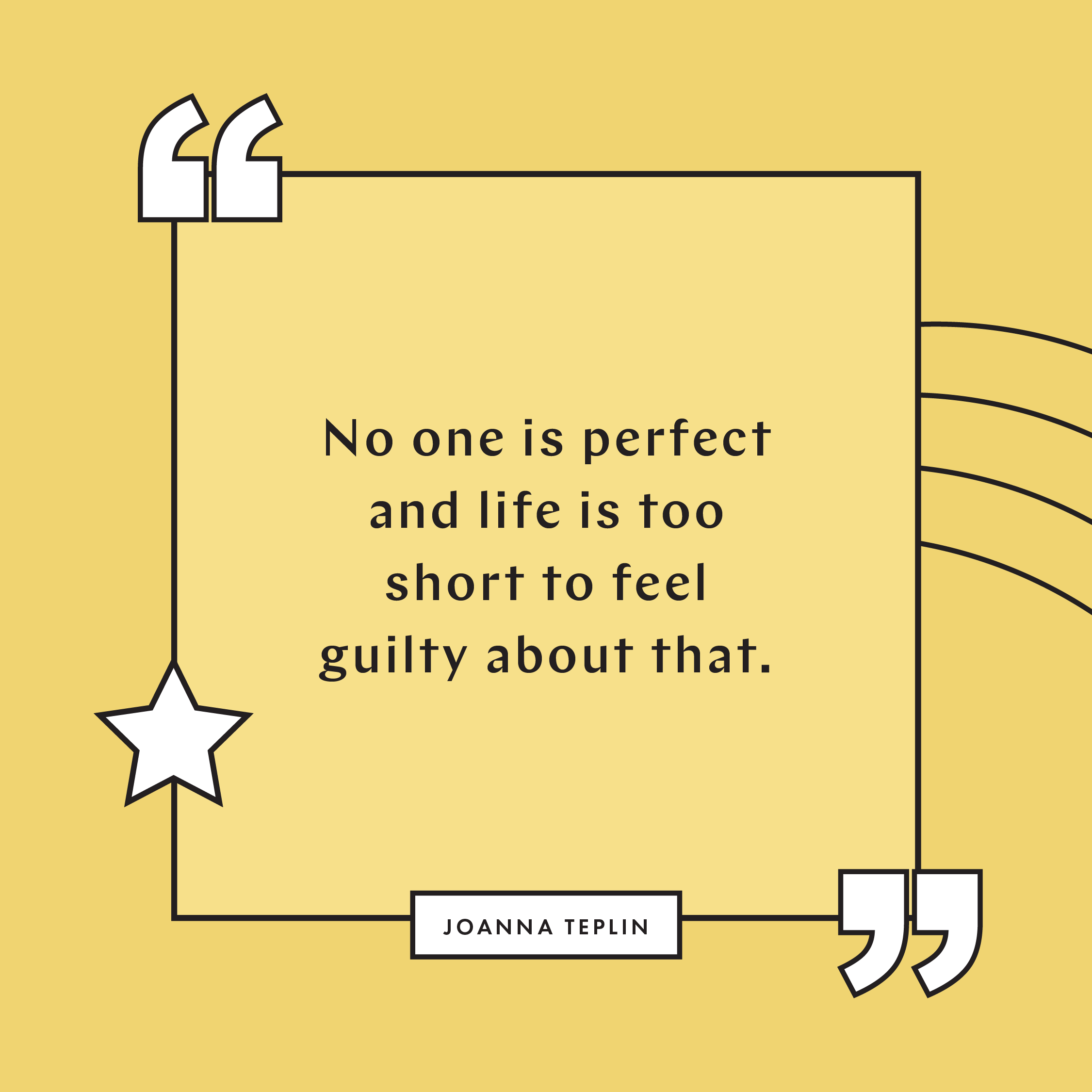Create & Cultivate 100: Small Business: Maura Cottle, Melissa Gore, & Melissa Bennett
Here's how the trio built their disruptive digital agency from the ground up.
Meet the women responsible for ensuring that the male-dominated, smoke-filled rooms of Mad Men remain a thing of the past.
After spending over a decade working for traditional agencies, Maura Cottle, Melissa Gore, and Melissa Bennett stuck out on their own to start Heat Waves, a women-led agency focused on developing digital experiences for beloved brands by the likes of Sephora, Sweetgreen, Sonos, and Reformation, to name a few.
Here, the creative collective of female founders shares how they built their disruptive digital agency from the ground up, including what it’s like working with major brands and why having a close personal relationship with your cash flow, P&L, and business model are essential for running a successful start-up.
CREATE & CULTIVATE: You are known as digital trailblazers in the industry, responsible for building experiences that are industry-firsts and true disruptors. What were your intentions when launching Heat Waves? What was your vision for the brand? How were you differentiating the brand from what was already available?
MAURA COTTLE, MELISSA GORE, & MELISSA BENNETT: We started Heat Waves because we wanted to do work that we felt passionate about with purpose-driven teams and brands. Our vision is to inspire the next generation of women and underrepresented people growing up in the historically patriarchal design and technology world. Inclusivity is at the core of every single thing we do at Heat Waves, from the clients we work with to the teams we build to the attitude and communication style we bring to the office. We create space for all people.
For those who are unfamiliar with Heat Waves, can you outline what you do for brands? What are the specific services you offer?
We are a design and technology studio that specializes in product innovation. Our services include branding, strategy, and product design and development.
You've each had experience working with major brands like Nike, Sonos, Sweetgreen, and FX, just to name a few. What advice can you share for new founders who want to work with big brands like that? How do they pitch successfully and get the business?
To get into the room with big brands, you need a reason to be there. Think about what you can bring to the table that's unique, valuable, or exciting. Be the meeting that people look forward to. Evaluate your networks and relationships for opportunities. Get specific about what you want and why.
Once you’re in the room, our philosophy is to make a pitch as interactive as possible. It’s not Mad Men; it’s actually just having a conversation with people who are also passionate about what they do and want it to be great. We identify the most interesting challenges, opportunities, insights or ideas for a specific brand and use that as an anchor to provoke conversation in the room. We find this approach is less about selling, and more about making sure everyone leaves the room with something tangible and understanding of what it’d be like to work together.
“To get into the room with big brands, you need a reason to be there. Think about what you can bring to the table that’s unique, valuable, or exciting.”
Being a founder is never a smooth path. What are some of the biggest lessons you've learned through the process of starting Heat Waves? What have been the biggest challenges? Why?
We have learned to be vulnerable and trust each other through this process. We are always learning how to be better partners.
We are a passionate team that loves to say “yes” to amazing clients who have ambitious plans. We put the work first which can enable scope creep and over-delivering, which is not always ideal for a small growing business.
Communication is half the work for any deliverable. Have you ever been to an escape room with people who don't communicate? You won’t make it out of there. It leads to frustration and inefficiencies. Doing everything perfectly won’t matter if you don’t communicate. We have learned that this isn’t easy or the same for everyone. It takes empathy, patience, and trust in your team.
When you hit a bump or hurdle in your career, how do you #FindNewRoads + switch gears to find success?
Try to take a hard look at any perceived failure to see what you can learn from it. Identify things you can improve or change within your control, and let go of everything else. Take a step back and try to really understand what success looks like to you. Then find a mentor.
You've achieved so much success since your launch. What do you wish you could go back and tell yourself when you were first starting out? Why?
Flashback to two years ago. We’re sweating in a garage and pitching Sonos with some staged artwork behind us. We would tell those ladies to hoard every dollar and every cent to see what you can do in a year. Be more aggressive and focused. You’re too small to be an everything shop. It's easier to make decisions when you have money in the bank.
You are in the business of developing unique brands. What advice can you share for new founders/small business owners who want to create a unique brand that stands out from the competition? How do you create a brand that lasts?
If your brand was a person, who would they be? It’s not just what they look like, or what they can do for you, but how they make you feel. If you are coming from a source of truth and self-awareness, your brand will stand out.
There are so many channels for connecting with your customers and community—plus, the newsletter has made a comeback. What are your thoughts on this medium? And what other channels or platforms do you recommend? How can a brand be visible in a saturated space?
People love great content no matter what form it comes in. If it’s conveniently placed in my inbox, then that's fantastic. Our clients know they have to be deliberate and compelling in their ongoing conversation with customers. For example, Reformation emails feel like your witty friend sharing things they know you'll like.
Instagram is being hacked at the moment to support longer-form content. It's no longer just a single hashtag in your caption but a full thought, a blog post, an article. It’s also about building one-on-one relationships with consumers is much more important in the DM world we live in.
In the past, the mentality was "go where your audience already is." We are testing the hypothesis that the future of community and content will be more specific destinations for niche topics and causes regardless of platform. If your customers are engaged in the same purpose or cause you are, they will find you.
When you're a small business you have to fall in love with the numbers. What have been some of the hardest money lessons you've learned along the way? What is your #1 money tip for small business owners? Why?
Have a close personal relationship with your cash flow, P&L, and business model. Never stick your head in the sand when things get hard. The more in touch you are, the more precise you can be with forecasting and hitting or changing your targets.
Social media always shows us the highlight reel but reality can be very different. Can you recall a mistake you made since launch and what did you learn from it? How did you turn it into an opportunity?
Speaking of highlight reels, as a new brand, we felt pressure to speak up and be cool on Instagram. Our approach failed hard for one obvious reason: we jumped into execution without a clear strategy. We got lots of great feedback but from the wrong people and for the wrong reasons. We had to confront the problem head-on. We were able to come together to create a more genuine experience that truly reflects who we are.
What advice would you give to young entrepreneurs who have an idea but don’t know where to start to execute it?
Make sure you are making something people really want. Talk to as many people as you can to identify your demographic and be sure it's viable.
Photographer: Jenna Peffley
Hair: Styled by OGXpert & Celebrity Hairstylist Jillian Halouska
VIEW THE FULL CREATE & CULTIVATE 100 SMALL BUSINESS LIST HERE.
Create & Cultivate 100: Food: Melissa Ben-Ishay
The founder of Baked by Melissa shares her recipe for success.
Melissa Ben-Ishay has, quite literally, the sweetest job. As the founder of Baked by Melissa, she whips up bite-size cupcakes in flavors spanning chocolate chip cookie butter, pink-frosted donut, and peanut butter and jelly. What started in her kitchen in 2008 has grown into a booming business.
But none of this would have happened if Ben-Ishay wasn’t fired from her job in 2008. After calling her brother in tears, he quickly told her to do what she does best: bake. So, she did. She baked 250 cupcakes that day and, in the process, realized her true calling. Cut to today and Baked by Melissa operates 13 retail stores and ships the delicious under-50-calorie cupcakes nationwide. And after years of working with her brother, Melissa recently stepped into his shoes taking on the role of CEO.
Here, Ben-Ishay shares her recipe for success, including how she moved past the fear to take the leap and start her own business, what inspires and motivates her on her most challenging days, and the sage advice she’d offer to other entrepreneurs at the beginning of their careers.
CREATE & CULTIVATE: Your story is such a great example of turning a negative into a positive. After you were fired from your corporate job, you took a risk and made it a success, no matter what. How did you work through the initial uncertainty? How did you get past the fear and take the leap?
MELISSA BEN-ISHAY: I surrounded myself with people who love me and supported me when I didn't necessarily feel the confidence in myself. One of those people is my big brother and co-founder of Baked by Melissa we would not be here without him.
When you hit a bump or hurdle in your career, how do you #FindNewRoads + switch gears to find success?
I see every challenge as an opportunity to learn and grow. I know it's not always going to be rainbows and butterflies, and at this point, I almost seek out those opportunities to go out of my comfort zone and think of things from a different perspective. It's those moments that often result in the greatest change.
“You’re going to have hard days and amazing days and that just comes with the territory.”
You've had incredible success with Baked By Melissa—what traits has it taken to get there? What advice would you give other entrepreneurs at the beginning of her career?
You have to be willing to work your ass off, make your career your topmost priority (you can only have one), and really do whatever it takes to get the job done. You're going to have hard days and amazing days and that just comes with the territory. Know what you are good at and surround yourself with people who have skills that you don't. I could go on forever but I'll stop there.
What started in your kitchen is now 14 locations making baked goods shipped nationwide—what has been your recipe for success? Why do you think your cupcakes have resonated so much with people? What's the secret sauce?
At Baked by Melissa, everything is made entirely by hand with only the most delicious ingredients. I still create every flavor we sell and we have the most incredible team.
With success comes opportunity, but that also means you have your hands full. What keeps you inspired and motivated to keep going even on your most challenging days?
At this point, I expect the challenging days, and quite frankly, those are the most meaningful ones. I think it's the way you respond to the things that challenge you that defines who you are and where you go from there.
You've served so many happy customers but what is your favorite memory of a customer's reaction to your desserts? How did it make you feel? How does that inspire you?
Oh my gosh so many. When we were first starting out with one location I was still baking every cupcake and also relieving the person working our store so they could go on break. I never wanted to stop baking to go up there but without fail every single time, the energy of our customers made me so happy to be there and literally made my day better. Their energy is what drives me and we wouldn't be here without them.
Since you started, the cupcake craze has taken off. How are able to stay unique in such a saturated industry? What makes you stand out?
I see the cupcake as my vessel for flavor and what I am really giving you is the perfect bite of each of my favorite desserts. I put so much thought into every flavor and product we come out with and you can actually taste the love in each bite.
“I think it’s the way you respond to the things that challenge you that defines who you are and where you go from there.”
What's a mistake you made and what did you learn from it? How did you turn it into an opportunity?
I would say the biggest mistake I made was not going above and beyond in my advertising job which is what led to me being fired, but, hey, thank god that happened!!
What is the #1 book you always recommend?
I love The Alchemist by Paulo Coelho.
VIEW THE FULL CREATE & CULTIVATE 100 FOOD LIST HERE.
Create & Cultivate 100: Small Business: Patty Delgado
The founder of Hija de tu Madre on why she loves sharing her failures as well as her successes.
Patty Delgado is on a mission to dispel “spicy Latina” stereotypes and “Cinco de Drinko” T-shirts. So it should come as no surprise that the designer decided to launch an inclusive fashion brand that celebrates Latinx identity in November 2016—right after a certain election.
Hija de tu Madre started with a denim jacket adorned with a sequined appliqué of la Virgen de Guadalupe and since has evolved into an expansive line inspired by Latinx culture, spanning T-shirts emblazoned with logos like “Ya Guey” and “Fuck ICE” to bracelets engraved with the phrases “Yo Quiero Dinero” and “Make Jefa Moves.”
Here, Delgado fills us in on how she created an empowering brand, what it took to bootstrap her business in the beginning, and why she shares her failures (as well as her successes) with her customers and followers.
CREATE & CULTIVATE: You created Hija de tu Madre to be a safe space that is empowering and represents Latinx culture. Can you talk us through the concept and why you launched it? What makes it different/unique?
PATTY DELGADO: I launched Hija de tu Madre in November 2016, right when Trump was elected. It was extremely important for me to create a digital safe space where Latinx could feel safe and empowered to wear their culture. It was crucial that Hija de tu Madre helped in rewriting the anti-immigrant, racist, and toxic narrative being told by America’s president.
In addition, I wanted to create a brand that I would have liked to see growing up. A brand that spoke to my identity and community. Hija de tu Madre is for the women who juggle multiple cultures. Our customer is very proud of her upbringing, culture, and motherland, but has a complicated relationship with all of them. She’s trying to navigate what it means to be Latina. When our customers shop with us, we want them to feel seen and inspired to take their culture to the workplace, to school, and to their next life venture. We create apparel, accessories, and stationery that inspire women to take their culture everywhere.
In an interview, you touched on how the brand is conveying the complexities of being Latinx, which isn’t a “one-size-fits-all” descriptor, as it is often portrayed. Can you elaborate on that messaging and how you're disrupting body, race, and gender norms through the brand? What has been the community's response?
At Hija de tu Madre, we do our best to be inclusive of different bodies, races, genders, and identities. We create products that make space for the Latinx spectrum. For example, we carry a Latina and a Latinx necklace. Our bandera jackets speak to folks from different Latin American countries—Puerto Rico, the Dominican Republic, Peru, El Salvador, Mexico, Colombia, etc.
And lastly, we like working with diverse models and influencers that break the mold of what Latinas are “supposed to look like.” It’s important to remind the world that we're queer, plus-size, brown, indigenous, European, and so on. Latinx is not a monolith.
The response has been great, especially from customers who finally feel seen and represented in a really authentic way. We’re doing away with “Cinco de Drinko” T-shirts and “spicy Latina” stereotypes.
What has been the most surprising part of starting a small business that you didn't know before launch? Why?
The best part of my job is collaborating with other women and female founders and business owners. I love being able to grow with my community and peers. I also didn’t realize that the majority of our customers are business owners or aspiring entrepreneurs. Knowing that, has helped us better understand our customers’ needs, and develop products for their career goals (hence the birth of our desk and stationery category).
“I wanted to create a brand that I would have liked to see growing up—a brand that spoke to my identity and community.”
When you hit a bump or hurdle in your career, how do you #FindNewRoads + switch gears to find success?
I’m a Virgo, so I’ve always been very solutions-oriented. When you’re bootstrapping, you have no other choice than to take the L and find a creative alternative. I’ve become very accustomed to failing and losing—it’s part of being an entrepreneur. So, there’s always a plan B and C.
You've learned so much during the process, but what do you wish you could go back and tell yourself when you were first starting out? Why?
Say “no.” I wish I wouldn’t have overextended myself as much, or have said “yes” to every single opportunity. The toxic pressure to please is real. I’ve had to learn to develop healthy boundaries for myself, time, and sanity in order to keep growing.
What are the immediate things every small business owner has to take care of to set up a business? Why? What are those crucial first steps?
Do your research. Period. It’s daunting but pretty easy to get a seller’s permit, DBA, business license, business incorporation, etc.
What is the biggest challenge/struggle of running a small business? Why? How do you overcome them?
Not having enough hands is the biggest challenge of running a small business. I’m very much in the trenches every day. I may be CEO, but I wear a thousand hats, from designer to accountant to publicist to customer service rep. I’m very much involved in every aspect of this company. I’m constantly stressed out, but I thoroughly understand the mechanics of HDTM.
Talk us through the bootstrapping process. How did you self-fund your business? Would you recommend that route to other entrepreneurs? Why/Why not? Do you have plans to scale? Why/Why not?
When I started Hija de tu Madre, I had no other choice but to bootstrap. I don’t have investor friends, no generational wealth to rely on, and zero access to loans or credit. My origin story isn’t much different than other POC founders. With that said, bootstrapping forced me to take advantage of organic marketing and leverage my community in order to grow HDTM. I recommend all bootstrapped founders to think about how they can effectively and efficiently grow organically. We are growing, and the plan is to scale within the next few years, so we’re looking to fundraise very soon.
Speaking of money, small business owners really need to fall in love with the numbers. Where do you think is the most important area for a business owner to focus their financial energy? Why?
Pay attention to your margin and net numbers. Are you really profiting? After you consider all your costs, what are you really left with? And is that sustainable for growth?
What is your best money advice for new small business owners and founders?
Don’t spend money on marketing. Invest your time in organic marketing strategies. To date, we have not spent any money on advertising. And it’s been great.
We have seen a much-needed change in attitudes and awareness in the fashion industry, but we still have a long way to go. What are your hopes for the industry? What work is still left to be done?
I hope fashion and media quit treating “diversity” as a trend. I’m tired of tokenization. I also want to see the industry hire more women of color and not just try to sell to them.
“Say ‘no.’ I wish I wouldn’t have overextended myself as much, or have said ‘yes’ to every single opportunity. The toxic pressure to please is real.”
How do you measure success as a small business owner? Do you measure it in terms of revenue, culture, growth, people, or all of the above?
As a small business owner, I’m really focused on our KPIs and figuring out where we can do better. I look at revenue, average order size, website traffic, conversion, etc. There are so many numbers to be on top of as an e-commerce business.
Social media always shows us the highlight reel but the reality is very different—Can you recall a mistake you made since launch and what did you learn from it? How did you turn it into an opportunity?
I fail every single day, and I love sharing my failures with the internet and my community. It’s important for us to show our customers that we’re real people. Authenticity and honesty have been key in our building strong customer relationships.
Photographer: Jenna Peffley
Hair: Styled by OGXpert & Celebrity Hairstylist Jillian Halouska
VIEW THE FULL CREATE & CULTIVATE 100 SMALL BUSINESS LIST HERE.
Create & Cultivate 100: Fashion: Lauren Chan
“Don’t ask anything you can Google.”
Lauren Chan had gotten used to being overlooked by the fashion industry as a plus-size woman. As a magazine editor, the irony of writing about brands that didn’t cater to her size was not lost on her, and she was on the front lines as the social media wave of consumers started demanding more options beyond the current shapeless offerings. So, she quit her job at Glamour to take matters into her own hands.
This past fall, the former model and editor officially launched her contemporary womenswear brand, Henning, boasting high-quality, high-end pieces in sizes 12 through 24, and it’s completely self-funded. The designer line which boasts the message of “fit with a plus-size body in mind” has been incredibly successful with a cult following of women who are championing her every move.
Ahead, the founder and CEO reveals the tough decision to leave her stable job at a major fashion publication to start her own business, the mistakes she’s learned along the way, and the financial advice she’d give to fellow bootstrapping entrepreneurs.
CREATE & CULTIVATE: You took a big career leap and left your job as a fashion editor at Glamour to start your own luxury clothing company called Henning. Why did you decide to make the career shift? What advice do you have for others considering a pivot like yours?
LAUREN CHAN: I started Henning because I spent years as a fashion editor who’d worn everything from a size 12 to a size 20 and I had a hell of a time getting dressed. I was surrounded by designer fashion—whether I was reporting on it or my peers were wearing it—but I never had access to it because of my size. Instead, I wore fast-fashion pieces that made me feel less confident and look less capable. I was sick of being excluded and disadvantaged, as plus-size women have long been made to feel by fashion. So I quit my job to take matters into my own hands, and now Henning makes luxury clothes in sizes 12 to 24. The advice I’d give someone considering a pivot like mine is to make yourself an expert in your field—if you aren’t already—and to make sure the new thing is something you care deeply about.
When you hit a bump or hurdle in your career, how do you find new roads and switch gears to find success?
First: don't panic. There is a solution or a pivot to every problem and spiraling into a tornado of anxiety is not the way to find it. Second: get very creative when brainstorming all of the possible answers—the best ones are sometimes the most atypical. Third: sleep on it, if there’s time.
You didn’t take any venture funding for Henning, why did you decide to self-fund your business? What tips can you give to others who are bootstrapping their business?
We didn’t raise big money for a number of reasons, chief of which was that I needed to be laser-focused on my vision and execute it as quickly and as genuinely as possible.
“There is a solution or a pivot to every problem and spiraling into a tornado of anxiety is not the way to find it.”
Where do you think is the most important area for a business owner to focus their financial energy? Why? What is your best piece of financial/money advice for new entrepreneurs?
A friend of Henning, who happens to be a venture capitalist, told me that when you don’t have multi-million dollar funding you have to be exceptionally thoughtful about solving problems that you could otherwise throw cash at. I take a lot of pride in fixing early issues with the most thoughtful, sturdiest solutions because they lay the best groundwork for the future of the business. My advice would be to first assess all problems as if you don’t have money.
What do you wish people knew about the fashion industry? What are the biggest misconceptions about what you do? Why?
I wish that consumers understood why fashion is priced the way it is—and what we do to people and the earth when we purchase cheap, fast fashion. I think the biggest misconception about Henning is that we have arbitrarily slapped a high price point on our garments. But in fact, nailing fit, using natural fabrics, paying for ethical labor, and not overproducing are expensive—our retail prices simply reflect those costs. We want our customers to have a product that they can feel good about investing in.
Before the launch of your line, you took to social media and did some crowdsourcing to find out what your customers might want. Why did you take this approach and was it effective? Would you suggest it to others? What did you learn?
Some of my advisors thought I was crazy for launching social media and email programming ahead of Henning’s official launch, but it was important to me to foster a strong community before I was to sell anything to them. I wanted to create a space where people thought, “This founder cares about me,” because I do. I wanted to get input on what was missing from our community’s experience with fashion so that I could create change using all of our voices, not just mine. I couldn’t be prouder of the connections we made pre-launch. One person wrote to me to say they’ve never felt more engaged and respected as a customer—so, mission accomplished.
What's a mistake you made and what did you learn from it? How did you turn it into an opportunity?
Most of the mistakes I made were early on in the garment making process. One particular error was that the arms of the blazers were cut to a common industry standard but they looked too big when I saw the “finished” samples on a few women. After calming down, I decided to turn this into a community moment by telling my Henning audience about it. I asked them for their opinions and arm measurements and they responded with incredible support. I learned that with the Henning community, I never have to feel like I'm facing a problem alone.
What’s a piece of advice you’d give to women starting out in your field? Why?
Talk to people who have done it before. Don’t ask anything you can Google. Admit what you don’t know. Send thank you cards.
You are a great example of being the change you hope to see in the world. When high-end fashion was lacking above size 12, you started your own company to fill that gap but there is still more change needed. What has been the response from your community? What are your hopes for the future? What change are you seeing and what more can be done?
The response from the Henning community has been exceptional! We’ve had many kind comments within our groups and platforms about the brand’s mission, but to me, the best ones are about the products, specifically. Hearing women explain the feeling and effects of wearing a luxury item for the first time makes this all worth it. A recent example: “It is not an exaggeration to say that every person I interacted with commented on how great I looked and more importantly on how confident I was acting. Thank you for recognizing how important our body armor is.” My hope for the future is to give that feeling to every woman who has felt devalued because fashion has told her her size makes her a second class citizen.
“Assess all problems as if you don’t have money.”
What traits do you need to succeed as an entrepreneur or founder in the competitive start-up environment? Why?
Ask me in another five years! But from my perspective now: leadership, level-headedness, resourcefulness, tenacity, creativity, and flexibility.
What do you wish you could go back and tell yourself when you were first launching your business? Why?
Don’t make a judgment on one data point, wait to react until you have an idea of the bigger picture. For me, an example of how that manifests is not allowing myself to be upset about one return when sales for the month have been great.
What is the #1 book you always recommend? Why?
The Body is Not an Apology by Sonya Renee Taylor—and I suggest you to listen to the audiobook so that you can hear the author preach.
VIEW THE FULL CREATE & CULTIVATE 100 FASHION LIST HERE.
Create & Cultivate 100: Fashion: Marni Senofonte
The stylist behind Beyoncé's most iconic looks spills all.
From Lauryn Hill and Beyoncé to Diddy and Jay-Z, Marni Senofonte has styled some absolute legends over the course of her decades-long career. So it should come as no surprise that the sought-after celebrity stylist is low-key the mastermind behind some of the most iconic fashion moments in recent memory.
Let’s list a few, shall we? Beyoncé’s entire wardrobe in “Lemonade” (that yellow dress! that wide-brimmed hat!). Queen B’s visually arresting and powerful Black Panther-inspired Super Bowl XLVII halftime show ensemble. Every single Slayoncé outfit for “Homecoming,” her Coachella-performance-turned-Netflix-special, for which the stylist earned a much-deserved Emmy nod. And Kendall Jenner’s black latex floral lewk at the 2019 Emmys.
But Senofonte’s influence extends well beyond red carpets and music videos. She’s also responsible for Jenner’s ultra-cool off-duty looks, Beyoncé’s highly-anticipated IG style drops (ahem, that epic pregnancy announcement), and, as if her resume wasn’t impressive enough, she’s even styled Barbie (!). The mega-stylist has single-handedly inspired so many trends that The Guardian has aptly deemed her the “Anna Wintour of the social media age.” Talk about iconic.
As Create & Cultivate stans already know, we’ve been blessed to have Senofonte share her words of wisdom with us from the stage at Project Women and on the WorkParty pod. Here, Senofonte fills us in on the dream run that is her career, including the #1 lesson she’s learned from working with the one-and-only Beyoncé.
CREATE & CULTIVATE: After meeting Beyoncé, you claimed to have met your match because you both share an insane work ethic. How has your work ethic been important to your career? What do you attribute to that self-discipline?
MARNI SENOFONTE: Sweat equity is really only visible by the like-minded, it attracts them. When you work with artists who are all working in the same realm, the final product is usually pretty good! I think the discipline comes from not knowing any other way. I grew up watching my entrepreneurial parents, grandparents, aunts, and uncles all working really hard.
What is the best lesson Beyoncé has taught you since working with her? How have you applied it to your life and career?
Unbeknownst to her, I think her trust in my creativity gave me greater confidence in myself. I humbly carry it with me in every aspect of my life.
When you hit a bump or hurdle in your career, how do you #FindNewRoads + switch gears to find success?
Usually, I look back at every rough patch and remind myself every time I thought I lost, I inevitably won. Every bump or hurdle in my past has always been the starting point of something unplanned or unimaginably great.
“Ask questions, don’t be afraid to admit you don’t know how something works.”
You were recently nominated for an Emmy for dressing Beyoncé in her Netflix special "Homecoming." What was your favorite memory from making that Netflix special? Did you ever think you would be nominated for an Emmy? How did it propel your career? How was that project different from others you've worked on?
My favorite memory was when it was over, ha! My favorite memories of most projects! I usually never get to see the final performance so having it documented on a platform easily accessible is a dream! Also, more than the Emmy nomination, it’s been especially rewarding running into people at Target or when I’m walking in N.Y.C., having them explain how much that performance meant to them. Also, seeing so many people in the Insta-universe replicate the clothing and performance surpass any statue of recognition!
Still a bit surreal to have “Emmy nominated” in front of my name! I should change my profile name! The cultural impact of “Homecoming” (and “Lemonade”) kinda takes them out of the ability to draw any comparisons to anything I’ve ever done.
You work with some of the biggest celebs, and as their stylist, you must develop close relationships with them. How do you cultivate good working relationships with your clients? What are the key traits you need to be a stylist in such a demanding and competitive environment today?
I think gaining the trust of your clients is most important. Once a client trusts your intentions, it’s much easier to push them to try new things. Integrity is key, always has been!
What do you wish people knew about the fashion industry? What are the biggest misconceptions?
I think that Miranda Priestly's cerulean-blue sweater speech in “The Devil Wears Prada” solidified the credibility and importance of fashion. We are all that cerulean blue sweater personified. The biggest misconception is what goes into turning something into a tangible good. Everyone can make a cool Pinterest board, but to actually create something from nothing? Yes, try that!
What is the best advice you’ve been given? Or a favorite piece of #realtalk?
Five people need to tell me “no” before I even think there’s a possibility it can’t be done.
What is the #1 piece of advice you'd like women to know when starting out or building a business? Why?
Ask questions, don’t be afraid to admit you don’t know how something works. Sometimes "fake it till ya make it" works, and sometimes, when ya fake it, ya break it!
You've achieved phenomenal success, but that didn't come without hard work and determination. What's it really like beyond the highlight reel of social media? What are some of the biggest lessons you’ve learned along the way and what have they taught you?
Honestly, we’re all mess in one way or another. I think we need to show a bit more of the mess! In terms of lessons I’ve learned along the way, just keep your eye on the prize and don't get wrapped up in the bullshit. It applies to all fields, whether you’re in finance, retail, medical, or fast food, the same bullshit occurs, same cast of characters, same personalities... there’s always someone plotting and scheming behind your back, someone taking credit for something you’ve done, someone thinking they can do better, someone who shouldn’t have an opinion giving their unsolicited opinion, blah, blah, blah. Ya just gotta stay focused and keep moving forward. When you get wrapped up in the bullshit, it stops your momentum.
You always seem so bold and self-assured, where do you think this confidence stems from? What advice do you have for people who are feeling self-doubt and want to have more courage?
I was very lucky to have grown up in a “you can do anything as long as you work harder than everyone else” environment. The encouragement and work requirements I had as a kid definitely made me believe I was capable of accomplishing anything. I never felt like I deserved success unless I worked for it, and I certainly never felt I was entitled to anything! If you feel like you need encouragement, give encouragement. Also, even though it sounds like some stupid inspirational meme, you have to move forward in spite of fear; it’s the only way you’ll gain confidence in yourself.
Over the years, you partnered with Barbie to bring fashion to the doll world. What was it like to design for Barbie? What are you hoping to achieve with that partnership? What will Marni bring to Barbie's wardrobe? And are there plans to design for us too?
Working with Barbie was another surreal moment in my life that didn’t hit me until I saw my name on a Barbie box. It’s still very weird. Mattel and those who work on Barbie are truly the coolest people on earth! We’ve definitely formed a bond, I look forward to doing some more projects with them. Barbie is constantly aiming to remain a current role model for young girls. Their outreach is constantly growing, and their encouragement of inclusivity is what’s the most attractive aspect of working with them. Barbie and “us” clothing on the near horizon.
“Sometimes ‘fake it till ya make it’ works, and sometimes, when ya fake it, ya break it!”
You've said you try to make fashion fun, and you certainly show that on your Instagram. Where did this "fun" approach come from? What advice do you have for stylists looking for their unique approach?
Actually, I’m not much fun when I work. When I’m on an intense project, I’m laser-focused and super serious. Once I’m prepped and know I have what I need, I can relax and have a bit of fun. I have a goofball spirit and quick wit, but I think my seriousness is what has kept me unique to this industry.
How has the way you view fashion changed since you first entered the industry? Why?
The accessibility of fashion has changed. Social media has opened up a world of “you can only wear something once” if it’s on a post. It makes it harder to find unique things for your clients, but it also makes a stylist more creative. Social media has also helped make fashion a “branding” device for the masses, so now, unfortunately, there’s a constant race for new, never seen clothing, shoes, accessories which then turns into a sustainability issue.
What is the #1 book you always recommend? Why?
No one ever asks, ha! But if they did, some oldies but goodies—The Seat of the Soul andThe Last Lecture—both still hold their weight.
Photographer: Jenna Peffley
Hair: Styled by OGXpert & Celebrity Hairstylist Jillian Halouska
VIEW THE FULL CREATE & CULTIVATE 100 FASHION LIST HERE.
Create & Cultivate 100: Food: Haylie Duff
“Aim high. You are capable of way more than you think you are.”
Although Haylie Duff is best known as an actress, it’s her passion project that has her fan base tuning into her every move. Turns out, Duff has always turned to cooking as a form of self-expression but she never considered it would become a full-time gig. It wasn’t until she started posting recipes, entertaining tips, and cooking advice on her site, Real Girl’s Kitchen that a devoted foodie following, a book deal, and a popular TV show on the Cooking Channel quickly followed—and the star is still pinching herself.
And if that wasn’t enough, the mom of two is also the co-founder of Little Moon Society a clothing line for kids and adults using eco-fabrics that are 100% made in L.A. How many hours are there in a day? Duff is squeezing everything she can get out of those 24 hours. Read on to learn more about Duff’s creative journey, her advice for young women who want to achieve similar success, and how to handle the bumps along the way.
CREATE & CULTIVATE: You started Real Girl's Kitchen as a way to share recipes—did you imagine it would turn into a book and then a TV show? How does that feel? Can you talk us through the vision? Where do you hope to grow the brand next?
HAYLIE DUFF: Truthfully, I didn't imagine it turning in to what it did! It started as a side passion project. A way for me to channel some creative energy between acting projects. I really believe that sometimes the universe takes you in a roundabout way to find what it is you really enjoy doing.
You also launched a kid's clothing line called Little Moon Society. There is a sea of competition in the kid's clothing space, what makes your business stand out? How do you find/create a unique point of view? What do you wish you could go back and tell yourself when you were first launching your business? Why?
I have a fantastic partner, Jessica. We have been best friends since we were 16. I think she helps me keep a unique perspective on things. We really encourage each other to not watch what other kid's brands are doing. Not comparing ourselves to anyone else. I think that is really important. As far as what makes us stand out, we make all of our garments in L.A., using smaller family-owned manufacturers. Our dye team is only two women. We are very focused on the ethical treatment of the people making Little Moon and I really believe that that care seeps into the clothes. You feel good wearing clothing that is putting goodness back into the world.
When you hit a bump or hurdle in your career, how do you #FindNewRoads + switch gears to find success?
We lean on each other. That is when our long history really comes in to play. We trust each other. We can figure it out—together!
“Aim high. You are capable of way more than you think you are.”
You've had an impressive career but not everything is as rosy as it seems on social media. Can you recall a specific time you failed and how you turned that around/into an opportunity?
Haha! That is true. Those are the times I usually stay quiet on social media. Giving myself some time to reset, get my mind right, then charge on!
You've been very smart and savvy with your business and it's been incredibly profitable. Where do you think is the most important area for a business owner to focus their financial energy? Why? What money mistakes have you made and learned from along the way?
I think trying to grow too fast is always a mistake. Slow, organic growth is key. For us, with Little Moon, it has been word of mouth. Not so much "celebrity gifting" or things like that. It's the mom that sees it on the kid at the park and goes "where did you buy that?" Then once your business can afford it, marketing!
You are one of our favorite people to follow on Instagram with over a million followers, what unique social marketing tips do you have for other entrepreneurs to help grow their company online?
I'm still trying to learn these tricks myself. If you find some out, send them my way!
You are the definition of a multi-hyphenate and took a lot of twists and turns in your career, starting as an actress then moving to the food industry and even into clothing. What advice do you have for others looking to make a career shift?
My advice is to follow your passion. Let it be your guide. Keep things genuine. People will go along the journey with you if you keep things REAL.
With success comes opportunity, but that also means you have your hands full—what keeps you inspired and motivated to keep going even on your most challenging days? What drives your passion?
My girls. Their big eyes, always on me. Soaking up my every move. Knowing that one day they will be in the same position as I am with their own families. So every day I try to make the best decisions I can.
Success is such a broad term and it means something different to everyone—how do you define success?
A happy family. Mom and dad feeling creatively fulfilled. And lots of friends and happiness.
“Keep things genuine. People will go along the journey with you if you keep things REAL.”
What is your #1 piece of advice for young women hoping to achieve a successful, multi-hyphenate career like yours?
Go for it! Aim high. You are capable of way more than you think you are.
What is the #1 book you always recommend? Why?
I love Big Magic by Elizabeth Gilbert. Encourages creative regardless of fears! Great read.
Photographer: Jenna Peffley
Hair: Styled by OGXpert & Celebrity Hairstylist Jillian Halouska
Create & Cultivate 100: Content Creator: Lindsay Peoples Wagner
"Do what others won’t dare to do!”
At just 29 years old, Lindsay Peoples Wagner has made waves as an unapologetic force in fashion, leaving the industry positively shaking in its designer boots. The Midwest girl from Wisconsin doesn’t mince words when talking about the challenges she’s faced in an industry that has been slow to put diversity and representation at the top of their style agenda. In addition to serving up serious style as fashion editor at New York Magazine's The Cut, Wagner wrote trailblazing articles about what it's like to be black in fashion and the lack of race and size diversity in street style photography telling Fashionista that she wanted her role to explore conversations about fashion, culture, and race.
And now that she has a platform as the editor in chief of Teen Vogue (she started her career there as an intern in the fashion closets), Wagner is making sure her readers feel seen and heard, both visually and editorially, in the pages of the magazine. And the industry is taking notice. This year she was listed on both Business of Fashion BOF 500 and Forbes 30 Under 30 as one of the youngest and only prominent black editors in the industry who has maintained a strong focus on issues of race, politics, and inclusive representation throughout her career in fashion media. She truly is a force of fashion—the voice of our generation—and she’s just getting started.
CREATE & CULTIVATE: You've worked your way up from closet intern to editor in chief of Teen Vogue—congratulations!—but most people don't know just how much hard work it took to get there. What can you share about your journey to this point? How hard is it to break into the world of fashion and magazines?
LINDSAY PEOPLES WAGNER: I’m very open about the fact that this has been a climb and that it still is every single day! I'm from Wisconsin, in the Midwest, where fashion isn’t really taken seriously, and I had no family connections in the industry or a trust fund to support me, so my experience has been very different than a lot of people in fashion. I've worked hard every day to prove that just because I don’t come from this world doesn’t mean I don’t belong and have something special to offer.
You were just announced as a BOF 500 honoree for your work in shaping the fashion industry today. As one of the youngest and only prominent black editors in the industry, how are you paving the way for other women of color? How do you break through the noise and maintain a strong voice and focus? How has this resonated with your readers and Teen Vogue community?
Everything I do is always through the lens of inclusivity, so whether we’re covering fashion, politics, or anything in between, I want our readers to truly feel seen and heard with the work that we're doing. I try to make sure that we are covering not only what’s culturally relevant, but also topics that others may be too scared to talk about. Being able to toe that line has resonated with our readers and even people who don’t regularly read Teen Vogue because we’re willing to have the necessary conversations.
What do you wish you had known when you were first starting out in the world of fashion? What have been some of the biggest lessons you've learned along the way?
You always hear that, as a black woman, you have to work three times as hard. Sometimes working hard is enough, and sometimes it’s not. That was so hard for me starting out. I come from a very humble and honest upbringing, and it was shocking to me when I moved to New York and started working in fashion because I didn’t realize how many things were based on nepotism, and financial status. I had to learn that I would, in time, make my own connections and build relationships with people, but it took a long time to get to a place where I was confident enough in myself to speak up.
When you hit a bump or hurdle in your career, how do you #FindNewRoads + switch gears to find success?
It’s corny, but whenever I feel like I’m in a rut, I always make a vision board. I write out all the crazy things I’m thinking about doing, write out inspirational quotes and bible verses, and just look at it on my wall every single day and meditate on it.
“Do what others won’t dare to do! We don’t need any more people in fashion who just have good taste and come from money. I’m eager for this industry to embrace people who have innovative ideas and the hunger to hustle.”
You have been the editor in chief of Teen Vogue for about a year now and have been responsible for creating truly groundbreaking content that is pushing our culture forward by bringing issues of race, politics and inclusive representation to the fore. What impact do you think this has had already on inciting change? Where do you hope to take it next? What are some of the stories you are most proud of so far?
I think that when people see how unapologetic I am personally, and how unapologetic we are at Teen Vogue, it incites change and makes other people want to speak up. I hope that we continue to foster a community of changemakers because that’s what this is all about. Nothing makes me more proud than when I get messages from young people saying they’ve read something on Teen Vogue that helped them. That’s truly the best feeling.
For you, the role of fashion editor has never just been about going to shows and writing market stories, can you tell us why? How do you see your role in the industry? How has that changed over the many roles from intern to EIC?
Because I didn't grow up with connections to this industry, I always felt as if I had to find my own lane and a way to make it work for me. It’s never been about the clothes, or celebrities, or clout. My mother once told me that in order to sustain myself in this industry I would need to be what I needed when I was younger, and that’s what I try to hold on to.
From the outside looking in, the leap from market editor to editor in chief seems like a fairly large one. How did you prepare for this role? How did your previous experience in the industry shape you for this opportunity? What do you think you've brought to the role that no-one else could? Why?
I was doing a lot more than traditional market work when I was at The Cut. I used that role to write about a lot of things that I cared about deeply, and in that time I was able to also produce a lot of shoots and create content that had an effect on the industry. Other market editors might not write articles like Street Style Is Killing Itself Focusing on Thin White Women because they’re hoping to become street style stars themselves, but that’s what I think was always different about me. I always needed the role, my work, to be more than surface level.
You have a very busy schedule with shows, appointments, and meetings. What does time management look like for you? How do you fit it all in? Can you share any work hacks?
Time management is so important! I've had to learn the hard way that I need to take time for myself. I recently stopped scheduling breakfast meetings, and use that time first thing in the day to meditate, workout, and go through my email. I also don’t make any plans for the weekends. I try to see my friends and people I need to see during the week when I’m already out, so that on the weekends if I feel like leaving the house I can but if not, I don’t feel bad.
You have built a personal brand on social media alongside your successful career as a fashion editor. How do you use social media as a platform for self-expression and to highlight the work you're doing at Teen Vogue and outside of that?
Social media is tough. I try not to take myself too seriously or take my presence on social media too seriously. I don’t curate my Instagram, I don’t plan it out. It’s really just what I feel like sharing in the moment, and it’s usually pieces I’m really proud of or my thoughts on culture.
“You always hear that, as a black woman, you have to work three times as hard. Sometimes working hard is enough, and sometimes it’s not. That was so hard for me starting out.”
With success comes opportunity, but that also means you have your hands full. What keeps you inspired and motivated to keep going even on your most challenging days?
What keeps me going is knowing that my place in this industry is bigger than me. There are so many young black women and femmes who look up to me, and for them, I have to keep going.
What about your job do you wish more people knew? What are some of the biggest misconceptions?
How mentally taxing it is! I have to make so many tough decisions in this role, it can be hard to juggle it all at only 29 years old.
What advice do you have for other aspiring fashion editors who dream of your career success?
Do what others won’t dare to do! We don’t need any more people in fashion who just have good taste and come from money. I’m eager for this industry to embrace people who have innovative ideas and the hunger to hustle.
What is the #1 book you always recommend? Why?
I Know Why The Caged Bird Sings by Maya Angelou is a book that changed my life and can be read over and over again.
VIEW THE FULL CREATE & CULTIVATE 100 CONTENT CREATOR LIST HERE.
Create & Cultivate 100: Entrepreneur: Jenni Kayne
“I feel fortunate that I dove in when I was so young and didn’t know any better. I think that sense of naivety gave me the courage to just go for it.”
Jenni Kayne is the perfect embodiment of her namesake California-based brand with her effortless style (think: chunky cashmere sweaters, casual button-downs, and pointed-toe mules), natural beauty (hello, wavy locks!), and laid-back approach to life (and all her retail stores boast a neutral, airy, and comfortable environment to match).
Since launching her eponymous brand at just 19 (!), Kayne’s once fashion-focused label has grown into a thriving lifestyle brand, with seven brick-and-mortar stores (and counting) fully stocked with their covetable wardrobe staples, everyday dining wares, home décor, furniture, and more. Turns out, we all want to live that Jenni Kayne life.
Here, Kayne shares the secret to her brand’s successful brick-and-mortar retail strategy, the biggest lessons she’s learned along the way, and her #1 piece of advice for fellow female entrepreneurs striving to grow their businesses.
CREATE & CULTIVATE: You launched your brand at just 19 years old and it has evolved into an all-encompassing lifestyle brand across fashion to furniture and dining. When you started your namesake line, did you ever think it would be what it is today? What was the vision back then? What do you know now that you wish you had known at 19?
JENNI KAYNE: I launched Jenni Kayne as a traditional fashion brand at the age of 19, but I always had aspirations of building a lifestyle brand. It took time and patience to build the brand and also to assemble the right team to help me get here.
Jenni Kayne has seen tremendous growth in recent years with the expansion into furniture and you're opening five new stores next year. Why do you think brick-and-mortar stores have been such a successful retail strategy for you when we've seen other big brands decline there? What's the secret to your success?
I’ve always believed in retail, and for us, it has been more successful and impactful than wholesale ever was. I opened my first store about 12 years ago and never looked back. I think it’s really powerful to be able to walk into a space that brings the brand to life. A store should be an opportunity for the customer to see what the brand is all about, from the architecture and fixtures to the music and smell and, of course, the beautiful products. It should all make people understand the brand in a way they never could with just seeing the collection in a crowded space among other designers. As the retail landscape has changed, we have adapted by focusing on activations in stores and content to bring the digital experience to life for our customers.
When you hit a bump or hurdle in your career, how do you #FindNewRoads + switch gears to find success?
I’ve hit many bumps along the road. To handle them, I think staying positive and secure in your vision is key. At the same time, you also have to be flexible and adaptable. Staying open and surrounding myself with people who are smarter than me in their areas of expertise has always helped me see new roads and adapt to change.
“I feel fortunate that I dove in when I was so young and didn’t know any better. I think that sense of naivety gave me the courage to just go for it.”
With success comes opportunity, but that also means you have your hands full. What keeps you inspired and motivated to keep going even on your most challenging days?
The growth we have had in the last few years is so exciting and keeps me busy and inspired. My team is incredible and their drive and motivation are infectious.
You have proven your ability to do more than just one thing—you've built a successful clothing brand, a home décor line, and you have a blog Rip & Tan—what advice do you have for other women who want to pursue their many creative interests as you have? What have you learned from taking the multi-hyphenate career path instead of "staying in your lane?"
I see all of these as elements of one thing—it’s a lifestyle. Jenni Kayne is about living well and living beautifully. I want women to come to me for everything from wellness, to what to cook, how to decorate, what to set your table with, what to wear, and everything in between. If you have a clear vision for what you want to create you don’t need to play by the rules.
You've achieved phenomenal success, but that didn't come without hard work and determination. What are some of the biggest lessons you’ve learned along the way and what have they taught you?
I’ve learned that you need to surround yourself with people who are smarter than you. It truly takes a village. I’m also a big believer that balance is key and I believe in the importance of patience.
What is the hardest decision you’ve ever had to make professionally? And how did you get through it?
I’ve had so many but the one that stands out is the decision to close my kids and home store that was adjacent to my clothing store in Montecito years ago. This was my introduction to the world of home before I was making my own pieces. Unfortunately, it was losing money and draining a lot of my team’s time and effort. I was so in love with it and emotionally attached, so it was a very hard decision, but I knew it had to be done. I trusted my team and trusted that one day we would be able to make these categories ourselves successfully. We launched Jenni Kayne Home in 2017 and I’m so proud of it. It was worth the wait.
What do you wish people knew about being an entrepreneur? What are the biggest misconceptions?
How hard it is! I feel fortunate that I dove in when I was so young and didn’t know any better. I think that sense of naivety gave me the courage to just go for it.
What is the best advice you’ve received? Or your favorite piece of #realtalk?
Nature is slow yet everything gets accomplished. It’s a reminder for me to slow down and just be patient.
You recently published your book Pacific Natural: Simple Seasonal Entertaining as a deeper guide to the simple and elegant Jenni Kayne lifestyle, what was the writing process like for you? What can you share some advice to aspiring writers reading this who wants to be an author one day?
Making the book was so fun, but also a lot of work! We shot everything in a four-week period because of how tight timelines were. Planning all of the shoots and executing them took a lot of my time as well as a lot of help from my team. I worked with a copywriter to help me get my ideas on paper, and my little sister Saree also has a hand in editing it along with me. It took a lot of time and revisions to get it right, but I am so proud of the result.
What's a mistake you made and what did you learn from it? How did you turn it into an opportunity?
With the book in mind, if I could go back, I would have pushed for a later launch date so that we could have had more time. The things I am most critical about in the book could have been solved by having more time. Another reminder that patience is key!
“I think it’s most important to believe in yourself, but also to build allies by authentically advocating for other women you respect.”
At C&C we’re always talking about money because we want more women to have financial freedom and be the ones pulling the strings and making the big decisions. You have definitely made some smart choices when it comes to money—can you share the best piece of money advice you’ve learned in your career? What should women be doing with their money now to invest in the future?
Julia Hunter, our CEO, is really the one to credit for the brand’s financial successes and vision. I look to her for advice and insight here. Her approach to building a business is in line with my emphasis on patience. She believes in building from the ground up and also making decisions based on instinctual timing. Of course, financial decisions should be made based on data and strategy, but also by trusting your gut and taking the occasional risk. Our home launch is an example of this. We patiently built the brand and finally launched our home collection when we knew our business was ready for it, but it also felt like it was truly the right time for us to grow in that way.
What is your #1 advice for new entrepreneurs? How can they achieve the same success you've experienced? What advice do you have for women who are trying to grow their businesses?
I think it’s most important to believe in yourself, but also to build allies by authentically advocating for other women you respect. This is important whether they’re industry peers or team members who support you and your vision.
What is the #1 book you always recommend? Why?
Any of Brene Brown’s books. I could read them over and over again and still and take away something new each time.
Photographer: Jenna Peffley
Hair: Styled by OGXpert & Celebrity Hairstylist Jillian Halouska
VIEW THE FULL CREATE & CULTIVATE 100 ENTREPRENEUR LIST HERE.
Create & Cultivate 100: Fashion: Brittany Xavier
“Never lose sight of what drives you.”
Six years ago, Brittany Xavier was a marketing executive in the corporate world when she decided to take the leap and launch a style blog called Thrifts and Threads. What started out as a hobby on nights and weekends quickly proved to be a profitable business and after a year and a half, she was able to quit her full-time job.
Fast-forward to today and that humble website is now a multifaceted platform reaching 1.2 million Instagram followers and 20k YouTube subscribers. Xavier has collaborated with all the high-end brands from Cartier to YSL and in 2018 she partnered with Inspr to launch her very first fashion line.
Ahead, Xavier tells Create & Cultivate how she moved past the fear of leaving steady weekly paychecks to do her own thing, what keeps her motivated and inspired on her most challenging days, and how she stays true to her authentic style when navigating trends or partnering with high-profile brands.
CREATE & CULTIVATE: Take us back to the moment you decided to launch your personal brand and describe the feeling when you left your stable job and paycheck to do your own thing. How did you move past the fear and take the leap? What preparation did you do beforehand?
BRITTANY XAVIER: It was getting to the point where I was much busier with my blog and the jobs coming in, but I was also missing networking opportunities with brands by not being available during the day. I knew that to really grow with my blog, I would need to dedicate more time to it without having to work during the day somewhere else. But for me to come to that realization was a very bizarre feeling because I never intended to work for myself. I always loved the idea of having a safe work environment and a consistent paycheck each week.
I decided to track the jobs I needed to book for the next three months in order to make the same salary at my full-time job, plus the amount I was contributing to insurance and 401k. Once I made that same total amount from my blog three months in a row, I felt that was a good time to quit. My last day at my full-time job was also my daughter Jadyn’s last day at school for the summer, I remember feeling like it was a vacation that would never end. I wasn’t going back to working for someone else— it was an incredible feeling and it made me hustle even more in the time shortly thereafter to ensure I would succeed.
You launched a fashion blog called Thrifts and Threads that highlights both thrift store discoveries and more investment-worthy pieces. How has the site evolved since then? How much is your blog still an important part of your content strategy now that Instagram has taken off for you?
I launched my blog in December 2013 with the idea to highlight finds I found at thrift and vintage stores, but very quickly I realized it wasn’t a sustainable model, I couldn’t offer exact links to anything I found and it was also unrelatable for my readers who didn’t live in L.A. with the best vintage shopping available. I wanted to be a place anyone could come to, regardless of where they lived, to find style inspiration and have the ability to get the pieces I was wearing as well. From then on, I didn’t focus on vintage as much but offering affordable pieces to mix in with my high-end designer favorites. And it worked well for me!
But about two years ago, I got super bored with how things were going—everyone's Instagram photos were all the same: very staged feeling—and I felt like I was in a bit of a rut, lacking inspiration, just going through the motions and doing the same thing I had always done. I had Instagram down as far as followers went, I knew what time and what to post that would help me grow. But honestly, I was bored with that; I felt like I needed to switch from growth mode to more long-term branding. My husband and I researched different cameras that would give more of an editorial feel, I started saving image ideas from Vogue and making mood boards. During this time, I also changed from Thrifts and Threads to Brittany Xavier on my blog and Instagram.
My blog is still a very important part of my content strategy. At the beginning of each month, my team and I have a content calendar planning meeting where we plan each fashion, beauty, travel, and personal post for the month. The “Shop My Instagram” feature on my blog is also updated three days a week so it’s become a convenient place for my Instagram followers to find a resource on my blog as well.
When you hit a bump or hurdle in your career, how do you #FindNewRoads + switch gears to find success?
This is what I was feeling about two years ago and I realized I needed to figure out what was making me crave a change. I wanted the freedom to test and experiment with what else would work for me beyond the typical routine I was so used to. That meant I needed to disconnect from my usual and start brainstorming, researching and planning—getting refreshed is hugely important. Also, keep your focus on your long-term goals as it will help make the short-term decisions easier.
“Keep your focus on your long-term goals as it will help make the short-term decisions easier.”
The influencer space, particularly in fashion, is incredibly saturated. How do you stay true to your own authentic style, despite input from audiences and outside trends? And how do you stand out in a competitive space?
This has always been very important to me. I think it comes down to being strong-willed—there have been times where I’ve felt pressure from a brand to select a style that didn’t feel true to me. I don’t back down with it—if it’s not my style, I won’t wear it. You can easily see when someone doesn’t have their own voice, you can get lost and drowned out very quickly in this industry if you’re wishy-washy. You have to stay focused.
To stand out, I also always want to evolve and be open to trying new content and being a place where my readers/followers find value. I definitely don't want my followers to be bored and expect the same thing from me. I want to be a mix of everyday relatability but also a place that’s aspirational too. I feel that I’m super open and unscripted on my IG stories and you can get to know me from watching those as well. I feel it’s important in this space to allow your readers to feel like they know you and are hanging out daily with you.
You have 1.2 million followers on Instagram now, which can often lead people to believe that your life is perfect and without its struggles. What are some of the biggest misconceptions about your job now? How do you let people know about the realities beyond the filter? Why is that important?
The question I get a lot is, “What do you do for your job?” Sometimes, people don't understand how you can monetize this. Even though I’m very open with how my day is going, I rarely show the constant e-mails, conference calls, briefs, and redline contracts that go into this before a job is in motion. I'm not showing all the behind the scenes 24/7. For the most part, you jump on my page or blog and you’re seeing the final product. I have a manager, an assistant, and two interns—there are so many other things that seem like menial tasks that people would never think that I'm doing all day, but that's what goes into it too. You can’t just shoot one picture and hope for the best, there’s so much more strategy and long-term planning that goes into this and if I shared that all day long I wouldn’t get anything done—I need to zone out and get to work!
You also have to be ok with being vulnerable, I recently shared my story of being a young mom on my YouTube channel and it was crazy the number of other women that had gone through a similar situation and said they connected with me even more because of my story. I’m so thankful that I can use my platform to help others who are going through similar struggles as well!
With success comes opportunity, but that also means you have your hands full. What keeps you inspired and motivated to keep going even on your most challenging days?
There was one time about four months after I quit my full-time job when Jadyn was back in school and my husband hadn’t yet quit his full-time to work with me. I was feeling majorly overwhelmed with too many deadlines and feeling pulled thin without any help. Jadyn told me that she didn’t want me to quit because she loves that I get to pick her up from school and that she no longer had to go to daycare. That melted my heart! I never want to go back to working for someone else, I love being able to be there for my daughter when she needs me—that keeps me motivated.
You are one of our favorite people to follow on social media. What is your best social media advice? How do you make it on social media today? What's the secret?
Aw, thank you! My best social media advice is: having a strong voice. Being consistent is huge, as is having a strategic content strategy. When I first started, I didn’t have Instagram down, but I posted three times a day; two times were blog post promotions and one was my daily outfit. I knew I wanted to grow my blog traffic and I figured if people loved my regular outfits they would want to read my blog too. But I didn’t have any real strategy, I was pretty clueless about how it all worked and just went off what I thought would work (and luckily it did!). But if you can start out more strategic, I think that you can make more of an impact earlier. I also think having a conversation with your followers is really important. Always be engaged with the comments and the DMs. Offer value to your followers, be a resource!
What advice would you give a woman at the beginning of her career in the fashion industry? How hard is it to break out and see success in the way that you have?
Say no to going out with friends and sleeping in on the weekends, give it all you got, and network, network, network! It’s hard work, but I always think if I didn’t start small, I wouldn’t have my business today.
What is the best advice you’ve been given? Or a favorite piece of #realtalk?
Never lose sight of what drives your creativity and curiosity!
What's a mistake you made and what did you learn from it? How did you turn it into an opportunity?
I remember, about a year after I started, I agreed to do a job with a piece that looked different when it arrived than it looked online and I immediately didn’t love it. Instead of letting the brand know that I was misled by the original photo and see what other options they had, I shot the piece and was very unhappy with the result, I knew it wasn’t 100% my style and I said never again. Now I always speak up if something doesn’t feel right from the start rather than backpedaling later.
“Say no to going out with friends and sleeping in on the weekends, give it all you got, and network, network, network! ”
How has the fashion industry changed since you first entered the industry? What are your hopes for the space? What's next for you?
I see digital coverage and advertising as being much more of a focus than when I first started and I hope it continues in that direction because it really means that anyone who loves fashion and has a unique voice for it has the ability to get their foot in the industry.
What’s next for me? My daughter is about to turn 13 (!), so the teenage years? Haha no, many amazing projects are in the works (most I can’t share!), but one of my favorites will always be mom life.
What is the #1 book you always recommend? Why?
Hands down, The 4-Hour Workweek by Tim Ferris. I think it’s a great book for anyone that is considering creating a side-job. You need to start small, and this book will help you if you need a little more inspiration to understand that it’s feasible.
Photographer: Jenna Peffley
Hair: Styled by OGXpert & Celebrity Hairstylist Jillian Halouska
VIEW THE FULL CREATE & CULTIVATE 100 FASHION LIST HERE.
Create & Cultivate 100: Content Creator: Keltie Knight, Becca Tobin, & Jac Vanek
The hosts of the LadyGang podcast get real with C&C.
If you haven’t already subscribed to the LadyGang podcast, drop everything and sign up right now. (Trust us, you won’t regret it.)
Each week, the pod’s trio of hilarious hosts, Keltie Knight, Becca Tobin, and Jac Vanek, deliver a dose of #realtalk alongside celebrity guests by the likes of Sarah Baker, Audrina Patridge, and Jenna Ushkowitz. With over 85 million downloads and a sterling 4.7-star rating on iTunes, it’s safe to say it’s become a must-listen among the pod-obsessed set.
Below, the ladies behind LadyGang tell us how they amassed their empire, touching on how they gained a loyal following of weekly listeners, what it’s like to run a successful brand together as a trio, and how they remain true to themselves in the face of criticism.
CREATE & CULTIVATE: What do you wish you had known when you were first starting out? What have been some of the unexpected challenges along the way? And what are some of the biggest lessons you've learned as a result?
KELTIE KNIGHT, BECCA TOBIN, & JAC VANEK: We couldn't have imagined just how big LadyGang would become and how many businesses we would have inside the brand. One of the biggest challenges for starting was deciding where we should reinvest the money we were making back into the business. We knew we needed help, but it was hard to decide what area would be the most meaningful to our growth. The biggest lesson we've learned is how to pivot quickly after a mistake. We are imperfect and small business owners, and learning to not keep forcing something that isn't working was important.
As a trio running a brand together, what challenges (expected or unexpected) have you run into in terms of balancing leadership and creativity? And how have you worked through them?
Having the right partners is the most important thing. We actually couldn't have dreamed up a more perfect balance of creativity and leadership, we each have our strengths and weaknesses, but overall, the most important thing we've learned is, to be honest (sometimes brutally) with each other. We make every decision together and we have to speak out when something is bothering us so we can work through it. We try not to take these curves in the road personally, and just do what's best for LadyGang.
“We took a major risk and created a table that *WE* get to sit at and find success.”
When you hit a bump or hurdle in your career, how do you #FindNewRoads + switch gears to find success?
Learning to make peace with rejection quickly. Becca has a quote she brought to LadyGang that we live by: "Man's rejection is God’s protection."
How do you remain unique and true to your voice in the face of criticism?
We discuss all of our criticisms and decide if the haters might have a point. If they do and it opens our eyes to a new way of running our business, that’s great! If not, we throw it out with the trash. At the end of the day, we can't possibly make everyone happy so we just focus on keeping our OG LadyGangers happy.
What inspires you to keep evolving your brand? What's next for LadyGang?
Our mission for LadyGang, from the start, has been to make women feel less alone. So everything we do is to make lady life better for our gals and to connect us all. We are thrilled that we have a book coming out in summer 2020! We are working on a line of workwear for ladies that is easy and affordable. We just launched our phone number where we text and chat with our ladies all day long.
On the the LadyGang podcast, you discuss a lot of topics that are often left out by the mainstream. Why is it important to have these raw conversations that some may feel embarrassed or ashamed to talk about?
There are so many things that we find ourselves embarrassed to talk about, even with our closest friends. LadyGang makes it okay to admit that we are all kinda gross, have messy periods, weird hairs, unsure moments, and questionable sex lives… again, we just want women to feel less alone.
What's a mistake you made and what did you learn from it? How did you turn it into an opportunity?
Early on the podcast, when we were in deep debt from starting the show, we took on an advertiser for a diet product. Instantly, we heard back from our listeners that they were NOT okay with this type of ad on the podcast. This learning lesson has made us extremely precious about what brands we chose to partner with. We've had success ever since because we've only brought brands to our ladies that we would actually use ourselves, and those brands also win because our girls end up actually using them. Win/win.
What do you wish more people knew about your jobs? What are the biggest misconceptions?
Probably that our fans think we have some big staff and crew helping us. Sometimes, when we write newsletters or do customer service emails for our LadyBoxes or Mercy Store, people are surprised that they are receiving an email from us. We have one full-time staff member, but the rest of the work, planning, and business are just us working our asses off.
With success comes opportunity, but that also means you have your hands full. What keeps you inspired and motivated to keep going even on your most challenging days?
We are all inspired and motivated that we took a major risk, and created a table that *WE* get to sit at and find success. We don't have to wait for someone else in Hollywood to decide we are "it," we get to control our destiny. It becomes so empowering.
What is the #1 book you always recommend? Why?
Work Party by Jaclyn Johnson because we love to support the ladies who support us!
Photographer: Jenna Peffley
Hair: Styled by OGXpert & Celebrity Hairstylist Jillian Halouska
VIEW THE FULL CREATE & CULTIVATE 100 CONTENT CREATOR LIST HERE.
Create & Cultivate 100: Entertainment: Tyra Banks
“I don’t view myself as an entertainer that does business, I view myself as a businesswoman that also happens to be an entertainer.”
Tyra Banks needs no introduction.
The model, entrepreneur, television executive, and business CEO has spent decades in the spotlight, accomplishing everything from walking the runway as a Victoria’s Secret angel to posing on the covers of Sports Illustrated, Vogue, and Elle to hosting her wildly popular TV show “America’s Next Top Model” and teaching as a guest lecturer at Stanford. And that’s just scratching the surface.
Now, she’s bringing modeling to the masses with her latest project, ModelLand, a location-based, experiential attraction where beauty, fashion, entertainment, technology, and food and beverage collide. Below, she talks about why she decided to launch ModelLand, how she navigates being a role model to so many young people, and what gives her the inner confidence she’s known for.
CREATE & CULTIVATE: We're so excited about the upcoming launch of ModelLand. What can you share about this amazing project? What can we expect from ModelLand? How different has this process been to anything else you've done in your career? Why?
TYRA BANKS: The trajectory of my career has changed threefold. At first, it was all about me, me, me. How many covers could I land? How many fashion shows could I book? Then, during America’s Next Top Model (ANTM), it was all about them, them, them. It was about giving this small portion of people who wanted to be models a real chance at achieving their dreams. After “ANTM” I began to wonder how I could help others grow and be the fiercest versions of themselves. I am now answering that question through ModelLand. I have finally arrived at us, us, us. At ModelLand, everyone can be the fantasy versions of themselves and turn every hallway into a runway together.
ModelLand is modeling for the masses. It’s a new, one-of-a-kind experience combining the worlds of beauty, fashion, modeling, and interactive storytelling. ModelLand is a destination where all beauty is discovered and celebrated. Based on the fictional story of the same name, this immersive and permanent attraction will intersect a fantasy version of the modeling world with state-of-the-art interactive entertainment, creative collaborations, curated retail, discovered designers in residence, eventful dining, and special events. ModelLand is not only a brand that brings new talent forward to be discovered, but it’s also a brand that enables you to discover yourself and own it.
Your book Perfect Is Boring is all about lessons you’ve learned from your mom. Can you share the main lesson you learned from her and how it shaped who you are today?
My mama has always—and still—teaches me to never give up. She always compared success to access inside a house. She'd say, “It doesn't matter if you get into the house through a window, a door or through a hole in the roof—you just get in! Doesn’t matter if the front door is closed. You get in!”
“Resilience is not something that’s easy. I do need to pause and lick my wounds.”
When you hit a bump or hurdle in your career, how do you #FindNewRoads + switch gears to find success?
Resilience is not something that’s easy. I do need to pause and lick my wounds. But there is something in me that always desires more. And my mama always told me to get off my butt! My mama trained me well at a young age, and now as an adult, I know that I just have to keep going!
You are a role model for so many young people who are in awe of your career but also of your confidence. What traits do you need to be a successful leader? Why?
Clear vision, confidence, and a badass team that you empower to execute!
You came out of modeling retirement with your Sports Illustrated cover, which focused on body positivity and ditching cookie-cutter notions of beauty. What gives you the confidence to do this? What is your advice to women who are struggling with their confidence?
It’s all about empowering women and using myself as an example. I wanted to help begin a beauty revolution, perfect is boring.
You have been very financially successful in your career. What is the biggest money lesson you've had to learn the hard way? What is your best piece of financial advice for new entrepreneurs?
Yes, I’ve had a lot of success, but I’ve also had losses from investing in my own companies. I never understood why Silicon Valley praised losses, but now I understand there’s always a lesson, even in financial failures.
What’s the biggest challenge you’ve faced in building your business and how did you turn it into an opportunity?
I “Beyoncé” the challenges! It just looks like the sourest lemon, but I always find the sugar and make it delicious again!
You're also a successful investor. If someone, wants to pitch their business to you, what are three crucial elements they should include in their pitch deck? What are you looking for when you invest in a company?
A unique product/service and a founder who eats/drinks/sleep their business and also knows that they can’t do everything and surrounds themselves with others of competency.
“It’s all about empowering women and using myself as an example. I wanted to help begin a beauty revolution, perfect is boring.”
You're on your third year as a guest lecturer at the Stanford Graduate School of Business teaching personal branding. What are your top three personal branding tips? Why is personal branding so important?
For my students, branding is important because they’re graduating and moving into various, highly competitive fields. Within our breakout sessions, my students learn how a strong personal brand can create a competitive advantage, how one can differentiate themselves in their respective fields, how to supercharge their brand, as well as when to pivot and evolve their brand.
There is so much competition out there now, especially in the entertainment industry. What makes you and your business stand out? How do you find/create a unique point of view and stand out from the masses?
I don’t view myself as an entertainer that does business, I view myself as a businesswoman that also happens to be an entertainer. By approaching my business that way, I understand that popularity and relevance are fleeting. I look at my company and businesses from a strategic standpoint and don’t fallback being a “celebrity” or trying to be a cool person with a cool dress going to a cool party.
The filtered world of social media often hides a lot of the hard work and behind-the-scenes hustle. What is the reality of being an entrepreneur today? How hard is it really? Be honest!
One thing my team and I always say is the world only sees 5% of what I do. I go to an office every day. Sometimes I have 3 to 5 hour-long meetings, and I’m constantly having to make quick decisions. It’s no joke—and definitely not for everyone. I, however, LOVE being in meetings and strategizing far more than I like simply holding two photos in my hands…
What is the #1 book you always recommend? Why?
Delivering Happiness by Tony Hsieh. I am obsessed with his company culture. So much that I cold-called him! We were on the phone for over an hour and he shared so many valuable insights (all of which I implemented with my team!). I highly recommend this book for entrepreneurs.
VIEW THE FULL CREATE & CULTIVATE 100 ENTERTAINMENT LIST HERE.
Create & Cultivate 100: Content Creator: Kiitan Akinniranye
“Your quirks are what will set you apart in the end.”
To say that Kiitan Akinniranye has built a successful platform for showcasing her sense of style via social media is a bit of an undersell. By the numbers, the fashion influencer has garnered over 556,000 followers on Instagram and 259,000 subscribers on YouTube—no small feat in the golden era of content creation. And, notably, she’s managed to parlay her social media success into a popular headwrap brand called Atarah Avenue.
So, how exactly has she garnered such an impressive audience? Her style is definitely a reigning factor, but it’s her pearls of realdom that have cultivated a community. Like this recent poem that she shared via Instagram: “You Dear Brown Girl, Don’t be afraid to shine. Your hair is so beautiful. And your skin is divine.” At our Self Care Summit, she reinforced why she’s one of our favorite people to follow on social media by telling us: “I have a job title of being an influencer and I don’t take that lightly… it is my duty to make sure I am spreading positivity.” (Cue applause.)
Ahead, we ask the fashion influencer and entrepreneur to fill us in on how she stands out in such a saturated space, her secret for growing (and maintaining) an engaged social media following, and the mistakes she’s learned from along the way.
CREATE & CULTIVATE: On top of your successful style platform on social media, you are also the founder of Atarah Avenue. Why did you launch this company? What is your brand’s mission? What vision do you have for the company?
KIITAN AKINNIRANYE: Atarah means crown in Hebrew and I created the company to celebrate black women’s beautiful crowns and accentuate them with my accessories. I’m really happy we are entering a period where black women’s hair is being more socially accepted, I grew up at a time when it wasn’t, and so the mission of Atarah is to empower women by showcasing their beauty but also giving them great accessories to support them on their hair journeys.
You are such a successful content creator with more than 259K subscribers on YouTube and 530K followers on Instagram. What makes your content stand out in a very saturated space? How do you break through the noise? What's the secret?
I think my content is unique because it’s coming from me. I think we’re really living in a golden era of content creation where all you need is an idea, some material, and an iPhone to sell your content and build a following. It's a beautiful thing to see. My followers buy from me because I think they like my style, support my vision, and enjoy Atarah, but honestly, there are so many amazing men and women taking leaps in fashion and I am honored to be a part of it!
“We’re really living in a golden era of content creation where all you need is an idea, some material, and an iPhone to sell your content and build a following.”
When you hit a bump or hurdle in your career, how do you #FindNewRoads + switch gears to find success?
Working as an entrepreneur is always a challenge because you are paving your own path and carving your way in what is mostly unknown territory. I really see hurdles as a part of the job, which I think takes the pressure off of me when I hit a bump; to not see it as an extension of myself or the work I put into what I’m doing. My best work and growth comes when I’m most challenged, so even though those moments are hard, I can stick with it by looking forward to what’s coming on the other side.
What advice do you have for other content creators reading this who want to achieve the same success you've experienced? How hard is it to break out today?
I think it was easier when I started because there were fewer people using social media to create personal brands, but I definitely think it’s still possible to do now. The biggest thing I would encourage people to do is be yourself. That’s so cliché, but in this market, nuance is so important. I follow so many accounts for fashion tips but each of them brings something different. Some people are super funny, some people are really detailed with their styles, some pages I just love aesthetically. Your quirks are what will set you apart in the end.
What is your best social media advice?
Be authentic and post frequently. These are two things that can be really hard, especially when you grow a big enough following that companies start reaching out to work with you. My friends really help to remind me why I started my brand, which is to empower black women like us, and I’m constantly assessing my partnerships to make sure they stay true to the authenticity of my brand. Then, you just gotta be consistent with your output, which is really hard, but if people know they are going to get content from you regularly, they are more likely to stay around. Inconsistent posting makes for inconsistent results.
You cover so many content categories on YouTube, but if you had to pick one, which would you say you most enjoy creating content for? Why?
I started Youtube to share my hair tutorials, and it’s definitely still remained my favorite thing to post and watch. I love seeing all of the creative styles and new looks, it’s gives me tips for my own styles, and it’s also just inspiring to see what everyone else is doing.
With success comes opportunity, but that also means you have your hands full. What keeps you inspired and motivated to keep going even on your most challenging days?
First, my friends. I don't know where I would be without them. They encourage me to constantly push myself, and they also provide me with constructive criticism, which I really appreciate. My followers also keep me inspired. I am always looking to put out the best content for them because I know there are people who look up to me and look forward to seeing me grow. I'm really fortunate to be where I am, especially because I never thought that I would make it this far.
How do you remain unique and true to your voice in such a competitive space?
I am my only competition. It’s definitely a hard mindset to keep at all times, but I think society has really tried to push this idea that there’s only so much space in any room for people who aren’t white men, and that’s completely false. I’m unique because I’m me, sharing what I love with people who love it too. I’m always challenging myself to push my limits and try new things, but it’s an internal push, not an external one.
What's a mistake you’ve made and what did you learn from it? How did you turn it into an opportunity?
The biggest career mistake I’ve made, I’d say, is taking on too many projects at once. I did this once at a pivotal moment in my career when I was transiting to a different state. I had already taken on a really big project and was approached by another huge brand for a partnership. I didn’t want to say no to either, so I took them both on. That was a big mistake!! I lost a lot of sleep and energy making sure I got the work done. In the end, the clients were happy, but I was miserable. It was a lesson in saying “no” and realizing that it’s not a "great opportunity if it comes at the wrong time.
What do you wish you’d known when you were first starting out? Why? And what do you wish more people knew about your job? What are the biggest misconceptions?
When I was first starting out, I had no idea what I was doing, and that made me insecure. I was taking in everyone’s opinions, negative or positive, to heart and that just ended up confusing me more. When it comes to content, I am always open to constructive criticism and I love hearing from my followers, but now, I have learned that it is best to not share every aspect of my life. It's best to have a core group to look to for advice and counsel and make sure you’re thoughtfully filtering everything else that’s coming in.
What is the #1 book you always recommend? Why?
Right now, I am reading The Purpose Driven Life and I really love it. I’d recommend it to anyone who is searching for purpose and even people who are already walking in their purpose. It really gives insight into how to do it from a God perspective, which is really important to me.
Photographer: Jenna Peffley
Hair: Styled by OGXpert & Celebrity Hairstylist Jillian Halouska
VIEW THE FULL CREATE & CULTIVATE 100 CONTENT CREATOR LIST HERE.
Create & Cultivate 100: Content Creator: Chriselle Lim
“Be patient and pace yourself—it’s a marathon, not a sprint.”
When Chriselle Lim launched her YouTube channel in 2008 the word vlogger didn’t even exist. Now, she has 750K subscribers. Combine that with her 1 million+ followers on Instagram and you have a recipe for influence. But beyond curated imagery and designer dresses, Lim pulls back the filter to share the real, raw, and candid version of her life as a mom of two running three businesses. Yes, that’s right, three! Lim oversees The Chriselle Factor, Cinc Studios, and her new venture, Bümo, which is bringing childcare to the workplace for millennial parents.
And all of this is on top of her brand collaborations (she just launched her own Barbie) and travel (she sits front row at all the big designer shows during fashion week) as an influencer. That’s a serious work ethic. Read on to hear all about how Lim gets it done, her journey to success, and when she has to put on the breaks to prevent burn out.
CREATE & CULTIVATE: When you started The Chriselle Factor, did you expect it to develop into the expansive lifestyle network that it has become? What are you most proud of as it has grown?
CHRISELLE LIM: No, I didn’t. When I first started it was purely for fun. I was just documenting my outfits as a creative outlet while I was in college.
You've mentioned that you started off your career intending to be on the business side of fashion. What motivated you to start creating your own content? And how do you feel about being on the front end now?
I never thought I would be in front of the camera. I always loved the making of and being behind the scenes. I started my blog initially to document my styling projects and the work that goes on behind that but when I uploaded my first YouTube video and blog post that featured me in it and see the excitement from the audience—I knew there was something there. I felt very uncomfortable in the beginning (especially on video) but the more I did it the more comfortable I got.
You started creating YouTube content in 2008—which, needless to say, was a very different time—now, there is so much competition. How have you remained unique and true to your voice over the years? How has your channel and content changed over the years? How do you cut through the noise and maintain a unique POV in a saturated space?
Yes! YouTube is where I started and it’s still one of the core focuses of my businesses. To be honest it has been challenging. YouTube definitely favors newness so being an ‘OG’ definitely has its downsides at times too. I started with fashion and beauty tutorials but after having kids I realized that my audience wanted to see more than something perfect and pretty. They wanted realness. I think everyone was craving authenticity on social media since so much of what they saw was curated and filtered. That’s why we decided to start my series Catchin Up With Chris where they see my real life—the chaos at home trying to juggle being a mother of two while maintaining my business. It was a side they’ve never seen of me and they appreciated it.
You just have to remember that your audience is just like you—they grow up and your content has to grow with them. Just because you started with one thing doesn’t mean you have to continue to only do that one thing. It’s okay to change grow and evolve. Not everyone will like it but as long as you remain true to yourself and where you are at in life that’s all that matters. There a lot of noise out there and sometimes how you cut through the noise is just shutting off and not watching what others are doing but doing what feels right for you.
“Don’t expect to get paid in the beginning. In fact, you are going to have to invest your own time and money.”
You have millions of followers across social media, YouTube, and your blog, The Chriselle Factor. What advice do you have for newcomers? Be honest, how hard is it really? What do they need to do to break out?
It’s hard and you have to put in the work but I started out at a different time where it was hard in a different way. One thing that still remains true—no matter what point in time you are starting off—is that you need to treat it as a serious business in order for you to really break out. Put in the work. Great content takes time to create.
Don’t treat it as a hobby but really go in and figure out a plan of how you are going to stand out—create a content schedule and stick to it. Whether it be on Instagram, YouTube, blog, etc. if you want to work with some of these brands how are you going to show love? Don’t expect to get paid in the beginning. In fact, you are going to have to invest your own time and money. If you don’t know how to edit, hire someone who knows how to edit so your content stands out.
Don’t worry about getting millions of followers but focus on content and serving the small audience you have. Find a focus, a unique point of difference, and you will find a niche audience. More than ever people are looking to work with micro-influencers who have a dedicated and unique POV. Focus on content and your voice and message.
Beyond the filter of Instagram, you're a mom of two—you have your hands full and you're very honest about that with your followers. What do you wish people knew about your job? What are some of the biggest misconceptions?
Something else I wish people knew about my job is that the burn out is real. I’ve seen it happen with my peers and myself. Because my job is so much about my life, I’m constantly working and constantly ‘on.’ When you are constantly creating content around everything it can easily mess up your mental health. You need space and time for yourself. I experienced this even more after becoming a mom. I was serving my kids first then my audience, then my team, then after a while you become numb to your own needs and wants. It’s a real thing and I’m seeing burn out happen so much. It’s important that a creator knows about this before jumping in.
Now you just launched a Barbie that you designed, bringing some inclusivity to a much-needed space. What are your hopes for this collaboration? What change do you hope it brings? And how do you hope it inspires the next generation? How important was this project to you as a mom?
Being able to design my own Barbie was a pivotal moment for me in my career. It brought me back to my purpose and the reason being behind what I do—to inspire the next generation and provide opportunities that never existed when I was a kid. Growing up in a predominantly all caucasian community I was always aware that I didn’t look like my peers. I hid behind pounds of makeup and spent a ton of my hard-earned money on cool clothes so I could fit in.
I grew up looking up to women that didn’t look like me and it had me wondering why I looked like me. How come I couldn’t have round eyes and lighter hair— I couldn’t understand. Especially at a young age, kids are looking to identify and to be able to say ‘me too... if she can do it then I can do it too.’ I hope that through my Barbie it will allow the little girls and boys to dream and allow them to look at themselves and know that they can be successful and achieve what they want. I hope that this brings more awareness and conversations around inclusion. As a mother of two little girls, this is everything—for them to look at these Barbies and know that they are represented and be proud of who they are.
When you hit a bump or hurdle in your career, how do you #FindNewRoads + switch gears to find success?
To disconnect and get re-inspired. So much of what we do comes from a creative place, you have to give yourself room to breathe so you can get re-inspired. I usually detox from social media for a few days so I can go find some inspiration elsewhere. Also talking helps. I talk to my team a lot. We are always constantly bouncing ideas off of each other. It can get lonely sometimes so having a person or a group you can get creative with is important.
You share a lot of your personal life through your many channels. How do you decide where to draw boundaries? What to share and what not to share?
As a new mom, I’m still learning every day—I’m not perfect. I can proudly say with my own self I don’t really have boundaries as I’m an open book and I think that’s why my followers appreciate my realness and rawness—and they continue to trust and follow me. But when it comes to my family that’s a different situation.
Now that Chloé ( my oldest) is getting older she has opinions and ideas. A lot of the time she does not want to be on camera and I just have to respect that. She did not choose to be in front of the camera as that is my profession and not hers. I’m still having fun with Colette as she is an infant but I’m sure there will be a point in time where I have to draw the boundary and the line for Colette as well. I want them to feel fully respected by their choices. Even as young as they are. Kids are way smarter than we think.
With success comes opportunity, but that also means your schedule is packed. What keeps you inspired and motivated to keep going even on your most challenging days?
People assume that the more success you have the fewer challenges you have when in fact it’s quite the opposite. The busier you get it becomes even more important to prioritize yourself. I wake up at 4:30 AM to have ‘me’ time. I do a 5 AM work out class and have a few minutes to myself before the kids wake up at seven. It’s the most important time for me as it’s the only time I get to myself where I don’t have to worry about anything else but me. Once the kids wake up it’s go, go, go, go, go. So the only way I can keep inspired and motivated, especially on those challenging days, is to spend time with myself and give the self-love and appreciation it needs and deserves.
What advice do you have for other entrepreneurs? How can they achieve the same success you've experienced?
My advice to other entrepreneurs is to be patient and pace yourself—it’s a marathon and not a sprint. You don’t want to go hard and burn out. You want to slowly build something sustainable and something that can scale over time. Think through a strategy and a goal instead of just waking up and hoping that something will happen. Everything that has happened to me happened because it was a part of my bigger plan. Think big picture and know where you want to go with this but immediately scale back and ask yourself what can I do now?
So many of us hope and dream of big success but big success doesn’t happen by just thinking and dreaming. A lot of it happens because of the execution of small things. I’m also a big believer in hiring better than yourself. Find people that are better than you and have them help you. It’s okay to know that you are not great at everything.
You just launched Bümo—what can you tell us about this new project? Why did you launch it? And what can we expect to see from this new business?
Bümo is a company that brings childcare to the workplace for millennial parents. I launched Bümo because when I had two kids I had to go back to work right away, and I literally cried all the time. I had so much guilt as an entrepreneur, as a mom, as a partner. Everything made me feel guilty. I then realized that childcare options are so limited and it really doesn’t have to be that way. We will be opening our first space in the Westfield century city in the Spring of 2020 right next to Bloomingdales on the second floor! We are so excited as we believe that the millennial parents are all about working hard but also being a present parent.
What is the #1 book you always recommend?
Outliers and The Tipping Point, both by Malcolm Gladwell.
Photographer: Jenna Peffley
Hair: Styled by OGXpert & Celebrity Hairstylist Jillian Halouska
VIEW THE FULL CREATE & CULTIVATE 100 CONTENT CREATOR LIST HERE.
Create & Cultivate 100: Fashion: Camila Coelho
“Be creative, find an angle that makes you different, and run with it no matter what anyone tells you.”
With 8.4 million followers on Instagram and over four million subscribers across two YouTube channels (one in English, one in Portuguese), it’s safe to say that Camila Coelho is a modern-day style icon. So it was only natural that the Brazilian-born fashion influencer would try her hand at design sooner or later.
Earlier this year, the influencer-turned-designer launched her eponymous fashion label, Camila Coelho Collection, to much acclaim from the stylish set. (Influencers by the likes of Brittany Xavier, Leonie Hanne, and Danielle Bernstein have all been spotted sporting pieces from Coelho’s covetable 60-piece collection.)
Ahead, Coelho talks to us about the launch of her new fashion label, the one thing she wishes more people knew about the fashion industry, and the hard-and-fast rules she tries to live by to separate her work from her personal life.
CREATE & CULTIVATE: You went from working at a Macy's Dior makeup counter to now having 8.4 million followers on Instagram who look to you as a style icon. To what do you attribute your success? Why do you think your voice and style has resonated so much with audiences? What's your secret sauce?
CAMILA COELHO: I originally sought out to have a creative outlet where I could share my passion for makeup with the rest of the world. Down the line, it became a career, but it took true perseverance.
Audiences like consistency and connection; I try to give them as much of that as possible. Through my channels, I'm able to have real conversations with followers in an organic way. I'm also receptive to feedback about my content and collection; what are people liking/disliking, what do they want to see more of, styles they'd recommend, etc.
The influencer industry is incredibly saturated now but you were one of the first—how do you ensure your brand and voice stand out in the competitive market? What advice do you have for people starting out now?
Maintaining my own brand and identity has been key to standing out. Success doesn't happen overnight. I certainly have had challenges and felt unmotivated at times but you just have to stick with it and create engaging content for people to enjoy.
“Be creative, find an angle that makes you different, and run with it no matter what anyone tells you.”
When you hit a bump or hurdle in your career, how do you #FindNewRoads + switch gears to find success?
I'm constantly searching for new inspiration in the cities I travel to, the people I meet, and my followers, because the more that I'm learning and growing, the more I'm able to translate that into my work. I think my work ethic paired with my ability to engage and organically inspire my fanbase has been a driving factor in my success to date.
Your hard work and your success was recognized when you were featured on the Forbes 30 under 30 list—how did it feel to have that stamp of approval from the industry? How did it help your business? What did you learn/take away from the experience?
Being recognized by a top business outlet sheds light on the fact that I'm an entrepreneur. The influencer industry, in general, gets overshadowed by consumer perception that we live a glamorous life traveling and taking selfies all day. What they often don't realize is that there’s an entire backend to brand deals: content creation, editing, design, strategy, financial planning, and more.
Now you have your own fashion brand, what was the experience like moving into product design? What do you wish people knew about the fashion industry?
Launching my own collection has always been a dream of mine, so seeing it come to life this year has been so surreal. I’ve seen a variety of women around the world in my pieces, styled in their own creative ways. It means even more to me because my collection is really an embodiment of my digital community; I’m creating pieces for my followers who have been so supportive of my career and have grown with me as my style has evolved. Ideating so many new styles a month and working with my design team to bring them to fruition is no easy task.
I recently moved to L.A. to be closer to my production team since there are endless rounds of design, fabric selection, fittings, and content shoots. The more support you have, and the team you choose to surround yourself with, will ultimately define your career and help bring your vision to life.
How do you define your personal brand? How has it changed since you started? Why is it important to establish a brand and point of difference?
I was born in Brazil and raised in the U.S. since the age of 14, so naturally, I'm a global brand. I have followers around the world and am often able to connect with them given the amount of work travel I do. My personal brand has always maintained positivity, empowering people to feel their most confident, sexy, and glamorous selves.
You’ve created a very special community online, what is your best social media advice? How can others develop the same rapport?
Maintaining individuality and consistency can be challenging but they’re the keys to success. If you're simply trying to replicate what someone else is doing, that can quickly become transparent to your followers. Be creative, find an angle that makes you different, and run with it no matter what anyone tells you.
What is the best advice you’ve been given? Or a favorite piece of #realtalk?
Back in the day, I came across a saying from the designer Shoshanna Gruss, “Once you know which silhouettes flatter you, filter trends ruthlessly." This opened my eyes that the #1 secret to look good is to know what looks good on your body shape. I’m petite for example, and you will always see me in high waisted pieces, which make me look taller than I really am.
With success comes opportunity, which can mean you have your hands full. What keeps you inspired and motivated to keep going even on your most challenging days?
It's all about balance to me. With work, I'm often traveling so much, especially with my husband, it does get hard sometimes to separate things. I’ve learned that you really have to set rules and separate your work life from your personal life, particularly on the most challenging of days.
When it comes to my husband, after a certain hour we try to disconnect. We have a rule where we don’t talk about work. In the morning we try to talk about work after breakfast so we can have our personal time. When I’m home I try to always see my friends, my godson, my nephew, and my family and spend quality time with them. When I’m with them, I try to disconnect from my phone as well.
I love my job and I love what I do, but I also try to do other things like seeing my friends, setting up family vacations. The simple things in life make me happy, they let me breathe and disconnect from everything that’s going on. I try to separate things and try to disconnect as much as I can when I have time, and that’s how I keep my balance.
“Success doesn’t happen overnight.”
From Instagram, you seem incredibly bold and self-confident, but we all know the reality can be very different away from the filter. What advice do you have for others who want to achieve that confidence? How do you summon that?
Take care of yourself, first and foremost. You want to feel good when you wake up in the morning with no makeup on and continue to feel good throughout your day. I'm at my best when I've gotten enough rest, when I've found time to work out and eat well, and when I've spent time with family. I'm my most confident when I'm healthiest, and all of these things add to my overall health. Then as you begin to layer on makeup or clothes or more to your look and your day, you'll feel better and more confident.
From there, I always recommend that you search for as much inspiration as possible. The more you see a trend or spend time with someone you admire and who makes you feel inspired, the more you will tend to like trying new things and feel comfortable and bolder with your choices.
What's a mistake you made and what did you learn from it? How did you turn it into an opportunity?
Since I’m always following my heart, I try not to have regrets. I look at mistakes as the best learning opportunities enabling me to work smarter and harder. It’s important we all make an effort to be the best versions of ourselves.
What is the #1 book you always recommend? Why?
Outliers—it explores the various differences between us as humans, and why some succeed more than others.
Photographer: Jenna Peffley
Hair: Styled by OGXpert & Celebrity Hairstylist Jillian Halouska
VIEW THE FULL CREATE & CULTIVATE 100 FASHION LIST HERE.
Create & Cultivate 100: Find New Roads: Daisha Graf
“‘Making it’ is subjective. I have in no way, shape, or form ‘made it’ in my mind. I feel once I've ‘made it,’ there is nothing left to pursue. I never want to feel that.”
Daisha Graf has a lot of titles to her name. As an actress, dancer, model, singer, influencer, and fitness coach, it’s a bit of an understatement to say she knows a thing or two about managing multiple careers simultaneously. (Really though, when does she have time to sleep?)
Below, she shares her advice for those who want to pursue multiple career interests but don’t know where to start, the biggest lessons she’s learned from working with famous artists by the likes of Rihanna, Beyoncé, and Ariana Grande, and the definition of success that keeps her motivated and inspired every day.
CREATE & CULTIVATE: What advice do you have for those who want to pursue multiple creative interests but don't know where to start? How do you manage all of these careers simultaneously? Why did you choose to pursue them all instead of honing in on one specific thing? How has this benefitted you, and would you recommend this path to others?
DAISHA GRAF: I think, if God gave me all of these talents, I should use them all. It took me several years to let go of the fact I'm not pursuing one active career like many other people... but then again, I've never done things the conventional way, and I'm okay with that. I will say, I haven't necessarily pursued them all at once. I've allotted solid amounts of concentrated time to them all. Most of my life through college was solely dance (and piano till my senior year of high school.) I was on a professional track to pursue a modern dance career. It wasn't until college at Hofstra University studying for my B.A. in dance where I discovered hip hop. From there, I shifted focus. After college, I studied commercial dance and my career blossomed. Once I felt I had a handle on that field, several years later I pursued music heavily. Then, years after that, I pursued acting (which is present time). I gave each of my interests the proper time, individually, to hone my skills. Now, I now switch hats easily if I need to. Listen, it's a daily journey and there have been plenty of times that I wondered why I couldn't choose a career with a clearer path, but I genuinely feel this arts life chose me.
You started as a back-up dancer who’s performed in some of the largest hip-hop, pop, and R&B acts in recent memory alongside icons like Rihanna, Diddy, Pitbull, TLC, Santigold, Janelle Monae, Jill Scott, Ariana Grande, Big Boi, and Beyoncé, to name a few. What are some of the biggest lessons you've learned from working with them? What advice do you have for other dancers reading this who want to achieve your success?
I've learned that working as a team is always the best and most successful way to run a business, create a healthy environment, and cultivate an electric show. If everyone doesn't feel seen or if the group a a whole feels divided, that's how the show is going to feel... disconnected. I've also learned how important it is to be professional: be early, know how to take constructive criticism, know when to speak up and when to listen, and know how to handle money matters. Being kind goes a long way. Treat people how you would want to be treated. There are been several instances that I have booked a gig "out of nowhere" because someone remembered me from something years before. Also, I had no idea where I was going to end up. I just buried myself in the work. Train, train, train. Stay in class. That is my home base. That is all you have to worry about. Be a good person and work hard. The rest will manifest for itself.
We read that you hope to use your art to effect change, what does this look like for you? What changes are you hoping to make? What messages are you hoping to spread? Why?
I think the arts are the biggest tools of self-expression. Imagine if little kids couldn't draw or play. Imagine if we never listened to or played music or moved our bodies. I genuinely feel that people would be more frantic, depressed, and in a constant state of rage. The arts are our outlets. The arts create safe spaces for this expression that can be understood in any language. Feelings are universal. Also, the arts cultivate an intellectual, critical, empathetic, and creative way of thinking. They promote quick problem-solving skills, team building, unity, and an outlet for all. I truly believe they’re necessities in the human experience. This is why I love storytelling in any capacity (dancing, singing, acting) because it is the space where people from all backgrounds can really SEE each other in new ways. The arts have to be made more easily accessible to all.
“‘Making it’ is subjective. I have in no way, shape, or form ‘made it’ in my mind. I feel once I’ve ‘made it’ there will be nothing left to pursue. I never want to feel that.”
How did you make the transition from dance into the world of entertainment and acting? What doors did you have to break down?
I had always wanted to try acting, but my focus had been on dance and music. My music management at the time had a connection to an acting agent and I asked if there was a way to be connected. I was lucky enough to secure a meeting, and I pitched myself. I was honest about my lack of acting experience, but I assured her that I was professional and was willing to train my ass off. I had years of live stage performance and film under my belt already (“Step Up: 2,” “Step Up: 3D,” music videos, awards shows, etc.), so it was just adding a few more layers to what I already knew. She took me up on my offer and here we are. Sometimes you just gotta leap through a door even if you feel you aren't "ready." You never know. Bet on yourself.
Your career looks like a dream run on paper but we all know there is a lot of hustle and hard work behind the scenes. Can you talk us through your journey and share some of the struggles along the way? What is the hardest decision you’ve ever had to make professionally and how did you get through it?
Haha, the "on paper" dream is a trap! Don't believe it. Yes, I have done a lot of cool things. Sometimes I need to take a step back when I'm frustrated to look how far I've come. It is by no means easy. I am a freelance artist, so I do not always know when or where the next check is coming (hence the 3,849 jobs I juggle). I've crashed on many a couch and cried on many a shoulder. The amount of money my family and I have spent on my training throughout my life is insurmountable. The amount of rejection one receives can be daunting at times, but I have this mustard seed of faith that has always stuck with me since I was young confirming that I'm doing what I'm supposed to be doing. The hardest decision I’ve made was to leave everything I knew in N.Y.C., my family and friends, and start anew in Los Angeles. I decided to transition to acting. I didn't feel like I was starting over necessarily, but I did feel I needed a drastic change. I recommend a lot of self-care, finding your tribe, faith, and patience. If you love what you are doing, its easier to let go of the timeline because you know this is what you will be doing in some capacity for the rest of your life. There is some ease in that thought for me. I will never not be an artist.
You said in an interview that you did not feel you were born with natural ability as a dancer, but you worked hard, stayed disciplined, remained faithful, and grew confident in yourself. What does it take to be successful in your line of work? How much effort, how many hours do you have to put in before you make it? Why?
"Making it" is subjective. I have in no way, shape, or form "made it" in my mind. I feel once I've "made it" there will be nothing left to pursue. I never want to feel that. I will always be striving to be better, learn, and grow. Again, you can't shortcut hard work. Whatever you pursue, you have to train. You have to put in those hours. The work speaks for itself, and if you haven't done the work, it shows. The artists that appear effortless in their work appear effortless because of the tireless work they have put into their craft. They have toiled every day for years to the point where they can let all the training go and be free because it is that deeply ingrained in them. You have to do it every day. Every day. You have to try and fail. You have to fail forward. Then try again. Through it all, remember to have fun in the process because that is why you started.
You are also an ambassador for DevaCurl. What does your role entail? And why did you choose to partner with them?
Thank God for them! I started going to the salon some 10 years ago in New York. They have shaped and colored my hair ever since. I reached out to their social media department one day in hopes of a collab and we cultivated a relationship. They have hooked my hair up for years and years. I am so grateful. Even after I moved to L.A., I still go to DevaCurl affiliated salons. They have been consistent. Much love!
You're the co-founder of Daisha and Alicia Graf Arts Collective (a.k.a. D(n)A Arts), an initiative you and your sister, Alicia Graf Mack, created that is committed to enriching lives through the arts. Can you tell us more about this project? Why did you start it and what has been the impact on your community?
My sister and I started this collective in pursuit of spreading what we know of the arts to others. My sister, Alicia Graf Mack, is now the director of the Juilliard Dance Department and has a wealth of knowledge through her professional career as a dancer and educator. Together, we can hit many sides of the arts spectrum. We hold several different, affordable workshops, as well as offer scholarships for students to attend. Community service through the arts is important to us as well as there are several communities that have not had arts exposure. We also act as mentors for people who would like some guidance in navigating a career in the arts.
When you hit a bump or hurdle in your career, how do you #FindNewRoads + switch gears to find success?
I go back to my home base and stay in class. I keep training. If I need to take some time away to process some feelings, I'll do that too. Yoga, meditation, quality time with friends, journaling, and time in nature are very healing for me. I practice gratitude and think about what IS working. I dust myself off and keep it moving.
Success is such a broad term and it means something different to everyone. How do you define success? What does being successful mean to you?
Success for me is: "Liking yourself, liking what you do, and liking how you do it," Maya Angelou. To be in complete alignment with how you feel, your purpose, and how you are pursuing it is #goals.
What advice do you have for people reading this who haven’t found their path/passion yet? Where do they start?
I would tell them to be aware of what they DON'T like and stay away from that. Be aware of what things bring you joy, even if they are not the typical things you think could create a career. Stay open-minded and continue to explore those areas. Journal about it! Get ideas down on paper. Also, take some risks and try new things.
There is so much competition out there now, especially in your line of work. What makes you and your business stand out? How do you find/create a unique point of view? What advice do you have for others who are aiming to find the white space and build a unique brand?
It is easy to get stuck in the idea of becoming a person or artist that you think others want to see. This or that thing worked for them, so I have to do it like that. I got stuck in that mentality for a while, but it wore on my spirit. Through a lot of self-work and hard lessons, I found it more serving and, ultimately, more interesting for me to be my unique, messy self. Be YOU. That's what people are drawn to. Nobody wants to listen or watch clones of other people. People want to feel. Be vulnerable. Own your truth and show up as you are. This is why is it such an honor and privilege to be an artist. We get to make people feel. There is such power in self. When someone walks into an audition room, or any space fully grounded in who they are, it shifts the energy.
Whose work do you most admire? Why?
I admire the work of my family. Every single one of them. I also admire Debbie Allen, Phylicia Rashad, the Obamas, Oprah, Meryl Streep, and so, so many more. I feel all of these people have pursued lives of purpose and have persevered no matter what. In the passion for what they do, they have influenced so many people along the way.
What is the #1 book you always recommend? Why?
Oh, the Places You'll Go! by Dr. Seuss. Keep the wonder in your life. Nothing is impossible. If you can dream it, you can do it.
Photographer: Jenna Peffley
Hair: Styled by OGXpert & Celebrity Hairstylist Jillian Halouska
VIEW THE FULL CREATE & CULTIVATE 100 FIND NEW ROADS LIST HERE.
Create & Cultivate 100: Food: Nyesha Arrington
“There is no one great ‘recipe’ for success.”
In a field where the gender gap is getting wider, not narrower, Nyesha Arrington is inspiring the next generation of women in the food industry.
Though the accomplished chef is perhaps best known for her appearance on season nine of “Top Chef,” she’s certainly spent her fair share of time in Michelin-starred kitchens across the country, from Los Angeles to Las Vegas. She was even deemed “a force in Los Angeles cooking” by late L.A. Times food critic Jonathan Gold. (And, for all those foodies out there, she’s currently preparing to compete in the prestigious Bocuse d'Or world culinary competition trials.)
Ahead, Arrington explains how she’s carved out a successful career in an industry that’s not only known for its sharp knives but also its cutthroat competition. Read on to find out what advice she has for up-and-coming female chefs, how she’s managed to bounce back after failed business ventures, and why she firmly believes that there’s not one great recipe for success.
CREATE & CULTIVATE: You are currently preparing to compete in the Bocuse d'Or world culinary competition trials. How do you prepare for a competition like this? What strategies are you planning to use? Why did you decide to compete?
NYESHA ARRINGTON: The reality is I have been preparing for something like the Bocuse d’Or competition my whole life. Playing team sports, studying martial arts, and working for some of the best chefs over the years has built my mind to sustain the mental willpower it takes to undergo such a challenge. Deciding to compete in the Bocuse d’Or felt like it was the next step for me in my culinary journey. As a creative, I am in a constant state of upward mobility, both in my craft and in my artistic expression. The opportunity to represent women and minorities on a global culinary stage was a huge honor that I felt was my duty to show up for.
When you hit a bump or hurdle in your career, how do you #FindNewRoads + switch gears to find success?
Being a person of multifaceted interests allows me to navigate my life in a way that keeps me learning, which is very important to me. I tap into the different areas of opportunity while manifesting diverse avenues of success. A lot of times, it can be challenging to create balance on the front end when you’re going into business. You are giving it everything you've got in the tank—and this goes for double in the food space. I find working out, painting, being an activist for our planet, and volunteering food banks at has created a unique voice in which I can connect with man [woman] kind from a humanitarian lens.
“Sometimes things fall apart, it’s part of the journey.”
What advice would you give a woman at the beginning of her career in the food industry? Why? What do you wish you could go back and tell yourself at the beginning of yours?
I would tell a young woman at the beginning of her career to have perseverance. I think that is so important because she did not choose an easy career or path. There are going to be good days, bad days, and there are going to be hard days—but you must always persevere.
At the beginning of my career, I think I would want to hear the exact same thing that I am telling this young woman. Perseverance is key and it has helped me get far in life, not only in my professional life but in my personal and spiritual life as well.
Between moments of great success, you've also had business ventures fall apart. How do you move through these downtimes and come out of it better and invigorated? What have been some of the greatest lessons you've learned about yourself and your businesses through these challenging moments in your career?
I am a firm believer of “failing upward.” For individuals like myself who are self-made, sometimes things fall apart, it’s part of the journey. There are no mistakes, only lessons. Learning, growing, building, adapting. I have had to learn a lot about what I want and do not want in the public eye. Running my first kitchen at the age of 24 definitely taught me a lot about success and failure. The most important life lesson I learned is that there is no one great “recipe” for success. All of life's adventures in business are different and require different versions of yourself. I value the uncomfortable times because they push me to grow. Stepping into new arenas can be seen in two forms, either as a defeat or an opportunity for growth.
What is it about your career that makes you feel most complete? What drives you?
What makes me feel most complete about my career is the ability to nurture and connect with people. Cooking is a humble gift that transcends gender, race, religion and is a place to draw energy from to be a steward of our Mother Nature. Ultimately, the sustainability of our planet is what drives me the most in writing my love letter to the art of cooking.
Can you recall a mistake you made and share what you learned from it? How did you turn it into an opportunity?
A mistake I made early on was not following my gut. I’ve been steered in the wrong direction whenever I don't listen to my intuition. Being able to have visited over five countries and 12 states this year, connecting with so many beautiful faces from different walks of life, I can definitely say taking a leap of faith to lean into myself this year as a brand has been beneficial in leading the life I want to live.
You've described cooking as artistry and even hosted "Food Is Art" dinner installations. Can you share a little more about this philosophy? How has this viewpoint served you through your career?
I am a “creative,” whether I’m curating an immersive experience through cooking or I’m creating visual art using the mediums of watercolors or acrylics. Cooking is an art using the medium of food. Creating a landscape of an experience through temperature, texture, and flavor balance.
Your unique POV has been the secret to your success in such a competitive space. What advice do you have for upcoming female chefs? What are the main traits or characteristics you need to be a successful chef today?
Being a trailblazer in the industry comes from staying authentic to my message and bringing life experience to my plates of self-expression. Cooking is such an intimate articulation that combines a celebration of mother nature and technical skill. Today in the industry, it is important to be very business savvy and diversify.
What drives your passion for your cooking? Where do you source your inspiration? How do you incorporate that into your cooking style? Why?
My cooking life is literally an outward expression of what is in my soul. Growing up, I had a very diverse landscape of inspiration in Los Angeles. My parents always supported my love for art and it very much plays into my approach of how I translate that to the plate today.
You are currently "freelancing" and cooking mostly for private events. Why did you make that pivot? What is your vision for this business strategy? What can we expect to see next from you?
It's been a super fun year! I am the type of person who wants to connect with as many people around the globe as possible. I feel like I am living my best life when I experience different cultures and share life experiences, recipes, and learn new techniques. The business strategy is one of wanderlust, I have met some very powerful people on this planet and you can expect to see me continue to work towards activism and change for good.
“There are going to be good days, bad days, and there are going to be hard days—but you must always persevere.”
With success comes opportunity but that also means you have your hands full—what keeps you inspired and motivated to keep going even on your most challenging days?
For me, self-care is paramount. Proper nutrition for brain function has allowed me to have clear thoughts and not feel anxious. This year, I adopted an alkaline vegan diet and it has changed my life. I also have a great support system! A group of hard-working women who support each other with so much love and compassion. We call ourselves the “Allday Divas” and met in the best workout group in L.A. led by fitness extraordinaire Lacey Stone. I used to think I didn’t have the time to work out and now I cannot function properly until I jump into a spin class or lift heavyweights.
What is the #1 book/cookbook you always recommend? Why?
The Four Agreements is my all-time favorite book!
In The Four Agreements, don Miguel Ruiz reveals the source of self-limiting beliefs that rob us of joy and create needless suffering. Based on ancient Toltec wisdom, The Four Agreements offer a powerful code of conduct that can rapidly transform our lives to a new experience of freedom, true happiness, and love.
My dad gave me this book when I turned 21 years old. He is a very spiritual gentleman and I undoubtedly value his universal perspective of life. This is the most recommended “self-care” book I tell people about and I have read/re-read it at least 20 times.
Photographer: Jenna Peffley
Hair: Styled by OGXpert & Celebrity Hairstylist Jillian Halouska
VIEW THE FULL CREATE & CULTIVATE 100 FOOD LIST HERE.
Create & Cultivate 100: Small Business: Paige Appel & Kelly Harris
“Money comes and goes. Don’t get too attached to it and don’t judge your success based on your bank account.”
At a time when e-commerce is on the rise and big chains and small mom-and-pop shops alike are going out of business, Paige Appel and Kelly Harris are reinventing the brick-and-mortar retail game. With their inspired Los Angeles-based shop, Midland, the creative team is bringing back the nostalgia of in-person shopping—all while supporting local artisans while curating an inventory of covetable finds in the process. (And ICYWW, you can count industry heavy-weights by the likes of Emily Henderson, Amber Lewis, and Sarah Sherman Samuel as fans.)
But before Appel and Harris were disrupting retail, they were running their own event production company, Bash Please, which they sold in late 2016. (Yes, the pair have been best friends since their 20s). Talk about a major pivot, but the pair haven’t looked back and are looking at expanding into more retail locations in 2020. Ahead, the dynamic duo fills C&C in on the marketing tools and strategies they’ve used to successfully (and organically) grow their business and the advice they’d give to young entrepreneurs who have a great idea but don’t know where to start on executing it.
CREATE & CULTIVATE: Your early careers were in the film industry and advertising—but you also started an event production company called Bash Please in 2009 which you later sold. How have these careers informed your new roles as founders? What skill sets have you carried over? Why?
PAIGE APPEL & KELLY HARRIS: Working in film and advertising in our 20s was much like grad school for the job of life. Those careers shaped our historical and aesthetic points of view as well as toughened us up in the Los Angeles creative hustle. Working from a strong foundation helped us become successful in the event production business quickly and we had a book deal before we even had enough events to really showcase. That business grew from a hobby to a full-fledged operation quickly which is what really prepared and launched us as female founders.
We always said that producing an event was like producing a movie with only one take. There aren't directives such as "cut" and "take 5" and "reset". It's go-time and everything has to be perfect and smooth. You can't tell a bride to stop and go back down the aisle because the quartet missed a note. So in that way, our first company really prepared us for the worst-case scenario, to be on top of every nuanced detail, and to learn how to manage all personality types. It was the Master’s program of life. If anyone needs a well-rounded education, go work in events.
Being a founder is never a smooth path. What are some of the biggest lessons you've learned through the process of starting Midland? What have been the biggest challenges? Why?
One of the biggest lessons we've learned since starting Midland is that retail is an ever-changing organism. Keeping up with the demand to have new items in-store for the regular customer while also staying true to our original vendors is creative and challenging. We’re constantly asking ourselves, “What will be the long game win? What makes a good retail shop stay in business? Why do we go back to certain shops? Beyond the social media game and the lure to fast and cheap fashion, how can we be sustainable financially and ethically?”
We want to offer beauty and quality with a distinct aesthetic while still being approachable and not pretentious. Reaching that customer requires constant analysis and marketing. We live in a time where big chain stores and small mom-and-pop shops are going out of business, so planting our feet in the grounded reality that this is not a guaranteed place to thrive. It does require our attention and our passion which keeps us interested and working on refining our customer's experience and searching for the goods that really speak to us and not just what is popular at the moment.
“All entrepreneurs have set-backs and mountains to climb. Ask for help. Use your community resources. Stay humble and be right where you’re at.”
When you hit a bump or hurdle in your career, how do you #FindNewRoads + switch gears to find success?
Hurdles are inevitable as an entrepreneur. If you look at them as opportunities to shift and grow, they can be your biggest helpers in achieving success. We are lucky to have each other to bounce ideas off of, encourage each other's talents, take on different roles, give each other a break, and allow space for a different point of view. We often take a day to "deep dive" on all things working and not working in the business, and if there is a problem, we take a little time to spin out and vent and curse and purge our fears and then re-center ourselves and tackle it the best way we know-how. It's important to allow yourself that moment or hour or day to expel the negative feelings about the bump in the road so it doesn't wreak more havoc.
Then we switch gears, and if we can't get over it, we ask someone more seasoned than us. Asking for help, tapping into our community of knowledgeable entrepreneurs, and looking for someone smarter than us to guide, have all been essential ways of evolving and learning. We’d highly encourage anyone starting a business to look for opinions and data from other people. Also, don't get too stuck in one path. With three careers behind us, we don't look at an endeavor as the "one that has to work." If something isn't working or maybe it is working but you want to switch gears, find a way to do it. Fluidity creates freedom and if you feel trapped in a job, you will be unhappy and that business won't prosper.
You operate both online and brick-and-mortar retail stores, what have been the hardest parts about running retail? Why did you decide to launch physical stores? Would you recommend it?
We believe in a sensory experience. You can't really get that online. You can't touch or smell or even see the details when buying something from a website. You don't interact with a human being. You don't engage with a piece. It's a flat experience. We want our customers to come in and feel like they encountered something special and rare. 75% of our customers walk in and say, "What is that smell? I want it!" They feel the worn concrete floors, they see the oil-stained spruce shelves, they rest in the leather window seat, they touch the hay in the Japanese stucco wall, they ask about the dried flowers on display, they hum along to the Patsy Cline song on the Midland playlist. It's a vibe and we ourselves love to just be in the shop with it.
The hardest part about retail is getting people into the shop to fall in love with a piece of pottery. A certain fragrance. A linen shirt. A Mexican cookbook. A vintage record. Nowadays, people look for the ease and immediacy of online shopping and we understand that to some degree, but it's a limited experience. We send them a little scent and some dried flowers when they shop online with us, but we really hope our customers can come in and hold the carved stone Zuni Owl fetish and feel it's medicine. Or spray our signature sweet hay and palo santo scent. When a customer comes alive in our shop and a maker is ecstatic to be a part of the roster, that's what makes us feel we are doing something good for the soul. It truly makes us happy to support good people making intentional products and to collaborate and buy from people of indigenous cultures. And we recommend any job that makes someone happy and supports a creative, working person's livelihood.
We read that you met via Twitter, is that true? How have you turned a friendship into a working relationship? What's the secret to making that work? Would you recommend it? What advice can you share?
The good old days of Twitter! Before Instagram was the way. We were both working on our hobby careers—post-film and advertising—and some blogs had published our work. Paige reached out to Kelly via twitter to meet up for coffee and work on a project. After three canceled meetings, they met up at Bloom Cafe on Pico and hit it off instantly. After working together on three events, we agreed we were better together and merged companies.
We highly recommend having your best friend as your business partner! It has worked so well for us and we continue to evolve in both roles. We get asked this question a lot, “What’s the secret to being best friends and business partners?” We honestly just work well together and really like each other. It's a marriage. Honesty, trust, and commitment to what's best for each other and the business is key. Talking through the arguments, being vulnerable, and respecting each other's way. Having no ego and letting the other person shine when they deserve it. Knowing who's strengths should lead and when to take a back seat. Trusting each other and keeping each other in a safe space to be ourselves. Pushing each other to be better. It's a complex and beautiful relationship. It's dharmic to be in this work together. Feels every essential to our selves to be partners.
You've achieved so much success since launch. What do you wish you could go back and tell yourself when you were first starting out? Why?
To always meditate before going to work! We really believe that if we operated from a centered and calm place before making any decisions or dealing with any human beings, our work in this world would be clearer and more connected to all of the success. Sometimes, something that is making money can leave fragments of yourself and others behind. We felt this way quite a bit with our event company. Casualties of our family relationships, employees, clients, etc. because we were operating from an overly ambitious, often fearful place that wasn’t always in line with our soul work. Recalibrating our intentions makes the work and the partnership much richer and kinder to ourselves and to all around us. That vibration we hope spreads wider than the Los Angeles hustle that can grind away at being present and not comparing ourselves to what others are doing.
When you're a small business you have to fall in love with the numbers. What have been some of the hardest money lessons you've learned along the way? What is your #1 money tip for small business owners? Why?
Money comes and goes. Don't get too attached to it and don't judge your success based on your bank account. A lesson we learned and value is that money spent on team building, taking care of our employees, giving to a charity, supporting an up and coming artist, are all things that seem luxurious but are actually essential to creating wealth in your community and in your soul. Allocating money to support the greater good of humanity benefits your own business in intention and in conscious. Don't complicate your accounting. Simple spreadsheets (thank god for Google Docs) and a good bookkeeper will keep you stress-free.
Creating buzz so people know about your brand/shop can be challenging for small businesses. How do you market your business? How are people aware of your business? What are some unique social/marketing tools you've used to grow Midland organically?
Tapping into our community and asking for help on social media is key these days. People organically post photos from the shop and in our clothes but also we also reach out to influencers and ask if they will post if it makes sense. Cross-promotion increases visibility and that's really what it's about with online marketing. It's a saturated world of images nowadays so staying active in people's feed is key without being obnoxious and over-posting. Hosting pop-ups with designers and makers in-store where customers can get a custom and in-person meeting with them has worked really well. Carrying goods that people are drawn to and love is the best marketing. Word of mouth will always be a tried-and-true way to increase your growth. If someone has a good experience, they will tell others.
“Word of mouth will always be a tried-and-true way to increase your growth. If someone has a good experience, they will tell others.”
Your store is really popular, which is great, but it also means you're very busy. What are your productivity hacks to get it all done? What three apps or sites do you use every day to help keep you organized and on track?
Productivity hacks! We love that phrase. Definitely, a shared calendar and shared notes, shared email addresses, and group texts. The more eyes on something, the better, and the easier it is to answer and keep the flow going. Google Docs, for sure, to keep track of orders, and Apple Notes to keep track of customer requests and in-store happenings. When someone clocks in, they can see an end-of-day report from the closing shift and reference the notes to see if anything needs to be shipped or a customer contacted. Connecting the dots for everyone keeps us sane and communication clear.
What advice would you give to young entrepreneurs who have an idea but don’t know where to start to execute it?
Start by working in the field you want to go into. There’s no better training than learning from someone already doing it. Sometimes you may have to intern or volunteer, but take some time to research and learn. Then go for it. If you can't work for someone else, then just don't be afraid to learn by trial by error and don't get discouraged. All entrepreneurs have set-backs and mountains to climb. Ask for help. Use your community resources. Stay humble and be right where you're at.
Photographer: Jenna Peffley
Hair: Styled by OGXpert & Celebrity Hairstylist Jillian Halouska
VIEW THE FULL CREATE & CULTIVATE 100 SMALL BUSINESS LIST HERE.
Create & Cultivate 100: Entrepreneur: Clea Shearer and Joanna Teplin
The co-founders of The Home Edit on mixing friends and business—and making it work.
Clea Shearer and Joanna Teplin decided to go into business together just four hours after meeting. True story. Though the move may sound like a risky one, it’s more than paid off for the design-minded organizational geniuses.
Shearer and Teplin’s sought-after home organization company, The Home Edit, has garnered a long list of celebrity clients by the likes of Mandy Moore, Busy Philipps, Kacey Musgraves, and Khloé Kardashian. Not to mention over 1.4 million followers on Instagram, a line of products at The Container Store, a New York Times bestselling book, and a forthcoming Netflix show produced by none other than Reese Witherspoon’s Hello Sunshine.
Here, Shearer and Teplin share their tips for navigating a business relationship with a close friend, their tried-and-true social media marketing strategy, and their preferred stress-relieving activity, which (hint!) requires a box of crayons.
CREATE & CULTIVATE: You two met and became instant friends and shortly after business partners—how have you developed a good working relationship? What tips can you give to other business partners trying to make it work?
CLEA SHEARER: We met, became friends, and decided to start a business together after just four hours. Are we crazy?! The answer is probably yes. But that’s what makes us such great business partners. We have this shared ability to trust our instincts and just do. To this day, you can still find us making huge life-altering business decisions over lunch. What’s even more strange is that Joanna and I are simultaneously the same people and complete opposites. It’s what allows us to spend so much time together without calling it quits. We rely on each other’s individual strengths to take the lead when needed, and to help balance out our independent weaknesses.
JOANNA TEPLIN: It’s true. As business partners, it’s SO important to be cognizant of each other’s strengths and weaknesses. It allows you to work more efficiently and divide and conquer without ego or frustration holding you back. We actually took the Enneagram Institute test together and it provided a lot of insight for us into the good (and bad) sides of our personalities. The more you know yourself, and your partner, the more successful you will be. Being different isn’t bad, it can actually bring more opportunity.
When you hit a bump or hurdle in your career, how do you #FindNewRoads + switch gears to find success?
JOANNA: It all goes back to trusting our instincts. If something didn’t turn out the way we planned, there’s usually a reason for that. We’re all for moving forward in a different direction and taking the knowledge we’ve learned from what didn’t work to help us find what will.
CLEA: What Joanna said. We’ve learned that analyzing things until we are blue in the face is just a waste of time and usually leads to one of us crying in a corner. We’re better off not getting stuck on a problem, even if it means risking a trial and error. You learn from those mistakes and bumps in the road, so we might as well embrace them.
““Setting the bar just low enough to accomplish all kinds of bite-size victories helps us stay motivated.—Clea Shearer”
Why do you think organization has become so popular? To what do you attribute your success?
JOANNA: I think people are realizing that organizing is about more than making a space pretty for pretty’s sake. Believe us when we say that if it were just about staging spaces for gorgeous photos, we would have been out of business a long time ago. One of the things we love most about having organized homes, and one of the things we often hear from our clients, is how calm they feel when everything’s put away. Organization can help save time, money, and ultimately, your sanity.
CLEA: When we first launched The Home Edit, we had a very clear objective: Transform the way people think about organization. We weren’t satisfied being just another couple of organizers who could sort things into bins and use a label maker. We wanted to showcase the magical sweet spot that exists where form meets function when spaces are efficient, user-friendly, and beautiful all at once. It not only makes sections of your home more enjoyable to look at, but it also inspires people to maintain it—and isn’t that the whole point?
Your Instagram account has over 1.4 million followers, how has social media changed or impacted the success and growth/awareness of your business? What is your social media strategy? What unique social marketing tips do you have for other entrepreneurs to help grow their company online?
CLEA: Instagram is the perfect tool to market our type of business. People love seeing photos of organized spaces because it elicits a sense of calm, which let’s be honest, is always nice. But even more importantly, the photos inspire them to do the same in their home and we can offer the tools to get them there.
Then, there’s our Instagram stories, where we share a more personal side. It gives us a unique opportunity to engage with our followers, and show them that just because our feed is perfectly curated doesn’t mean that our lives are. Joanna jokingly refers to it as “The Mullet Philosophy”, which means business in the front (organization on the feed) and party in the back (us and all of our issues in stories). I wouldn’t necessarily call it a strategy, it’s just what felt the most authentic to us. Not every follower of ours is interested in organization, some just come for the stories. Either way, it’s important to remember that when building a brand, both count.
JOANNA: Speaking of owning our strengths and weaknesses, I have absolutely no clue how to use social media. I am so thankful that Clea not only enjoys it but is really, really good at it. It’s a full-time job, people, and that’s truly what it takes.
Your business has grown significantly with a book and a TV show. What was your biggest challenge this year and what did you learn from it?
JOANNA: Expanding our business while also traveling non-stop proved to be a challenge. It takes a lot of effort to make sure that nothing falls through the cracks, especially when you don’t remember what time zone you are in. It was also hard dealing with the guilt of being away from my family and missing my kids and husband constantly. But I learned that in order to manage it all, I had to be patient with myself and set realistic expectations. It’s better to compartmentalize than to spread yourself too thin.
CLEA: Being pulled in a million different directions. This past year has taught me a lot about the importance of prioritizing and the power of saying no. There’s only so many hours in a day and setting clear boundaries helps me be fully present where it matters most.
You have teams in Nashville, L.A., and N.Y.C. What has been the biggest challenge in expanding? How do you grow a team and keep the same quality and culture across the board?
JOANNA: Expanding a company can definitely be a risk, but we’ve always been confident that with high risk comes high reward. It’s obviously been a challenge to navigate our non-stop work schedule and all the aspects that go into launching a new city, but we try to take it one step at a time and have realistic expectations for growth.
With every new team, we’ve learned that in order to maintain the same quality and culture across the board, the first step is to trust our instincts in the hiring process. It goes beyond whether or not someone is good at organizing, we want someone who can collaborate and bring their own unique strengths and weaknesses to the table. Being hands-on and creating an environment where people aren’t afraid to be themselves and ask questions has been our greatest tool.
With success comes opportunity but that also means you have your hands full—what keeps you inspired and motivated to keep going even on your most challenging days?
CLEA: It’s all about embracing the Low-Bar Lifestyle, which is a credo we came up with to describe just barely managing to make it through the day yet still feeling like you achieved something. For instance, if we give the kids a bath, then we get a gold star in parenting. If we shower instead of putting our hair up in a bun, that’s another A+. Setting the bar just low enough to accomplish all kinds of bite-size victories helps us stay motivated.
JOANNA: “Surviving Not Thriving” is another mantra we live by. Whenever we are having a challenging day and nothing seems to be going right, it helps take the pressure off and laugh at ourselves a bit. No one is perfect and life is too short to feel guilty about that.
“It’s like anything in life: Work hard, trust your instincts, and surrender to the highs and lows.—Clea Shearer”
Success is such a broad term and it means something different to everyone—how do you define success? What traits do you need to succeed today?
CLEA: Success is figuring out what your strengths are and owning them. When I was a kid, I was somewhat shy and awkward and would count down the days until spring break so I could stay home all day and organize my pencils. (Yes, I’ve always been this nuts.) The point is that I never knew that this could be my job... and it just so happens to be the only thing I’m actually good at.
JOANNA: What Clea said. I did the same thing with my miniature horses. Being successful (and happy) takes owning your strengths, with the humility to admit to your weaknesses.
What do you wish people knew about being an entrepreneur? What are the biggest misconceptions?
JOANNA: There isn’t a one-size-fits-all process for starting a business. And our story is the perfect example. Building a successful business doesn’t happen overnight and be prepared for everything that comes with that. There will be times when you feel completely lost without direction and that every decision you’ve made was a mistake. But then in a matter of a day, you feel on top of the world. It’s like anything in life: Work hard, trust your instincts, and surrender to the highs and lows.
CLEA: If you want to start your own business because you want to “be your own boss,” I’ll go ahead and stop you right there. Owning a business is hard work and takes sacrifice. As much as it seems like you can just show up whenever you want and make things happen, that’s very unlikely. What you give is what you get.
You co-wrote a New York Times Bestselling book together, also titled The Home Edit. What was the co-writing process like? What did you learn from that experience?
CLEA: I still can’t believe we wrote a book. AND THAT WE ARE IN THE PROCESS OF WRITING ANOTHER ONE!!! It’s like I gave birth and forgot about how painful the pregnancy was… until I decided to do it all over again. The co-writing process is collaborative, just like when we organize. I do the bulk of the writing, which is usually stream-of-consciousness, and Joanna goes back and makes sense of it.
JOANNA: When we started writing the first book, we had no idea whether or not people would even read it. That was the scariest part. But thankfully, we decided to risk it and found out how supportive our followers truly are, and we are so, so, so thankful for that.
What is the best advice you’ve received? Or your favorite piece of #realtalk?
JOANNA: “Don’t focus on the problem, focus on the solution.” This was the advice that my (very entrepreneurial) grandfather always reminded all of his kids and grandkids.
CLEA: “Never take the first room the hotel gives you.” — My mother
What's a mistake you made and what did you learn from it? How did you turn it into an opportunity?
Hiring people that weren't a good fit for our company. It was a tough lesson but ended up a blessing in disguise. It made us take a step back and really think about what qualities are important to us in team members. It goes beyond being good at organizing because we can train someone in that skill. But what we can't teach and what matters the most is that they bring enthusiasm, positivity, and collaboration.
What is the #1 piece of advice you'd like women to know when starting out or building a business today? Why?
Bet on yourself and no one else. You are the ticket to your success and that's your greatest power.
What is the #1 book you always recommend? Why?
This may be an unusual answer to this question but… adult coloring books. It's like our therapy and helps to relieve stress after a long day. Seriously, go buy a coloring book and a pack of crayons and you'll thank us.
VIEW THE FULL CREATE & CULTIVATE 100 ENTREPRENEUR LIST HERE.
Create & Cultivate 100: Beauty: Shani Darden
“Don’t be afraid to put yourself out there and take risks. Be your most authentic self!”
Shani “The Skin Whisperer” Darden is, hands down, the most sought-after esthetician in Hollywood. With a client list that includes A-listers by the likes of Chrissy Teigen, Rosie Huntington-Whiteley, Jessica Alba, and January Jones, it’s no wonder getting an appointment at her recently opened skincare studio in Beverly Hills is nearly impossible.
To the joy of skincare fanatics, Darden started bottling her cult retinol serum in 2013. And she’s since launched an everyday skincare line, complete with a cleanser, moisturizer, and toning essence, that makes getting glowing skin attainable for those who may not be able to snag a one-on-one appointment with the esthetician to the stars.
Here, Darden generously offers insight into her success, including her strategy for turning every challenge into a valuable learning experience, her decision to launch a skincare line, and her process for developing new products that stand apart from the rest.
CREATE & CULTIVATE: After years of working as Hollywood's hottest esthetician, you decided to launch your own skincare line in 2013. What was the catalyst for this decision? How has your brand changed over the years?
SHANI DARDEN: I launched my Retinol Reform six years ago, and then, last year, expanded the line by launching Texture Reform, which is a gentler retinyl palmitate serum. I realized that some of my clients with sensitive skin couldn’t tolerate retinol so I wanted to develop a serum that would work great for their skin too. After I launched Texture Reform, I released Daily Cleansing Serum, Daily Toning Essence, and Daily Oil-Free Moisturizer. These are meant to be your daily skincare essentials to supplement your treatment products.
When you hit a bump or hurdle in your career, how do you #FindNewRoads + switch gears to find success?
Every bump in the road has been an incredible learning experience. I think those moments are invaluable because they help you better understand what does and doesn’t work.
What do you wish your younger self knew when you were first starting out in the beauty industry?
Don’t be afraid to put yourself out there and take risks. Be your most authentic self!
When developing your skincare line how did you make sure it would stand apart from other products out there? How do you keep growing your brand?
Every product that I make, I test for so long, as well as test it with my team and my clients.
For many years, I’ve been working with different ages, ethnicities, and skin types. I’ve tried so many different ingredients and formulas and have been able to really determine what works best for all different types of skin and why. I have taken all of that knowledge and put it into my own skincare line.
My focus has been on developing products with the most efficacious ingredients to address the concerns that I’ve heard about from clients and customers over the years. An amazing treatment product can make all of the difference in your skin. A powerful treatment product that uses really effective ingredients paired with the staples like a great cleanser and moisturizer can transform your skin.
What changes do you hope to see in the beauty industry in the future?
My philosophy is: less is more. I think we are overdoing it with skincare. There’s a machine for everything now, and I hope we get back to a place where we aren’t doing as much because it can damage your skin.
What is your best social media advice?
Bring value to everything you put out there.
You are an esthetician to the stars. Has who you work with, changed the way you do things? Do you feel your clients have helped shape your success?
I’ve been fortunate enough to have some truly amazing clients with me from the very beginning. Amazing clients have led to amazing referrals, and I couldn’t be more grateful for that.
“Don’t be afraid to put yourself out there and take risks. Be your most authentic self!”
Where do you find the most inspiration? What drives your passion?
Everything I do is for my two daughters. They are my greatest inspiration.
Your new Beverly Hills studio gained a lot of media attention, as you move into this new chapter what's next for your brand?
I have several innovative products in development that we will be launching in the near future. Content creation is always top of mind for me as well. My new studio is the perfect space for me to be creating content to continue to help people all over the world!
How do you define beauty? What makes you feel beautiful?
Feeling confident in my own skin is what makes me feel beautiful.
Photographer: Jenna Peffley
Hair: Styled by OGXpert & Celebrity Hairstylist Jillian Halouska
VIEW THE FULL CREATE & CULTIVATE 100 BEAUTY LIST HERE.
Create & Cultivate 100: Music: Jessie James Decker
“There are many ways to make it in this industry—you don’t have to follow a cookie-cutter path.”
We don’t have to tell you that Jessie James Decker has had an impressive career in country music and beyond (but we will anyway). Her latest album “Southern Girl City Lights,” debuted at number one on Billboard’s Top Country Albums chart. Her book Just Jessie is a New York Times bestseller. And her clothing line Kittenish has not one but two successful brick-and-mortar retail locations (no small feat in the era of online shopping.) Like we said, impressive.
Given all her recent success, you’d be forgiven for thinking that it’s been all roses for the country music star since the start—but, as you may suspect, getting to the top was much harder than it looks. As a teen, she auditioned for (and was rejected by) most country labels in Nashville—but she refused to give up, which isn’t easy in a field as cutthroat and competitive as the music industry.
Below, the persistent singer-songwriter tells us all about her remarkable, chart-topping career in country music, including why she’s glad her career didn’t take off when she was younger, how she stays grounded despite all the fame and fanfare, and her #1 piece of advice for today’s up-and-coming musicians.
CREATE & CULTIVATE: You are such a successful country music singer but where did this passion stem from? What is your earliest music memory?
JESSIE JAMES DECKER: I have been singing for as long as I can remember. My earliest memory is at the age of two singing Disney songs into a plastic mic for my mama. I knew I loved to perform and entertain and make people happy early on.
In addition to being a musician, you are also an author, founder of a clothing brand, and the curator of a makeup collection. Where do you draw inspiration for all of these creative projects? Why did you expand into all of these categories?
I'm a creative person, and I feel all of these outlets are a way to express my creativity and inspiration in many different ways. My mind is always going and always coming up with different ideas and I've been fortunate enough to meet some amazing people to help make those visions come to life. I'm a girls’ girl and, from makeup to music, these things can make a woman feel good in their own skin.
You've amassed such a huge following in such a short amount of time with millions of fans around the world listening to your music. How do you stay grounded despite all the fame and fanfare? What advice do you have for other up-and-coming musicians?
I grew up in a very humble household and my family raised me to always remember what's most important in this life and to keep it real. I am grateful and very blessed for the wonderful dreams that have come true but I am still the same girl I was when I left home. I think that's what my fans appreciate about me. I'm not trying to be something I'm not and I'm honest about who I am and what I portray. Authenticity will never steer you wrong.
“Be your unique self because chances are, someone in the world can relate. And that’s all anyone wants these days—to not feel alone and to know someone gets them.”
When you hit a bump or hurdle in your career, how do you #FindNewRoads + switch gears to find success?
When I hit a bump in the road, I always feel it’s a sign I need to pay attention to. Maybe I need to take a step back and re-strategize or maybe its time to take another direction to get to the goal I'm trying to achieve. For me, there is always another way to get there, even if I hit a bump.
Who inspires and influences you the most? How have they helped shape you and your career? Why?
My mom inspires me more than anyone, she gave me the courage and confidence to make my dreams come true. When I was ready to give up and when I felt like something wasn't achievable, she always put things into perspective and encouraged me to try again. Giving up was not allowed in my house and I'm glad it wasn't.
What do you wish you had known about the music industry when first starting out? What lessons have you learned along the way?
I have learned to be patient. I wanted to be a big country star at the age of 19 when I got my first record deal. I would get so frustrated and make decisions based on a "wanting it now" attitude, but I'm glad it didn't happen then. Looking back, I wasn't ready. I think I needed to be happy in my personal life and have a family to really know what was important in life in order to succeed in my professional life.
Music is a cut-throat industry—how do you handle rejection? I read in an interview that it can still be challenging for you to think that some people don't like you, how do you deal with criticism like that?
Growing up, I was bullied terribly in school, so feeling rejected will always be something that hurts. But, it’s also something I'm used to, therefore, I'm stronger for it. These days, if I'm rejected, I have a good attitude about it because that means they don't "get me" and I don't need to be in business with someone or a company that doesn't have the passion for me and my projects.
With success comes opportunity, but that also means you have your hands full. What keeps you inspired and motivated to keep going even on your most challenging days?
I just get this feeling in my gut that I don't want to fail. I want to succeed. Once I put my mind to something, I have to see it happen. Also, my family motivates me. They keep me going every day because I want to make them proud. I want to show my daughter that she should never give up. The words I tell her daily, whether she's playing soccer or about to do a cheerleading performance, are, "You got this girl!"
What's a mistake you made and what did you learn from it? How did you turn it into an opportunity?
Early on, I thought I knew everything. Not in a "know it all way," I just knew who I was so strongly, that I didn't want to take any advice about who I was as an artist from anyone. I will say, it worked out better in the end, though. If I had molded myself into the artist that the labels wanted me to be, I wouldn't be sitting in my dining room right now answering these questions with a cup of coffee and my kids running around living my best life!
“I just get this feeling in my gut that I don’t want to fail—I want to succeed. ”
What advice do you have for other musicians coming up behind you? How can they achieve the same success you've experienced? How hard is it to break into the industry? Why?
Use social media to be heard... literally. I didn't have this tool when I was starting out, and my goodness, it’s a huge tool to have! You no longer need large companies to tell you that you’re great in order to get behind you. So many talented artists are now being discovered from building their own fanbases and following because of their talent. Be your unique self because chances are, someone in the world can relate—and that's all anyone wants these days; to not feel alone and to know someone gets them.
The music industry is such a competitive space. How do you stay true to who you are and your voice? How do you stand out and cut through the noise?
I've been told "no" from the beginning because I was different, but I decided that I would create my own path and it wouldn't deter me from making my dreams come true. I got creative and knew that if I did things my way and created a fanbase, then that would be all I needed to keep going. I have always wanted to be a role model for women, and I knew my voice could help and inspire them. I have proven that there are many ways to make it in this industry, and you don't have to follow any cookie-cutter path.
What is the #1 book you always recommend? Why?
I loved The Glass Castle. Jeannette Walls had a wild and unique childhood, but that didn't stop her from achieving her goals and building her character. That's what I always say when things seem messy... it builds character.

